Sin una adecuada provisión de nutrientes, el cuerpo es incapaz de funcionar correctamente, lo que puede comprometer la salud y la vitalidad. Además, los procesos reproductivos dependen de ciertos aminoácidos, minerales, vitaminas y oligoelementos para funcionar adecuadamente.
Los efectos de los nutrientes en la fertilidad femenina son de amplio alcance. Si bien la escasez de nutrientes específicos puede reducir la fertilidad, existen otras consideraciones. Aunque sea posible concebir, la carencia de ciertos nutrientes puede repercutir negativamente en el desarrollo del feto y causar defectos de nacimiento. La salud de la madre también puede correr riesgos.
Principales nutrientes que favorecen la fertilidad femenina
Cobre
El oligoelemento cobre contribuye al metabolismo saludable y la regulación hormonal. La gran cantidad o la escasez de cobre en el cuerpo puede repercutir negativamente en la fertilidad. Las investigaciones demuestran que las mujeres con bajos niveles de cobre son, a menudo, sub-fértiles. Se cree que se debe a alteraciones en el metabolismo del estrógeno.
Ácido Fólico
Quizás uno de los nutrientes más conocidos y destacados por su importancia durante el embarazo es el ácido fólico. Esta vitamina B es necesaria para favorecer la división saludable de las células mientras el bebé se desarrolla. La carencia de ácido fólico puede ocasionar defectos en el tubo neural, la médula espinal y el cerebro. Es importante que las mujeres que están planeando tener un bebé aumenten el consumo de ácido fólico, cuyo nivel elevado debe continuar durante la etapa inicial del embarazo, para favorecer el desarrollo de un bebé saludable.
Hierro
Existe una fuerte conexión entre los bajos niveles de hierro y la infertilidad en las mujeres. La insuficiente existencia de hierro puede ocasionar la anovulación. Por el contrario, mantener niveles saludables de hierro puede ayudar a reducir el riesgo de problemas ovulatorios. También se asocian los bajos niveles de hierro con el bajo peso al nacer, ya que es necesario para favorecer el crecimiento del feto y la placenta. Es importante administrar cuidadosamente los niveles de hierro durante el embarazo, ya que demasiado o muy poco hierro puede causar complicaciones.
Ácidos grasos Omega-3
Estos ácidos grasos esenciales son importantes para la fertilidad y el desarrollo saludable del bebé durante el embarazo. Los estudios demostraron que los ácidos grasos omega-3 pueden facilitar el aumento del transcurso de vida reproductiva femenino. Esta investigación se basó en pruebas con animales, y necesita más estudios. Otra investigación encontró que el aumento del consumo de ácidos grasos omega-3 durante los tratamientos de FIV/ICSI puede ayudar a reforzar la fertilidad y el crecimiento del embrión. Durante el embarazo, estos ácidos grasos esenciales pueden ayudar a proteger al feto en desarrollo del estrés oxidativo y promover los pesos saludables al nacer.
Vitamina C
La vitamina C es un potente antioxidante que reduce el estrés oxidativo y puede influir en la fertilidad femenina. Los estudios encontraron que los complementos de vitamina C pueden ayudar a las mujeres que están realizando tratamientos de fertilización asistida.
Vitamina D
Llamada a menudo la «vitamina del sol», este grupo de compuestos son fundamentales para ayudar al cuerpo a absorber los oligoelementos y otros nutrientes esenciales. Estudios realizados con animales mostraron que la vitamina D influye en la fertilidad femenina. Ratas hembras carentes de vitamina D tuvieron dificultades para producir crías. En los seres humanos, la vitamina D demostró ser importante para fomentar los embarazos saludables y el normal desarrollo del feto. Las mujeres que tienen bajos niveles de vitamina D corren más riesgo de desarrollar complicaciones durante el embarazo y dar a luz a bebés más pequeños.
Vitamina E
Los estudios demostraron que las mujeres sometidas a tratamientos de fertilización asistida pueden beneficiarse con la complementación de vitamina E. Esta vitamina mejora la respuesta endometrial como resultado de sus propiedades antioxidantes y anticoagulantes. Además, la vitamina E favorece el desarrollo saludable del feto.
Zinc
El mantenimiento de los niveles hormonales depende del zinc. Consecuentemente, este oligoelemento es muy importante para la fertilidad femenina. Los bajos niveles de zinc pueden causar problemas con el desarrollo del feto durante el embarazo y complicaciones durante el trabajo de parto.

Aumento del consumo de nutrientes para favorecer la fertilidad femenina
Los efectos de los nutrientes en la fertilidad femenina son muy importantes. Entender de qué manera los nutrientes afectan la reproducción y el desarrollo del bebé puede ayudar a las mujeres a elegir estilos de vida más saludables. Asegurarse de que el cuerpo tenga acceso a nutrientes esenciales puede aumentar la fertilidad y favorecer el desarrollo de un bebé y embarazo saludables.
Si bien es fácil fomentar el consumo de muchas verduras frescas para mantener los niveles saludables de los nutrientes esenciales, no siempre es sencillo. La ajetreada rutina diaria y los diferentes estilos de vida pueden aumentar las demandas nutricionales. Esto puede ser más serio si la dieta es pobre, lo que, consecuentemente, puede llevar a que la salud reproductiva sufra complicaciones.
Para mantener una fertilidad saludable y aumentar la posibilidad de quedar embarazada, muchos especialistas en fertilidad alientan a las mujeres a considerar los complementos. Esta es una manera accesible, efectiva y conveniente de asegurarse de que el cuerpo esté recibiendo la nutrición que necesita durante esta importante etapa. Se han desarrollado muchas fórmulas diferentes para favorecer la salud reproductiva y el desarrollo normal del feto.
Es importante que consulte con su médico antes de elegir algún complemento. Algunos complementos son mejores para las mujeres que están intentando concebir, mientras que otros son más apropiados para que los tomen durante el embarazo. No es aconsejable tomar un complemento multi-vitamínico general, ya que el exceso de algunos nutrientes puede ser perjudicial durante el embarazo. Sin embargo, con el complemento adecuado y cambios de estilo de vida positivos es posible sustentar una buena salud reproductiva.
Las mujeres pueden tomar importantes medidas para prepararse para el embarazo
Planear tener un bebé puede ser excitante y estresante a la vez. Existen muchos factores que pueden afectar la fertilidad y es importante prepararse si está planeando comenzar una familia.
La lista que aparece a continuación explica algunos factores que aumentan las posibilidades de quedar embarazada y ayudan al bebé a desarrollarse y crecer a partir del momento de la concepción.
Examen general de salud
Una de las primeras medidas es hacerse un examen general de salud. Es importante estar al día con el examen de Papanicolau, así como con exámenes de sangre que verifiquen si tiene anticuerpos de rubeola y varicela, y en caso de observarse algún riesgo, vacunarse.
También se recomiendan los exámenes de enfermedades de transmisión sexual. Las enfermedades no tratadas como la Clamidia (Chlamydia Trachomatis) pueden esparcirse por las trompas de falopio y causar hidrosalpinx y cicatrices, lo que lleva a la infertilidad y a un alto riesgo de embarazos ectópicos. Otras infecciones de transmisión sexual que pueden impactar negativamente en la fertilidad son:
- Sífilis
- Gonorrea
- HPV (VPH)
- Herpes
- VIH (HIV)
- Hepatitis B
- Verrugas genitales
Consulta profesional
Debe consultar a su ginecólogo o especialista en fertilidad si no pudo quedar embarazada después intentarlo activamente por 12 meses sin usar protección. Es una buena oportunidad para buscar asesoramiento y explorar las opciones. En algunos casos, unos simples exámenes pueden revelar el problema subyacente que está disminuyendo su fertilidad. Una vez que se detecta, puede resultar más fácil quedar embarazada.
Las fases del ciclo menstrual
Existen muchos y diferentes métodos para calcular la ovulación, entre los que se incluyen el monitoreo de los cambios de temperatura, el moco vaginal, la saliva y la orina. Estas técnicas no son siempre 100% confiables, ya que los factores externos pueden alterarlas. Sin embargo, pueden brindar un buen indicio de las fases fértiles.
Dieta saludable
Es importante que su cuerpo esté bien nutrido, ya que esto afecta a la fertilidad. Una dieta saludable debe incluir muchas raciones diarias de fruta y vegetales frescos, además de proteínas de calidad como el pescado, carne magra, huevos, o legumbres. También son importantes los carbohidratos complejos y los alimentos ricos en calcio. Evite consumir muchos aditivos alimentarios como las harinas, preservantes y colorantes. Tampoco son recomendables los alimentos ricos en grasas saturadas.
Cambios positivos del estilo de vida
No consumir alcohol
Prohibido fumar
Tanto la fertilidad femenina como la masculina se ven afectadas por el tabaco ya que contribuye a la disfunción eréctil y daños importantes en el ADN del óvulo y los espermatozoides. El riesgo de sufrir un aborto natural es mayor si se expone al humo del cigarrillo.
Otros usos de drogas legales e ilegales
Todas las drogas ilegales impactan negativamente en la fertilidad y por lo tanto, deben evitarse. Existen, además, muchos medicamentos que pueden dificultar la concepción, como los medicamentos para la presión sanguínea, la tiroides, los inmunosupresores y esteroides. Se recomienda consultar con su médico acerca de los medicamentos que esté tomando antes de prepararse para quedar embarazada.
Bienestar emocional
El ser positiva y tener una actitud saludable ayuda a la fertilidad. Si bien a veces es inevitable sufrir un poco de estrés, el hecho de minimizarlo y responder apropiadamente puede facilitar la concepción. Existen muchas organizaciones que pueden proporcionarle técnicas para lidiar con el estrés y la ansiedad durante el embarazo y/o si está intentando concebir.
Tome complementos de foliato
Es importante tomar complementos de foliato si se está preparando para quedar embarazada. Esta importante vitamina B debe tomarse regularmente durante, al menos, un mes antes de concebir o durante el primer trimestre de embarazo, ya que disminuye significativamente el riesgo para el feto en desarrollo de tener defectos del tubo neural, los que pueden causar desórdenes de desarrollo congénito, como la columna bífida. El foliato se puede tomar solo o junto con otros complementos para el pre-embarazo.
Mantenerse en forma
El embarazo puede ser extenuante para el cuerpo, por lo tanto es importante estar, al menos, moderadamente en forma antes de concebir. Sin embargo, no es recomendable hacer ejercicios de alto impacto, intensos y de larga duración, ya que pueden afectar negativamente los ciclos de ovulación y dificultar la concepción. Las mujeres que no hacen ejercicio regularmente quizás quieran que se les confeccione algún programa especial. La fertilidad masculina también se beneficia del buen estado físico, lo cual debe tenerse en cuenta si está intentando concebir.
Mantener un peso saludable
El peso saludable es importante tanto para la fertilidad masculina como para la femenina: el sobrepeso o la obesidad aumentan el riesgo de desequilibrios hormonales, diabetes y afecciones cardíacas, lo que contribuye a la infertilidad. Asimismo, las mujeres con bajo peso también corren el riesgo de que su fertilidad se vea disminuida, ya que esto puede alterar sus ciclos menstruales. Si está preocupada por su peso, es una buena idea consultar con un nutricionista y trabajar para lograr un peso saludable que favorezca la fertilidad.

Condiciones apropiadas para la fertilidad
Existen varias condiciones médicas que pueden disminuir la fertilidad femenina. Entre estos problemas comunes se incluyen:
Síndrome del ovario poliquístico (PCOS)
Abordando un amplio rango de síntomas, el PCOS puede diagnosticarse si la mujer tiene dos de las siguientes condiciones:
- Niveles altos de andrógenos (hormonas masculinas)
- Quistes o folículos en los ovarios
- Ciclos menstruales irregulares
Las mujeres con diagnóstico de PCOS quizás necesiten asistencia para concebir si no tienen períodos regulares. El tratamiento puede variar desde técnicas de intervención como la FIV, hasta pastillas y relaciones sexuales programadas.
Endometriosis
Obstrución de las trompas de falopio
Amenorrea
Resumen
La mayoría de las mujeres encuentran que hacer cambios positivos en sus estilos de vida les ayuda a aumentar su fertilidad. Comer bien, estar en forma y evitar las influencias negativas favorece la fertilidad. Para las mujeres con condiciones médicas subyacentes que pueden disminuir la fertilidad, existen opciones de tratamientos prácticos y efectivos los cuales deberían explorar con su Médico o Ginecólogo.
- En general, la mayoría de los expertos definen la infertilidad como la imposibilidad de concebir después de intentarlo durante al menos un año.
- Las mujeres que quedan embarazadas pero reiteradamente sufren abortos naturales son consideradas infértiles.
- Los hombres son considerados infértiles cuando sus análisis de semen muestran parámetros de morfología (formas), motilidad (movimiento progresivo), cantidad de espermatozoides y otros parámetros importantes inferiores a los mínimos establecidos por la OMS.

La concepción es el resultado de una compleja serie de eventos. Para quedar embarazada:
- La mujer debe liberar un óvulo de uno de los ovarios (ovulación).
- El óvulo debe viajar por una de las trompas de falopio hacia el útero (matriz).
- El esperma del hombre debe unirse (fecundar) al óvulo en el trayecto.
- El óvulo fecundado debe adherirse al interior del útero (implantación).
Múltiples problemas, que pueden interferir en algunos de estos pasos, pueden causar la infertilidad.
¿Cuánto tiempo se debería tardar en concebir de forma natural?
Todos somos diferentes. Algunas parejas quedan embarazadas rápidamente, mientras que a otras les lleva más tiempo lograrlo. Por lo general, si usted y su pareja no han podido concebir en alrededor de doce meses, quizás quiera consultar a un especialista en fertilidad. Esto es aplicable a parejas que tienen relaciones sin protección, aproximadamente tres veces por semana, y ambos son menores de 35 años. En lo que respecta a las parejas mayores de 35 años, se recomienda que busquen asesoramiento después de seis meses de intentar concebir. Esto se debe a que la fertilidad disminuye significativamente a partir de los 35 y cuánto más pronto se busque ayuda profesional, mayor es la posibilidad de identificar y resolver cualquier problema. Otras circunstancias en las que es importante que las mujeres busquen asesoramiento de un especialista en fertilidad son si sufre de ciertas condiciones de salud, como la enfermedad inflamatoria pélvica (EIP), Endometriosis, Fibromas, Síndrome del Ovario Poliquístico (SOP), o diabetes. También es aconsejable que las mujeres con problemas de tiroides, menstruación irregular o cáncer hablen con un especialista. De ser posible, no espere demasiado y consulte con un especialista después de seis meses de intentar quedar embarazada. Los hombres con disfunción eréctil deben consultar a un médico. También es aconsejable que un especialista en fertilidad realice el análisis de una muestra de semen para identificar cualquier posible anomalía. En muchas ocasiones, estos problemas pueden tratarse y de esta manera aumentar la fertilidad. Y siempre, un especialista en fertilidad podrá hacer una evaluación completa de su salud. El especialista puede llevar a cabo exámenes para determinar si existen condiciones médicas subyacentes que inhiben la concepción. Es frecuente que las parejas conciban rápidamente una vez que se trata el problema.
¿Cómo diagnostica la infertilidad un especialista?
Si ha estado intentando activamente quedar embarazada por un año sin conseguirlo, el médico, por regla general, diagnosticará infertilidad. El concepto «intentar concebir activamente» se entiende como tener relaciones sin protección al menos una vez cada dos o tres días. El médico asesorará y recomendará tratamientos a las mujeres menores de 35 años que hayan estado un año intentando concebir sin lograrlo. En algunos casos,como en los de las mujeres con condiciones de salud pre-existentes o mayores de 35 años, los especialistas en fertilidad las tratarán y asesorarán pasados los seis meses de intentar concebir activamente. Estos especialistas harán una historia clínica completa y quizás realicen ciertos exámenes para determinar el estado reproductivo: exámenes de sangre, análisis de esperma, ultrasonidos y exámenes físicos completos. Esta consulta ayudará a determinar la causa probable de infertilidad. En muchos casos, ciertos cambios de estilo de vida pueden aumentar significativamente la posibilidades de concepción.
¿Cuáles son algunas de las principales causas de infertilidad femenina?
La causa principal de infertilidad femenina son los problemas con la ovulación. Sin embargo, se ha investigado bastante sobre diferentes tratamientos. Los científicos han desarrollado medicamentos como el Clomifeno y el Menogan/Repronex con los que se puede tratar el 70% de los problemas de ovulación. Existen muchas causas para estos problemas. Algunos de los detonantes subyacentes más comunes son: ovarios cicatricosos, desequilibrios hormonales, problemas foliculares y menopausia prematura. La Endometriosis es otra causa común de infertilidad femenina. Esta condición ginecológica afecta a más de 1,5 millones de mujeres en el Reino Unido, y le cuesta al Servicio Nacional de Salud (NHS) un promedio de £8 billones anuales, de acuerdo con Helen North, Directora General de Endometriosis del Reino Unido1. Los estudios sugieren que casi el 10% de las mujeres que informan tener problemas de fertilidad tienen endometriosis2. Por otra parte, se estima que hasta el 40% de estas mujeres son consideradas infértiles como resultado de esta condición. Las mujeres afectadas con endometriosis tienen menos probabilidad de concebir durante la ovulación que las mujeres que no la tienen. En algunos casos, la infertilidad en las mujeres puede surgir debido a alguna anomalía en el útero, incluso problemas con el moco cervical. Las elecciones de estilo de vida también pueden perjudicar la fertilidad, como el consumo de alcohol y drogas, sumado a una nutrición insuficiente.
¿Cuáles son las causas principales de infertilidad masculina?
La infertilidad masculina es tan común como la femenina. Un especialista en fertilidad puede evaluar la cantidad, morfología y motilidad de los espermatozoides y determinar si estos parámetros están dentro de los rangos saludables. Este análisis es de laboratorio y se realiza con una muestra de semen fresca. Existe una variedad de tratamientos disponibles para los hombres que sufren algún problema en alguna de estas evaluaciones. A veces, los espermatozoides son sanos, pero existen problemas en el conducto eyaculador. Las obstrucciones pueden evitar la eyaculación, lo que lleva a la infertilidad. Otra causa común de la infertilidad masculina es la varicocele. Es similar a una vena varicosa, pero ubicada en el escroto. La varicocele produce aumento de temperatura en el escroto. Cuando el esperma se calienta mucho, sufre daños que pueden disminuir la fertilidad y dificultar la concepción. Existen varios tratamientos para ayudar a la fertilidad. Algunas opciones comunes son la inseminación artificial, diferentes drogas para la fertilidad, e inyecciones introcitoplasmáticas de espermatozoides (ICSIs). Sin embargo, en muchos casos, los cambios simples de estilo de vida, como comer balanceado, una dieta saludable, estar en forma, y evitar el estrés, también pueden ayudar a la salud de los espermatozoides y la fertilidad.
¿Puedo determinar cuándo soy más fértil?
Los expertos en fertilidad aconsejan a las parejas tener relaciones al menos tres veces por semana, para aumentar la posibilidad de concepción. Intentar concebir activamente es más confiable que intentar identificar el momento de mayor fertilidad. Esta es la forma más exitosa de concebir naturalmente. Sin embargo, es útil saber cuando está en su momento más fértil para, de esta manera, aumentar la actividad sexual durante ese período. Si puede determinar cuándo está ovulando, es fácil saber cuándo es más fértil. Esto requiere estar familiarizada con su ciclo menstrual. Si su período es regular, con un simple cálculo puede averiguar en qué momento está ovulando. En la mayoría de los casos, es alrededor de dos semanas antes de que comience su período. Y aún si su ciclo es irregular, puede marcar en un gráfico cuándo tiene la mayor probabilidad de estar ovulando. Esto se puede hacer tomando la temperatura corporal basal (TCB). La TCB es la temperatura que tiene ni bien se despierta a la mañana, o después de un mínimo de tres horas de sueño ininterrumpido. Se debe tomar antes de levantarse de la cama, usando un termómetro basal especial. Cuando está ovulando, su TCB es un poco más elevada que la de las otras lecturas. También puede comprar tests especiales de ovulación. Estos tests muestran cambios en las concentraciones de hormonas en la orina antes de que ovule. Son muy exactos, aunque puede resultar caro si tiene que comprar un nuevo test por mes. Otra manera de monitorear los momentos de ovulación es prestar atención al moco cervical3. Cuando este moco se vuelve claro y aumenta en volumen, el cuerpo está entrando en la etapa fértil. Esto dura unos pocos días. Cuando ocurre la ovulación, el moco cervical es más claro y forma unas delgadas hebras. Los especialistas en fertilidad aconsejan tener relaciones sin protección todos los días o día por medio, a partir de cinco días antes de la ovulación. Se recomienda continuar este patrón durante la ovulación. Esto aumenta las posibilidades de quedar embarazada.
¿Cuáles son las estadísticas de fertilidad en el Reino Unido?
Aproximadamente una de cada siete parejas tienen problemas para concebir en el Reino Unido. Esto equivale a alrededor de 3,5 millones de personas. En general, el 84% de las parejas puede concebir de forma natural dentro del año de intentarlo activamente. Las estadísticas muestran que por cada 100 parejas que intentan concebir de forma natural
- 84 conciben dentro del año
- 92 conciben dentro de los 2 años
- 93 conciben dentro de los 3 años
Para las parejas que han estado intentando concebir por más de tres años sin éxito, las posibilidades de concepción dentro de los siguientes 12 meses es del 25% o aún menor. El tratamiento de FIV puede ser una opción para las parejas que no pueden concebir de forma natural. El éxito con la FIV depende de una gran variedad de factores, los que incluyen la edad y la causa de la infertilidad. Las estadísticas dadas a conocer por la Autoridad en Embriología y Fertilización Humana del Reino Unido muestran que, en el año 2011, solo un poco más del 25% de los tratamientos de FIV que utilizan los óvulos frescos de las mujeres terminan en un embarazo exitoso4. Aproximadamente el 2% de los bebes nacidos en el Reino Unido son el resultado de un tratamiento de FIV. Sin embargo, no se recomienda este tratamiento para las mujeres mayores de 42 años ya que se cree que las posibilidades de concebir con éxito son muy bajas.
¿Cómo afecta a la fertilidad la escasa cantidad de espermatozoides y qué se puede hacer para mejorar las posibilidades de concepción?
La cantidad normal de espermatozoides es un mínimo de 20 millones por mililitro de eyaculación. Para la mayoría de los hombres, el promedio es de 60 millones por mililitro y para algunos hombres, puede ser de más de 200 millones por mililitro. Si el recuento de espermatozoides es 0, esto indica que existe una obstrucción en algún lugar del sistema reproductivo masculino. Sin embargo, es importante reconocer que no solo el volumen del esperma es importante para la fertilidad; también es esencial una buena motilidad. Los espermatozoides necesitan pasar por las trompas de falopio para fertilizar al óvulo. Se necesita como mínimo el 50% de espermatozoides con motilidad saludable para que la fecundación pueda tener lugar. Además, los espermatozoides deben tener una morfología saludable. Se pueden aumentar las posibilidades de concepción sometiéndose a tratamientos que aumentan la cantidad de espermatozoides. Los medicamentos hormonales pueden restaurar la cantidad normal de espermatozoides en casos donde se identifica un desequilibrio hormonal. Estos medicamentos pueden aumentar la producción de espermatozoides y ayudar a su motilidad. En caso de existir un bloqueo en el sistema reproductivo, quizás se necesite una cirugía: este es especialmente el caso cuando no existe recuento de espermatozoides. Una vez que la cirugía correctiva se realiza, la concepción es, a menudo, mucho más fácil. Existen muchos otros factores que pueden afectar la salud de los espermatozoides: el estrés, las enfermedades, una dieta pobre, el excesivo consumo de alcohol y drogas, y el poco ejercicio físico; todo lo mencionado puede influir en la cantidad de espermatozoides disponibles y su calidad. Es importante tener en cuenta que los espermatozoides tardan tres meses en madurar completamente. Si existen influencias negativas durante este tiempo, la salud de los espermatozoides puede verse adversamente afectada.
¿Cuál es la causa de una escasa motilidad de espermatozoides y cómo afecta a la concepción?
Una dieta pobre puede afectar seriamente la motilidad de los espermatozoides. Las deficiencias de ciertos aminoácidos, vitaminas y minerales, pueden disminuir la salud y el vigor de los espermatozoides5.Los especialistas en fertilidad siempre aconsejan, tanto a hombres como a mujeres, llevar una dieta saludable y equilibrada mientras están intentando concebir. Además, existen ciertos medicamentos que pueden causar irregularidades en los espermatozoides y alterar la motilidad. En especial, los esteroides y los medicamentos hormonales pueden perjudicar la motilidad6. Otras elecciones de vida, como el consumo de alcohol, marihuana y tabaco puede disminuir la motilidad de los espermatozoides. Aún así, con un bajo porcentaje de motilidad, es posible concebir, pero se puede tardar mucho más tiempo. La buena noticia es que existe una variedad de tratamientos disponibles que pueden ayudar a aumentar la calidad, cantidad y motilidad de los espermatozoides.
¿Puede el orgasmo femenino ser de ayuda para la concepción?
Muchos investigadores creen que las posibilidades de concepción pueden aumentar con el orgasmo femenino. Las contracciones uterinas ayudan a impulsar a los espermatozoides dentro del cuello uterino. Además, si la mujer tiene un orgasmo durante la relación sexual, es más probable que se sienta relajada y desestresada. Esto es importante para la concepción, ya que el estrés dificulta la fertilidad. En el caso de los hombres, las investigaciones muestran que si el sexo es particularmente satisfactorio, el volumen de la eyaculación puede ser hasta un 50% mayor debido a la gran estimulación. Tomarse el tiempo necesario para mejorar el sexo de ambos miembros de la pareja puede ayudar a aumentar la fertilidad y mejorar las posibilidades de concepción.
¿Qué es la fertilización in-vitro?
También conocida como FIV, la fertilización in-vitro es un proceso por el cual se utilizan los espermatozoides de un hombre para fecundar el óvulo de una mujer fuera del cuerpo. También se lo conoce como tener «un bebé de probeta». Una vez que se fecunda el óvulo, se lo transfiere al útero de la mujer. La edad y la salud de la mujer van a determinar la cantidad de embriones que se transfieren al útero. Además, debe considerarse el país donde vive la mujer. Algunos países restringen el número de embriones saludables que pueden ser transferidos. Cuánto más embriones se transfieran, mayor es la posibilidad de una implantación exitosa. A veces, se transfieren varios embriones, y sin embargo, solo uno o ninguno se implanta con éxito. En otros casos, muchos o todos los embriones transferidos se implantan exitosamente. Esto lleva a múltiples nacimientos, lo que implica una consideración fundamental para muchas parejas, ya que existe un riesgo potencial para la salud de la madre y de los nonatos en el caso de múltiples fetos. La mayoría de los especialistas en fertilidad del Reino Unido transfieren solo 2 o 3 de los embriones más saludables en un tratamiento de FIV.
¿Quién es un buen candidato para la FIV?
Usted puede ser considerada idónea para el tratamiento si usted y su pareja han estado intentando concebir activamente por más de 12 meses y han explorado otras vías reproductivas sin éxito. También existen ciertas condiciones que pueden ayudar a determinar su idoneidad: disfunciones de las trompas de falopio, PCOS (sindrome de ovario poliquístico), PIF (prolactostatina), endometriosis, problemas uterinos, problemas del moco cervical, IUI fallida (inyección intrauterina)y la infertilidad inexplicable.
¿Hay alguna manera de determinar cuándo estoy ovulando?
Para las mujeres que son regulares, es fácil determinar cuando están ovulando. Usualmente la ovulación tiene lugar alrededor de 14 días antes de comenzar la menstruación. Este cálculo se basa en un ciclo de 28 días. Sin embargo, no todas las mujeres tienen este ciclo regular. Se recomienda hacer un seguimiento de su ciclo durante algunos meses para determinar la duración y las variaciones mes a mes. Existen muchas y diferentes calculadoras de ovulación que pueden ayudar a las mujeres a determinar sus días más fértiles durante cada ciclo. Sirven tanto para mujeres con ciclos regulares como con ciclos irregulares. Además de llevar un registro de las fechas, también ayudan a familiarizarse con su cuerpo. Muchas mujeres experimentan señales que les indican que están ovulando. Una punzada o calambre suave en el abdomen pueden indicar que pronto comenzarán a menstruar. Sin embargo, no todas las mujeres sientes estas señales que indican que su cuerpo está comenzando a liberar un óvulo. Otra manera de tener registro de la ovulación es registrar la temperatura corporal basal (TCB). El registro diario da cuenta de los niveles hormonales y cuándo se va a ovular. Algunas mujeres también pueden determinar cuándo están ovulando por medio del seguimiento de los cambios del moco cervical durante el ciclo.Cuando el óvulo está listo para ser liberado, cambia la concentración y consistencia del moco cervical.
¿Qué es la curva de temperatura bifásica?
Es importante estar familiarizada con la curva de temperatura bifásica si está monitoreando su Temperatura Corporal Basal (TCB). La curva de temperatura bifásica aparece en la mitad del ciclo. Usualmente tiene dos fases. La primera, es la fase folicular y comienza justo antes de la ovulación, cuando la temperatura es más baja. La fase del cuerpo lúteo es la segunda etapa y ocurre después de la ovulación. Durante esta fase la temperatura aumenta en promedio 0,02 grados. Aunque no parezca un aumento importante, con un termómetro especial es posible identificar este aumento de temperatura que indica el comienzo de la ovulación. Como el período de tiempo es reducido, el saber exactamente cuando está por ovular puede ayudar a determinar el momento óptimo para tener relaciones.
¿Provocan infertilidad los quistes ováricos?
En algunos casos, estos quistes pueden disminuir la fertilidad, y dependiendo del tipo y ubicación, pueden causar dificultades para concebir y hasta infertilidad. Existen muchos tipos diferentes de quistes. La endometriosis puede causar endometriomas que causan problemas de fertilidad, del mismo modo que los quistes del Síndrome de Ovario Poliquístico (PCOS). Estos son los dos problemas de fertilidad más importantes que causan los quistes. Existen otras formas de quistes ováricos que no son tan problemáticas: cistoadenomas, quistes dermoides y quistes funcionales. Los más comunes son los quistes funcionales. Por lo general se los clasifica como quistes del cuerpo lúteo o quistes foliculares. Se desarrollan durante los ciclos de menstruación y no producen infertilidad. Son, en realidad, señales distintivas de que el sistema reproductivo es saludable y está funcionando correctamente. Ni los cistoadenomas ni los quistes dermoides afectan la fertilidad. Sin embargo, los cistoadenomas requieren de tratamiento. Si estos tipos de quistes crecen mucho pueden causar problemas de infertilidad.
¿Cómo afecta a la fertilidad el sindrome de ovario poliquístico (PCOS)?
Algunas mujeres que sufren de PCOS pueden quedar embarazadas sin la asistencia de la FIV u otras tecnologías reproductivas. Sin embargo, la concepción puede ser difícil debido a la ausencia de los ciclos menstruales o de irregularidades importantes. A pesar de esto, muchas mujeres pueden concebir de forma natural siguiendo un registro de fertilidad y haciendo cambios positivos del estilo de vida: cambiar la dieta para incluir alimentos que favorezcan los ciclos menstruales saludables, tener relaciones sexuales con frecuencia, y no estresarse acerca de la concepción. Existen muchos casos en los que las mujeres quedaron «accidentalmente» embarazadas a pesar de sufrir de PCOS.
¿Cómo afecta a la infertilidad la Enfermedad Inflamatoria Pélvica (EIP)?
La Enfermedad Inflamatoria Pélvica (EIP) es una infección que afecta al sistema reproductivo. Con cada episodio de EIP, disminuye la fertilidad7. Por lo tanto, es importante hacer controles regulares de infecciones de transmisión sexual y otras infecciones para disminuir el riesgo y duración de la EIP. Cuánto más rápido se identifica esta enfermedad, más rápido puede tratarse y más bajo es el riesgo de infertilidad. Si ha tenido una EIP, quizás se le haya formado tejido cicatricial dentro de las trompas de falopio. En los casos más serios, esto puede impedir que los espermatozoides lleguen al óvulo o puede causar que el embrión se bloquee. Si los espermatozoides fecundan al óvulo pero éste no puede llegar al útero, existe una gran posibilidad de tener un embarazo ectópico. Este embarazo debe detenerse por medio de cirugía o tomando ciertos medicamentos. Si bien es posible concebir y tener un embarazo y bebé saludables a pesar de sufrir de EIP, puede ser riesgoso. puede resultar difícil concebir de forma natural y quizás se necesite un tratamiento de FIV o ICIS.
¿Qué es lo causa los abortos naturales y pueden evitarse?
Los abortos naturales pueden ser devastadores para las parejas que intentar tener un bebé. La angustia emocional y física puede llegar a ser sobrecogedora y muchas parejas quedan preguntándose qué salió mal. La realidad es que no existen causas definidas para la mayoría de los abortos naturales. Las investigaciones muestran que un cuarto de los embarazos terminan en abortos naturales. Es muy importante que las parejas comprendan que los abortos naturales simplemente suceden, no importa todo lo que hagan durante el embarazo para mantener un feto saludable. Sin embargo, algunos factores pueden contribuir a que se produzcan abortos naturales, como los problemas hormonales, anomalías anatómicas, la genética, infecciones, problemas inmunológicos, y el consumo de alcohol y otras drogas durante el embarazo. Siempre es una buena idea conversar con su obstetra o ginecólogo cuándo es el mejor momento para intentar concebir nuevamente después de haber sufrido un aborto natural. La mayoría de los especialistas en fertilidad aconsejan a las parejas esperar hasta después del próximo período de la mujer antes de intentar concebir nuevamente. En algunos casos, se aconseja esperar aún más tiempo antes de volver a intentarlo. Esto depende de las circunstancias individuales y la salud reproductiva. Si se conoce la causa del aborto natural, es posible tratar el problema para que no vuelva a suceder. En algunos casos, puede no ser seguro volver a concebir sin un tratamiento o asistencia médica y supervisión.
¿Qué significa registrar la TCB?
El registro de la Temperatura Corporal Basal (TCB) es un método que la mujer puede usar para averiguar cuándo está ovulando. El registro de su TCB durante todo el mes le permite identificar los cambios mínimos de la temperatura corporal que reflejan los cambios hormonales. Antes de la ovulación, los niveles de estrógenos son más elevados. Sin embargo, durante y después de la ovulación, aumentan los niveles de progesterona. La TCB es generalmente más baja antes de la ovulación y apenas aumenta al aumentar las concentraciones de progesterona. Este aumento de temperatura se usa para determinar el mejor momento para intentar concebir. Es aconsejable registrar su TCB durante varios meses. Esto le permitirá obtener cálculos más precisos. Después de varios meses, podrá identificar su TCB normal antes de la ovulación , durante y después de la ovulación.
¿Qué son los cuidados preconcepcionales y cómo pueden aumentar las posibilidades de una concepción natural?
Los cuidados preconcepcionales se refieren a la búsqueda de consejos y cuidados médicos antes de intentar concebir. Esto puede ayudar a ambos miembros de la pareja a determinar si existen problemas de salud que puedan dificultar la concepción o evitar un embarazo saludable. Durante estas consultas, un especialista en fertilidad llevará a cabo un examen médico exhaustivo y documentará la historia clínica personal y familiar. Al evaluar la historia clínica, los análisis y los exámenes físicos se puede identificar cualquier riesgo o complicación potencial. Si se identifica un problema potencial en uno u otro miembro de la pareja, el médico puede recomendar algún tratamiento apropiado, que puede ser un simple ajuste del estilo de vida, como mejorar la dieta o hacer ejercicio físico de forma regular. Esencialmente, los cuidados preconcepcionales ayudan a que ambos miembros de la pareja estén en buenas condiciones reproductivas para mejorar las posibilidades de concepción. Si se identifican problemas, los cuidados preconcepcionales brindan la oportunidad de abordar las complicaciones antes de intentar concebir.
¿Cómo afecta el tabaco a la fertilidad y la concepción?
Si usted o su pareja fuman, la fertilidad se verá afectada. Los estudios muestran que las mujeres que fuman 10 cigarrillos por día son menos fértiles que las no fumadoras. No solo se tarda más en concebir, sino que es mayor el riesgo de un aborto natural. El tabaco también puede disminuir la cantidad y calidad de espermatozoides, disminuyendo la fertilidad masculina8. El humo ambiental del tabaco es casi tan perjudicial como el fumar. Se aconseja que ningún miembro de la pareja fume mientras intentan concebir. No solo perjudica su salud y fertilidad, sino que también es peligroso para el bebé, durante y después del embarazo. Fumar durante el embarazo puede contribuir a la morbilidad y mortalidad infantil. Un nuevo estudio encontró que la exposición al humo del tabaco puede influir en el desarrollo de ciertas enfermedades más tarde en la vida, ya que puede modificar ciertos genes9. El sindrome de muerte infantil súbita (SMIS) se asocia a menudo con padres fumadores. Un reciente análisis de meta datos que evaluó 35 estudios de casos controlados confirma que existe una relación entre la madre fumadora y el alto riesgo de SMIS10. Este elevado riesgo también se identifica en niños que duermen en la misma habitación que los padres fumadores.
¿Puede afectar a la fertilidad y la concepción el consumo de marihuana?
Los estudios demostraron que las mujeres que fuman marihuana tienen problemas de fertilidad. Las investigaciones indican una relación entre el consumo de marihuana y los períodos irregulares, escasa libido, fluctuaciones hormonales y abortos naturales11. Otros estudios demostraron que los hombres que fuman marihuana tienen una menor cantidad y escasa motilidad de los espermatozoides, y problemas de eyaculación12. Fumar marihuana puede afectar negativamente la fertilidad y disminuir las posibilidades de concepción. Esto también se aplica a personas que estén tratando de concebir por medio de tratamientos de FIV13.
¿Existen complementos y medicamentos que puedan disminuir la fertilidad?
Hay una gran variedad de medicamentos que pueden impactar negativamente en la fertilidad. Las mujeres que intentan aumentar su masa muscular por medio de esteroides anabólicos tienen dificultades para quedar embarazadas14. Los esteroides anabólicos elevan los niveles de testosterona, lo que puede disminuir la fertilidad significativamente y afectar de forma negativa la posibilidad de la mujer de quedar embarazada. Ciertos ansiolíticos y antidepresivos pueden inhibir la ovulación. Los antiestamínicos deben evitarse cuando se está intentando concebir. Asimismo, los descongestivos pueden afectar la fertilidad negativamente ya que afectan al moco cervical; pueden disminuir la concentración del moco, lo que hace difícil para los espermatozoides penetrar el cuello del útero. La fertilidad masculina también se ve afectada con el consumo de esteroides anabólicos, los que pueden causar una esterilidad total15. Los hombres también se arriesgan a tener problemas de fertilidad al tomar potenciadores herbàceos de testosterona. Aún cuando deje de tomarlos, puede tardar hasta 6 meses antes de que vuelvan a producirse espermatozoides viables. Las investigaciones sugieren que el 40% de los hombres que consumen el medicamento para úlceras Tagamet se vuelven impotentes. Los estudios demuestran que este medicamento y otros similares pueden perjudicar significativamente la salud de los espermatozoides16 . La calidad y cantidad de espermatozoides puede disminuir también con el consumo de algunas medicinas para el Síndrome del Intestino Irritable (SII). También hay indicios de que remedios herbàceos como St. Johns Wort, Echinacea, y gingko biloba pueden disminuir la capacidad de los espermatozoides de penetrar y fertilizar al óvulo. Por lo tanto, es una buena idea que la pareja converse con un especialista en fertilidad sobre el consumo de complementos herbáceos o cualquier otra medicación antes de intentar concebir. Esto puede ayudar a identificar cualquier potencial problema de fertilidad así como alternativas que no disminuyan las posibilidades de concepción.
¿Qué significa ICSI?
ICSI es la sigla de Inyección Intracitoplasmática de Espermatozoides. Este método de concepción se usa cuando los problemas de fertilidad masculina dificultan la concepción. ICSI es un procedimiento por medio del cual se inyectan los espermatozoides directamente en el óvulo. Este procedimiento se utiliza a menudo cuando se identifica una escasa cantidad y calidad de espermatozoides. También se lo recomienda cuando los espermatozoides no pueden penetrar y fertilizar al óvulo, o existe una anomalía anatómica o bloqueo que impide la producción de espermatozoides en la eyaculación. Las parejas que no han tenido éxito con la FIV pueden considerar este otro tratamiento.
¿Qué significa IIU?
IIU es la abreviatura de Inseminación Intrauterina, también llamada inseminación artificial (IA). Durante este procedimiento, se utiliza un catéter extenso para transferir el esperma lavado dentro del cuello del útero. Este procedimiento se realiza en la etapa de mayor fertilidad del ciclo de ovulación la mujer. Este tratamiento es a menudo uno de los primeros en ser ofrecidos cuando las parejas tienen dificultades para concebir de forma natural. A pesar de que la tasa de éxito es menor que con el tratamiento de FIV, la IIU es mucho más económica, razón por la cual muchas parejas pueden intentar este tratamiento varias veces. En general, la IIU se usa cuando la cantidad o motilidad de los espermatozoides es escasa, o cuando las mujeres sufren de anomalías en el moco cervical. Este procedimiento también se usa cuando se necesita un donante de esperma para la concepción. Pueden existir otras situaciones que causen infertilidad en las cuales la IIU resulta un tratamiento apropiado para ayudar a las parejas que intentan concebir.
Mi período es irregular, ¿puedo mejorar mis posibilidades de quedar embarazada de forma natural?
Si sus períodos son irregulares, puede tomar algunas medidas para mejorar las posibilidades de concebir naturalmente. Es una buena idea registrar su temperatura corporal basal (TCB). Debe prestarle mucha atención a sus períodos y comparalos con los de la mujeres regulares. La manera más fácil de aumentar las posibilidades de concepción es tener frecuentes relaciones sexuales sin protección: mantenga relaciones sexuales todos los día o día por medio para aumentar la posibilidad de concebir naturalmente. Haga una dieta saludable y balanceada, realice ejercicio físico regularmente, intente eliminar el estrés o las situaciones que lo producen, no fume, y disminuya o evite el consumo de alcohol. También es una buena idea conversar sobre la repercusión que algunos medicamentos pueden tener en usted o su pareja para la concepción. Además, existen una variedad de complementos que pueden ayudar a aumentar la fertilidad.
¿La Endometriosis disminuye la fertilidad?
Las investigaciones demuestran que entre el 30 y el 50% de las mujeres infértiles tienen Endometriosis17. Esto no indica que todas las mujeres que sufren de endometriosis son infértiles. Sin embargo, muchas mujeres con esta condición tienen problemas de fertilidad y no pueden concebir o tienen dificultades para hacerlo. Existen procedimientos quirúrgicos y otros tratamientos que pueden aumentar las posibilidades de concebir aún con esta condición. La FIV y otras tecnologías de reproducción asistida pueden ser útiles. Un especialista en fertilidad debe evaluar su salud y proponer el curso de acción.
¿No encontró la respuesta?
Bibliografía
- http://endometriosis-uk.org/news/press-release-its-ok-talk-period-endometriosis-uk%E2%80%99s-awareness-week-campaign-%E2%80%93-3rd-9th-march#.U-YOZvmSzWR. ↩
- «Bulletti, C. et. al. (2010) Endometriosis e Infertilidad. Revista de Reproducción Asistida y Genética, Volumen 27, Edición 8, (pp. 441-447).» ↩
- «Flynn, A. y Lynch, S. (1976) Moco Cervical e identificación de la fase fértil del ciclo menstrual. BJOG: Revista Internacional de Obstetricia y Ginecología, Volumen 83, Edición 8, (pp. 656-659).» ↩
- http://www.hfea.gov.uk/ ↩
- «Wong, W. et.al. (2000). Factor masculino de subfertilidad: causa probable y el impacto de los factores nutricionales. Fertilidad y Esterilidad, Volumen 73, Edición 3, (pp. 435-442).» ↩
- «Nudell, D. et. al. (2002) Medicamentos y drogas comunes: cómo afectan la fertilidad masculina. Clínicas de Urología de América del Norte, Volumen 29, Edición 4, (pp. 965-973).» ↩
- «Westrom, L. et.al. (1992). Enfermedad Inflamatoria Pélvica y fertilidad: un estudio cohorte de 1.844 mujeres con la enfermedad verificada laparoscópicamente y 657 mujeres de control con resultados laparoscópicos normales. Enfermedades de transmisión sexual, Volumen 19, Edición 4, (pp. 185-192).» ↩
- «Levin, R. et.al. (1982). Efectos de drogas psicotrópicas en la motilidad del esperma humano. Investigación Obstétrica y Ginecológica, Volumen 37, Edición 7 (pp. 484-486).» ↩
- “Markunas, C. et. al. (2014). Identificación de los cambios de metilación del ADN en los recién nacidos relacionados con las madres fumadoras durante el embarazo, Perspectivas de Salud Ambiental, DOI:10.1289/ehp.1307892.” ↩
- “Zhang, K. Y Wang, X. (2013). Madre fumadora y el riesgo de síndrome de muerte infantil súbita: Un meta-análisis. Medicina Legal, Volumen 15, Edición 3, (pp. 115-21)”. ↩
- “Mueller, B. et.al. (1990). Consumo recreativo de drogas y el riesgo de infertilidad primaria. Epidemiología, Volumen 1, Edición 3, (pp. 195-200).” ↩
- “Barazani, Y. et. al. (2014). Estilo de vida, Ambiente y Salud Reproductiva Masculina. Clínicas de Urología de América del Norte, Volumen 41, Edición 1, (pp. 55-66).” ↩
- “Klonoff-Cohen, H. et.al. (2006). Un estudio prospectivo de los efectos del consumo de marihuana por hombres y mujeres que están bajo tratamientos de fertilización in vitro (FIV) y los resultados de la transferencia intratubárica de gametos (TIG). Revista Americana de Obstetricia y Ginecología, Volumen 194, Edición 2, (pp. 369-76).” ↩
- “Maravelias, A. et.al. (2005). Efectos adversos de los esteroides anabólicos en los atletas: Una amenaza constante. Informes de Toxicología, Volumen 158, Edición 3, (pp.167-75).” ↩
- “Leme de Souza, G. y Hallak, J. (2011). Esteroides anabólicos y la infertilidad masculina: un análisis exhaustivo BJU International, Volumen 108, Edición 11, (pp.1060-5).” ↩
- «Koukkou, E. et.al. (2005). Disfunción eréctil inducida por drogas y el medio ambiente. ANIR -ANHP, Volumen 7, Edición 4, (pp. 171-176).» ↩
- “Haydon G. (1942). Un estudio de 569 casos de endometriosis. Revista Americana de Ginecología Obstétrica, Volumen 43, (pp. 704)” ↩
Tests caseros de calidad del esperma
La infertilidad masculina representa, al menos, el 40% de los problemas de concepción en las parejas. Por lo tanto, los tests caseros de fertilidad masculina se están volviendo más populares.
¿Cómo funciona?
Primero, se utiliza un recipiente estéril para recolectar la eyaculación. Luego, se coloca el semen en una botella de prueba que contiene una solución reactiva de fertilidad. Primero, el semen debe fluidificarse durante 20-30 minutos, ya que recién eyaculado es demasiado viscoso como para que pueda analizarse.
Siguiendo las instrucciones específicas del test, se colocan algunas gotas de esta solución en un dispositivo de prueba O en una lámina plástica para ser analizado en el microscopio.
El método de la tira reactiva
Estos tests están diseñados para medir la concentración de espermatozoides de la muestra de semen. Esto se realiza identificando y analizando la proteína exclusiva de los espermatozoides.
Los resultados se obtienen después de un período de tiempo establecido, que usualmente es de aproximadamente siete minutos. Es similar a un test casero de embarazo.
Un resultado positivo sugiere que la cantidad de espermatozoides está dentro de los parámetros «normales». La Organización Mundial de la Salud define «normal» cuando hay 20 millones de espermatozoides o más por mililitro de semen.
Estos tests no determinan el número exacto de espermatozoides o ningún otro parámetro, como las formas normales o el movimiento; solo indican si la cantidad de espermatozoides está dentro de los parámetros normales – un enfoque bastante limitado, por cierto.
El método del microscopio
Este método es más sofisticado. Permite el cálculo de la motilidad/movimiento de los espermatozoides y por lo tanto, indica de forma más concluyente la calidad general del esperma. Fundamentalmente, puede volverse a usar varias veces.
Se recomienda firmemente analizar la calidad de los espermatozoides durante varias semanas para calcular el promedio de resultados significativamente inusuales.
Comparación de los tests caseros de fertilidad masculina
Home Sperm Tests
- How Does it Work?
- Number of Tests per Kit
- Sperm CountScreens for sperm count, which measures the concentration of sperm in a man’s ejaculate measured in million sperm per milliliter. A positive if sperm count is larger than the WHO minimum of 20m per milliliter
- Sperm MotilityScreens for sperm motility, which is the ability of a man’s sperm to move properly through the female reproductive tract (natural or internal fertilisation) or through water (external fertilisation such as IVF) to reach the egg.
- Sperm Morphology Screens for sperm morphology, referring to the size and shape of sperm. Results are reported as the percentage of sperm that appear normal when semen is viewed under a microscope.
- Semen VolumeSemen volume refers to the total amount of semen liquid ejaculated. Between 1.0ml and 6.5ml of ejaculate per orgasm are considered normal. The World Health Organisation considers 2ml the minimum for male fertility
- Time to Result
- Accuracy
- Notes
SpermCheck®
£99.00£99.00- Color change
- 1
- Semen volume refers to the total amount of semen liquid ejaculated. Between 1.0ml and 6.5ml of ejaculate per orgasm are considered normal. The World Health Organisation considers 2ml the minimum for male fertility
- approx 30 minutes after ejaculation
- claims 98% accuracy
- measuring only sperm count provides a very incomplete picture

micraFIRST STEP
£52.00£52.00- Microscope
- 5
- the test allows you to count the sperm yourself using a grid inside the microscope lens. This allows you to get a sperm count estimate
- A man is considered fertile by the World Health Organization (WHO) if he has a minimum “progressive motility" (grade A+B), i.e. sperm moving in a straight line of 32%
- a pipette is used to measure the volume (in milliliters) of the ejaculate. The World Health Organisation regards 2.0 ml as the lower reference limit for the amount of semen per ejaculation
- approx 30 minutes after ejaculation
- claims 95% accuracy
- measuring *multiple* sperm parameters provides a good estimate of actual sperm quality
FertilCountby BabyStart
£16.23two tests£16.23two tests- Color change
- 2
- a pipette is used to measure the volume (in milliliters) of the ejaculate. The World Health Organisation regards 2.0 ml as the lower reference limit for the amount of semen per ejaculation
- 20 - 30 minutes after ejaculation
- claims 97% accuracy
- measuring only sperm count provides a very incomplete picture
Male Fertility Testby TEST POINT
£19.99two tests£19.99two tests- Color change
- 2
- a pipette is used to measure the volume (in milliliters) of the ejaculate. The World Health Organisation regards 2.0 ml as the lower reference limit for the amount of semen per ejaculation
- approx 40 minutes after ejaculation
- no indications for accuracy
- measuring only sperm count provides a very incomplete picture
Home Sperm Tests
- How Does it Work?
- Number of Tests per Kit
- Sperm CountScreens for sperm count, which measures the concentration of sperm in a man’s ejaculate measured in million sperm per milliliter. A positive if sperm count is larger than the WHO minimum of 20m per milliliter
- Sperm MotilityScreens for sperm motility, which is the ability of a man’s sperm to move properly through the female reproductive tract (natural or internal fertilisation) or through water (external fertilisation such as IVF) to reach the egg.
- Sperm MorphologyScreens for sperm morphology, referring to the size and shape of sperm. Results are reported as the percentage of sperm that appear normal when semen is viewed under a microscope.
- Semen VolumeSemen volume refers to the total amount of semen liquid ejaculated. Between 1.0ml and 6.5ml of ejaculate per orgasm are considered normal. The World Health Organisation considers 2ml the minimum for male fertility
- Time to Result
- Accuracy
- Notes
SpermCheck®
- Color change
- 1
- Semen volume refers to the total amount of semen liquid ejaculated. Between 1.0ml and 6.5ml of ejaculate per orgasm are considered normal. The World Health Organisation considers 2ml the minimum for male fertility
- approx 30 minutes after ejaculation
- claims 98% accuracy
- measuring only sperm count provides a very incomplete picture

micraFIRST STEP
- Microscope
- 5
- the test allows you to count the sperm yourself using a grid inside the microscope lens. This allows you to get a sperm count estimate
- A man is considered fertile by the World Health Organization (WHO) if he has a minimum “progressive motility" (grade A+B), i.e. sperm moving in a straight line of 32%
- a pipette is used to measure the volume (in milliliters) of the ejaculate. The World Health Organisation regards 2.0 ml as the lower reference limit for the amount of semen per ejaculation
- approx 30 minutes after ejaculation
- claims 95% accuracy
- measuring *multiple* sperm parameters provides a good estimate of actual sperm quality
FertilCountby BabyStart
- Color change
- 2
- a pipette is used to measure the volume (in milliliters) of the ejaculate. The World Health Organisation regards 2.0 ml as the lower reference limit for the amount of semen per ejaculation
- 20 - 30 minutes after ejaculation
- claims 97% accuracy
- measuring only sperm count provides a very incomplete picture
Male Fertility Testby TEST POINT
- Color change
- 2
- a pipette is used to measure the volume (in milliliters) of the ejaculate. The World Health Organisation regards 2.0 ml as the lower reference limit for the amount of semen per ejaculation
- approx 40 minutes after ejaculation
- no indications for accuracy
- measuring only sperm count provides a very incomplete picture
En nuestra opinión, el Micra FIRST STEP es, sin duda alguna, el ganador en esta comparación. Su enfoque basado en el microscopio permite que el kit pueda volver a usarse muchas veces y brindar estimaciones reales de la motilidad, cantidad y volumen de los espermatozoides.
En cambio, los otros tres tests, SpermCheck®, Fertilcount de BabyStart y el Male Fertility Test de TEST POINT solo evalúan la cantidad de espermatozoides mínima (20 millones por mililitro) establecida por la Organización Mundial de la Salud, de una forma simplista: SI/NO.
Estos tests no indican la calidad de movimiento progresiva. Ninguno de estos tests muestran la calidad de la forma, la fructosa, el valor de pH o los leucocitos de los espermatozoides.»]
Las ventajas de los tests caseros de fertilidad masculina
- Los tests caseros pueden ayudar a los hombres a tener una idea clara de su fertilidad en términos de cantidad de espermatozoides. Si los resultados del test indican una cantidad normal, es probable que este aspecto de la salud reproductiva no esté comprometido.
- La posibilidad de hacer el test dentro del confort de su casa puede resultar más atrayente para muchos hombres, especialmente en lo que respecta a la producción de la muestra de semen.
- Los tests caseros de fertilidad masculina son una forma relativamente económica de determinar la cantidad de espermatozoides, si se lo compara con la visita a una clínica de fertilidad o al médico local.
- Son fáciles de realizar y los resultados se obtienen con rapidez.
Las desventajas de los tests caseros de fertilidad masculina
- Al no hacerse en un ambiente de laboratorio controlado, no siempre son precisos.
- La cantidad de espermatozoides es solo un aspecto de la fertilidad masculina. También son importantes para la fertilidad general la motilidad (movimiento), morfología (formas), volumen, leucocitos y parámetros del pH.
- Aún si el test casero muestra que la cantidad de espermatozoides está dentro de los parámetros que se consideran normales, esto no significa que no pueda haber otros problemas de fertilidad.
- Un único test casero solo captura una foto instantánea de la salud reproductiva en un cierto momento. Esto no es suficiente para determinar la fertilidad general. Se recomiendan hacer 2 o 3 tests para conocer a fondo la calidad de los espermatozoides a lo largo del tiempo.
¿Qué debemos considerar antes de hacernos un test en casa?
- Los espermatozoides tardan hasta tres meses en desarrollarse por completo. Entonces, para obtener resultados óptimos es conveniente hacer cambios positivos del estilo de vida y esperar tres meses antes de hacerse el test.
- La eyaculación regular puede mejorar la salud de los espermatozoides, ya que fomenta el desarrollo de nuevos espermatozoides y disminuye el daño del ADN que se relaciona con los más viejos1.
- La cantidad y calidad de los espermatozoides disminuye con la edad. En promedio, se tarde 5 veces más en concebir si el hombre es mayor de 45 años2.
- Aproximadamente el 96% del semen es agua. Por lo tanto, es importante mantenerse hidratado para mantener su producción.
- Los testículos necesitan mantenerse frescos para favorecer la producción del esperma. Si está tratando de concebir, no es recomendable que use laptops sobre las rodillas, tome largos baños calientes, o pase mucho tiempo en saunas.
- Una dieta saludable es esencial para aumentar la fertilidad masculina. Existen ciertos nutrientes esenciales para la producción saludable de esperma. El consumo de estos alimentos ricos en vitaminas, minerales, aminoácidos y oligoelementos puede aumentar la fertilidad. Además, consumir complementos especialmente formulados para la fertilidad masculina ayuda a mejorar los parámetros saludables de los espermatozoides.
Tests caseros vs. pruebas completas de fertilidad
Aunque los tests caseros tienen algunas ventajas, una evaluación completa de la fertilidad, realizada por un especialista, es mucho más exhaustiva y confiable. Solo un profesional capacitado y experimentado podrá medir con precisión los parámetros de los espermatozoides y brindar un análisis y explicación detallados de la salud reproductiva de un hombre.
Los resultados de estas evaluaciones, realizadas en condiciones controladas de laboratorio, son mucho más exactas que cualquier test casero.
Los hombres que desean comenzar una familia, deben, como primera medida, hacer cambios positivos de su estilo de vida, con particular énfasis en la dieta.
Se recomienda realizar una evaluación con un especialista después de tres meses para medir la salud reproductiva general. Basándose en estos resultados, es posible identificar algún problema de fertilidad y si es procedente, hacer el tratamiento apropiado.
Estos complementos para la fertilidad masculina combinan muchos nutrientes como para crear una poderosa píldora de aumento de la fertilidad.
Bibliografía
Tests de ovulación caseros
Cada mes que la mujer ovula, tiene solo una oportunidad de 12 a 36 horas para concebir. Por lo tanto, muchas parejas utilizan estos tests para calcular el momento exacto de ovulación.
La idea de utilizar estos tests es que, al saber exactamente cuando se está ovulando, se puede sincronizar el acto sexual para que coincida con la ovulación. Esto mejora la posibilidades de fecundación.
¿Cómo funcionan los tests de ovulación?
Estos tests miden el nivel de la hormona luteinizante (LH). Esta hormona aumenta aproximadamente 36 horas antes del inicio de la ovulación. Este aumento se conoce como «Pico de LH».
El método para verificar el LH depende del tipo de test de ovulación que se utilice. En algunos casos, la orina se recolecta en un recipiente, en otros, se utiliza un dispositivo que se coloca en el chorro de orina.
Un dispositivo o una ventana de control muestra bandas de color si se presenta un pico de LH. El proceso es similar a los tests de embarazo que se usan para detectar la gonadotropina coriónica humana (hCG).
Consejos y trucos
Las instrucciones varían ligeramente dependiendo del test que se utilice. En general, se debe recolectar/analizar la orina entre las 10 de la mañana y las 8 de la noche. La mayoría de los tests recomiendan hacerlo entre las 2 y 2:30 de la tarde.
También es una buena idea hacer el test a la misma hora todos los días, y disminuir el consumo de líquido durante aproximadamente 2 horas antes de hacerlo. La orina puede diluirse si se consume demasiado líquido, lo que hace difícil identificar el pico de LH. La mayoría de los tests deben leerse dentro de los diez minutos de la exposición de la orina.
Comparación de tests de ovulación
En un esfuerzo constante de encontrar el momento más fértil, probablemente se haga muchos tests de ovulación durante el transcurso de su búsqueda de quedar embarazada. Por eso, creemos que el mejor test debe ofrecer relación precio-calidad y conveniencia.
Sin duda alguna, el SME Fertility strips supera a las otras marcas en cuanto a valor. Sin embargo, si no es sensible a los precios y experta en tecnología, el monitor avanzado es una buena opción para recolectar información extra y hacer que el resultado general sea más confiable.
En general, creemos que un monitoreo combinado de la temperatura del cuerpo, el moco cervical, el pico de LH y un alto grado de concientización física, es el método más efectivo para determinar su momento fértil.
Ovulation Predictor Kits
- Where to buy
- Use with Testing Cup
- Hold in Urine Stream
- # of test days
- Hormone(s) tracked
- Accuracy
- Notes
Clearblue Digital
£14.9910 strips£14.9910 strips- 10, 20, 30 packs
- LH
- 99%
- Easy to read digital display.
Results ready in 3min
Ovulation Test
£9.997 strips£9.997 strips- 7
- LH
- 99%
- Results ready in 5min
BabyStart FertilTime
£4.595 strips£4.595 strips- 5
- LH
- 99%
- Results ready in 5min.
True Ultra Sensitive
£7.9930 strips£7.9930 strips- 30
- LH
- 99.5%
- Wide-tip design.
Results ready in 3-5min.
ClearBlue Monitor
£67.25touchscreen£67.25touchscreen- 10 (additional strips can be purchased)
- LH and Estrogen
- 99% for LH surge and pregnancy
- Tracks and stores fertility and pregnancy information for 6 months.
Ovulation Predictor Kits
- Where to buy
- Use with Testing Cup
- Hold in Urine Stream
- # of test days
- Hormone(s) tracked
- Accuracy
- Notes
Clearblue Digital
- 10, 20, 30 packs
- LH
- 99%
- Easy to read digital display. Results ready in 3min
Ovulation Test
- 7
- LH
- 99%
- Results ready in 5min
BabyStart FertilTime
- 5
- LH
- 99%
- Results ready in 5min.
True Ultra Sensitive
- 30
- LH
- 99.5%
- Wide-tip design. Results ready in 3-5min.
ClearBlue Monitor
- 10 (additional strips can be purchased)
- LH and Estrogen
- 99% for LH surge and pregnancy
- Tracks and stores fertility and pregnancy information for 6 months.
Ventajas de los tests de ovulación
- Cuando se los usa correctamente, la mayoría de los tests de ovulación son más precisos y fáciles de usar que otros métodos para determinar los días fértiles. Los tests de calidad son efectivos un 97% en identificar un pico de LH.
- Estos tests pueden ser muy convenientes y solo necesitan usarse durante la mitad del ciclo. Otros métodos necesitan un compromiso diario, como el de anotar la temperatura basal del cuerpo (BBT).
- Estos tests son fácilmente accesibles y se pueden comprar en farmacias, principales supermercados, algunas tiendas y muchas páginas web, como amazon.
- Igual que los tests de embarazo, los tests de ovulación son muy simples de usar. La mayoría de los tests tienen múltiples tiras para su mayor comodidad.
Desventajas de los tests de ovulación
- Estos tests pueden ser caros: el precio de las marcas de alto nivel oscila entre £50 y £100 y se usa un nuevo test en cada ciclo.
- Estos tests no son necesariamente confiables para mujeres de más de 40 años . Esto se debe a que a medida que las mujeres se aproximan a la menopausia, los niveles hormonales fluctúan naturalmente, y a menudo aumentan los niveles de LH. Esto puede marcar un falso positivo, no necesariamente relacionado a una ovulación pendiente.
- Ciertos medicamentos pueden interferir con los resultados de estos tests. Las mujeres que toman drogas para la fertilidad u otros medicamentos que afectan los niveles hormonales influyen en los resultados de los tests, lo que los hace poco confiables.
- Estos tests no confirman la ovulación; solo muestran un pico de LH, que usualmente la precede. En algunos casos, el óvulo no es liberado a pesar del pico de LH (síndrome del folículo luteinizado no roto).
- No es posible determinar las condiciones del moco cervical por medio de estos tests. El moco cervical debe ser receptivo a los espermatozoides para crear un ambiente fértil.
Cómo obtener el mayor beneficio de los tests de ovulación
Los tests de ovulación pueden ser muy útiles para pronosticar el pico de LH y la subsiguiente ovulación.
Sin embargo, para que la información sea más precisa, deben usarse conjuntamente con el gráfico de temperatura basal del cuerpo y el examen regular del moco cervical.
[ult_animation_block animation=»zoomIn» animation_duration=»3″ animation_delay=»1″ animation_iteration_count=»1″ opacity=»set» opacity_start_effect=»90″][ult_buttons btn_title=»INFÓRMESE SOBRE 6 MÉTODOS PARA PRONOSTICAR LA OVULACIÓN» btn_link=»url:http%3A%2F%2Fla-fertilidad.com%2Fcalcular-el-dia-de-ovulacion%2F||» btn_align=»ubtn-center» btn_size=»ubtn-custom» btn_title_color=»#000000″ btn_bg_color=»#5656ef» btn_hover=»ubtn-left-bg» btn_anim_effect=»ulta-hang» icon_size=»22″ btn_icon_pos=»ubtn-sep-icon-left» btn_border_size=»10″ btn_radius=»10″ btn_shadow_size=»5″ btn_shadow_click=»enable» enable_tooltip=»yes» tooltip_pos=»bottom» icon=»Defaults-check» icon_color=»#000000″ btn_bg_color_hover=»#adc9ea» btn_border_style=»double» btn_color_border=»#ffffff» btn_font_style=»font-weight:bold;» btn_font_size=»15″ btn_width=»700″ btn_height=»70″ btn_padding_left=»10″ btn_padding_top=»10″ btn_color_border_hover=»#1e73be»][/ult_animation_block]
Several long-term studies have shown that quality factors of human sperm, in particular sperm count, movement and shapes have dropped by more than half in recent decades. More than 100 clinical studies have now shown that a group of 15 widely-available antioxidants (for example, from plant extracts), amino acids, vitamins and trace elements can effectively improve these quality factors.
We have compared 18 of the most popular male fertility supplements based on the nutrient combinations they offer.
The Top 5 in Summary
BEST-PRODUCT
WINNER
per month
BEST-VALUE-FOR-MONEY
2nd
per month
3rd
per month
[/ultimate_icon_list_item][ultimate_icon_list_item icon=»Defaults-thumbs-o-down» icon_color=»#f20000″]Missing key amino acids and antioxidants such as pine bark[/ultimate_icon_list_item][/ultimate_icon_list]
4th
per month
5th
per month
How We Have Rated
We have compared 18 well-known combination products for male fertility available online or on the high street in the UK and Ireland. To compare the products at ingredient level, we have either assigned none, one or two ticks based on the level of their effective dosage.
Finally, only nutrients proven effective in the majority of scientific, peer-reviewed studies were considered. The number of ticks was then added together to produce a final «tick» score.
The comparison shows that differences in price and quality are quite substantial. But paying more does not always mean that you will get more in terms of effective nutrients.
[ult_animation_block animation=»zoomIn» animation_duration=»2″ animation_delay=»1″ animation_iteration_count=»1″ opacity=»set» opacity_start_effect=»90″][ult_buttons btn_title=»TOP SUPPLEMENTS IN EUROPE» btn_link=»url:http%3A%2F%2Fhuman-fertility.com%2Ftop-male-fertility-supplements-europe%2F||» btn_align=»ubtn-center» btn_size=»ubtn-custom» btn_title_color=»#000000″ btn_bg_color=»#5656ef» btn_hover=»ubtn-left-bg» btn_anim_effect=»ulta-hang» icon_size=»22″ btn_icon_pos=»ubtn-sep-icon-left» btn_border_size=»10″ btn_radius=»10″ btn_shadow_size=»5″ btn_shadow_click=»enable» enable_tooltip=»yes» tooltip_pos=»bottom» icon=»Defaults-check» icon_color=»#000000″ btn_bg_color_hover=»#adc9ea» btn_border_style=»double» btn_color_border=»#ffffff» btn_font_style=»font-weight:bold;» btn_font_size=»15″ btn_width=»500″ btn_height=»50″ btn_padding_left=»10″ btn_padding_top=»10″ btn_color_border_hover=»#1e73be»][/ult_animation_block]
[ult_animation_block animation=»zoomIn» animation_duration=»2″ animation_delay=»1″ animation_iteration_count=»1″ opacity=»set» opacity_start_effect=»90″][ult_buttons btn_title=»TOP SUPPLEMENTS IN AUSTRALIA & NEW ZEALAND» btn_link=»url:http%3A%2F%2Fhuman-fertility.com%2Ftop-male-fertility-supplements-australia-new-zealand%2F||» btn_align=»ubtn-center» btn_size=»ubtn-custom» btn_title_color=»#000000″ btn_bg_color=»#5656ef» btn_hover=»ubtn-left-bg» btn_anim_effect=»ulta-hang» icon_size=»22″ btn_icon_pos=»ubtn-sep-icon-left» btn_border_size=»10″ btn_radius=»10″ btn_shadow_size=»5″ btn_shadow_click=»enable» enable_tooltip=»yes» tooltip_pos=»bottom» icon=»Defaults-check» icon_color=»#000000″ btn_bg_color_hover=»#adc9ea» btn_border_style=»double» btn_color_border=»#ffffff» btn_font_style=»font-weight:bold;» btn_font_size=»15″ btn_width=»500″ btn_height=»50″ btn_padding_left=»10″ btn_padding_top=»10″ btn_color_border_hover=»#1e73be»][/ult_animation_block]
Score Sheets
Click to view the scoring tables
RANK 1 - 5: fertilsan M, fertil M Pro, Orthomol Fertil Plus, Fertilovit M plus, Fertility Support for Men

- PUNTAJE TOTALEl puntaje total es igual a la suma de todas las marcaciónes verdes
- Precio por mes (Precio de Venta Recomendado / PVP)
- Comentarios
- Cápsulas por día
- CitrulinaLa citrulina se metaboliza en el ciclo del ácido cítrico y es un precursor natural de Arginina... (seguir leyendo).
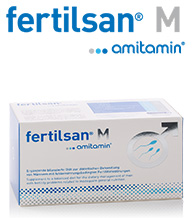
- 24El puntaje total es igual a la suma de todas las marcaciónes verdes
- desde 24,95€ compre aquí
- 3 (también disponible como polvo de bebida)
- La citrulina se metaboliza en el ciclo del ácido cítrico y es un precursor natural de Arginina... (seguir leyendo).
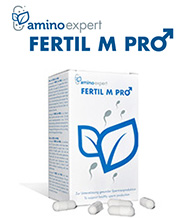
- 21El puntaje total es igual a la suma de todas las marcaciónes verdes
- 21El número total de puntos obtenidos es igual a la suma de todas las marcas de verificación verdes
- desde 24,50€ compre aquí
- 3

- 18El puntaje total es igual a la suma de todas las marcaciónes verdes
- desde 147,64€ compre aquí
- 3 + 1
- La citrulina se metaboliza en el ciclo del ácido cítrico y es un precursor natural de Arginina... (seguir leyendo).
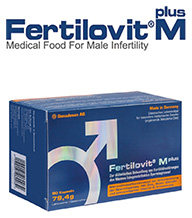
- 18El puntaje total es igual a la suma de todas las marcaciónes verdes
- desde £49.01 compre aquí
- 2
- (300mg)La citrulina se metaboliza en el ciclo del ácido cítrico y es un precursor natural de Arginina... (seguir leyendo).

- 16El puntaje total es igual a la suma de todas las marcaciónes verdes
- desde 66.55€ compre aquí
- 3
- La citrulina se metaboliza en el ciclo del ácido cítrico y es un precursor natural de Arginina... (seguir leyendo).
Scoring: L-Arginine: 0-200mg = Cross; 201-400 mg = 1 tick; 401mg + = 2 ticks. Citrulline: 0-200mg = Cross; 201-400mg = 1 tick; 401mg + = 2 ticks. L-carnitine: 0-100mg = Cross; 101-250mg = 1 tick; 251mg + = 2 ticks. N-Acetyl-Cysteine: 0-30mg = Cross; 31-60mg = 1 tick; 61mg + = 2 ticks. Glutathione: 0-30mg = Cross; 31-60mg = 1 tick; 61mg + = 2 ticks. Pine bark extract: 0-20mg = Cross; 21-50mg = 1 tick; 51mg + = 2 ticks. Zinc: 0-6mg = Cross; 7-12mg = 1 tick; 12mg + = 2 ticks. Selenium: 0-30μg = Cross; 31-50μg = 1 tick; 51μg + = 2 ticks. Omega-3: 0-50mg = Cross; 51-300mg = 1 tick; 300mg + = 2 ticks. Vitamin A / β-carotene: 0-300μg = Cross; 301-1000μg = 1 tick; 1001μg + = 2 ticks. Vitamin C: 0-80mg = Cross; 81-150mg = 1 tick; 151mg + = 2 ticks. Vitamin D: 0-4μg = Cross; 5-9μg = 1 tick; 10 ug + = 2 ticks. Vitamin E: 0-12mg = Cross; 13-80mg = 1 tick; 81mg + = 2 ticks. Folic Acid / Vitamin B9: 0-100μg = Cross; 101-500μg = 1 tick; 501μg + = 2 ticks. Coenzyme Q10: 0-5mg = Cross; 6-10mg = 1 tick; 11mg + = 2 ticks.
RANK 6 - 10: PROfertil, Vitamen, FertAid, Fertimax 2, FERTIL PRO® FOR MEN + L-Carnitine

- PUNTAJE TOTALEl puntaje total es igual a la suma de todas las marcaciónes verdes
- Precio por mes (Precio de Venta Recomendado / PVP)
- Comentarios
- Cápsulas por día
- CitrulinaLa citrulina se metaboliza en el ciclo del ácido cítrico y es un precursor natural de Arginina... (seguir leyendo).
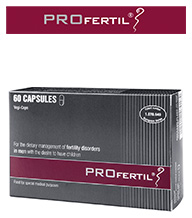
- 14El puntaje total es igual a la suma de todas las marcaciónes verdes
- desde 64,45€ compre aquí
- 2 (también disponible como polvo de bebida)
- La citrulina se metaboliza en el ciclo del ácido cítrico y es un precursor natural de Arginina... (seguir leyendo).

- 14El puntaje total es igual a la suma de todas las marcaciónes verdes
- desde €25,73 compre aquí
- 1
- La citrulina se metaboliza en el ciclo del ácido cítrico y es un precursor natural de Arginina... (seguir leyendo).
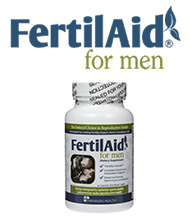
- 13El puntaje total es igual a la suma de todas las marcaciónes verdes
- desde 90.00€ compre aquí
- 3
- La citrulina se metaboliza en el ciclo del ácido cítrico y es un precursor natural de Arginina... (seguir leyendo).

- 13El puntaje total es igual a la suma de todas las marcaciónes verdes
- desde 28,99€ compre aquí
- 1
- La citrulina se metaboliza en el ciclo del ácido cítrico y es un precursor natural de Arginina... (seguir leyendo).
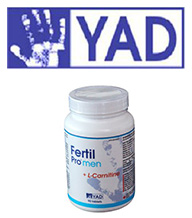
- 11El puntaje total es igual a la suma de todas las marcaciónes verdes
- desde 77.99$ compre aquí
- 1
- La citrulina se metaboliza en el ciclo del ácido cítrico y es un precursor natural de Arginina... (seguir leyendo).
Scoring: L-Arginine: 0-200mg = Cross; 201-400 mg = 1 tick; 401mg + = 2 ticks. Citrulline: 0-200mg = Cross; 201-400mg = 1 tick; 401mg + = 2 ticks. L-carnitine: 0-100mg = Cross; 101-250mg = 1 tick; 251mg + = 2 ticks. N-Acetyl-Cysteine: 0-30mg = Cross; 31-60mg = 1 tick; 61mg + = 2 ticks. Glutathione: 0-30mg = Cross; 31-60mg = 1 tick; 61mg + = 2 ticks. Pine bark extract: 0-20mg = Cross; 21-50mg = 1 tick; 51mg + = 2 ticks. Zinc: 0-6mg = Cross; 7-12mg = 1 tick; 12mg + = 2 ticks. Selenium: 0-30μg = Cross; 31-50μg = 1 tick; 51μg + = 2 ticks. Omega-3: 0-50mg = Cross; 51-300mg = 1 tick; 300mg + = 2 ticks. Vitamin A / β-carotene: 0-300μg = Cross; 301-1000μg = 1 tick; 1001μg + = 2 ticks. Vitamin C: 0-80mg = Cross; 81-150mg = 1 tick; 151mg + = 2 ticks. Vitamin D: 0-4μg = Cross; 5-9μg = 1 tick; 10 ug + = 2 ticks. Vitamin E: 0-12mg = Cross; 13-80mg = 1 tick; 81mg + = 2 ticks. Folic Acid / Vitamin B9: 0-100μg = Cross; 101-500μg = 1 tick; 501μg + = 2 ticks. Coenzyme Q10: 0-5mg = Cross; 6-10mg = 1 tick; 11mg + = 2 ticks.
These products contain a lot of good fertility nutrients, but in lower concentrations than the Top 5 products. FERTIL PRO® FOR MEN + L-Carnitine only has two fertility nutrients vitamin C and folic acid in significant concentration.
RANK 11 - 15: Wellman Conception, Pregnapure, FertilMan, FertilityBlend and ProXeed PLUS

- PUNTAJE TOTALEl puntaje total es igual a la suma de todas las marcaciónes verdes
- Precio por mes (Precio de Venta Recomendado / PVP)
- Comentarios
- Cápsulas por día
- CitrulinaLa citrulina se metaboliza en el ciclo del ácido cítrico y es un precursor natural de Arginina... (seguir leyendo).

- 10El puntaje total es igual a la suma de todas las marcaciónes verdes
- desde 11,92€ compre aquí
- 1
- La citrulina se metaboliza en el ciclo del ácido cítrico y es un precursor natural de Arginina... (seguir leyendo).

- 10El puntaje total es igual a la suma de todas las marcaciónes verdes
- desde £8.21 compre aquí
- 1
- La citrulina se metaboliza en el ciclo del ácido cítrico y es un precursor natural de Arginina... (seguir leyendo).

- 8El puntaje total es igual a la suma de todas las marcaciónes verdes
- desde 54,78€ compre aquí
- 1
- La citrulina se metaboliza en el ciclo del ácido cítrico y es un precursor natural de Arginina... (seguir leyendo).
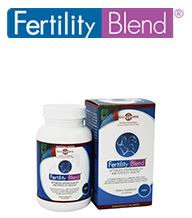
- 7El puntaje total es igual a la suma de todas las marcaciónes verdes
- desde 80,47 compre aquí
- 2
- La citrulina se metaboliza en el ciclo del ácido cítrico y es un precursor natural de Arginina... (seguir leyendo).
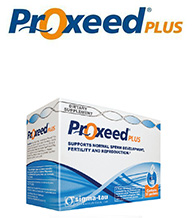
- 6El puntaje total es igual a la suma de todas las marcaciónes verdes
- desde 41,50€ compre aquí
- polvo de bebida
- (1,500mg)La citrulina se metaboliza en el ciclo del ácido cítrico y es un precursor natural de Arginina... (seguir leyendo).
Scoring: L-Arginine: 0-200mg = Cross; 201-400 mg = 1 tick; 401mg + = 2 ticks. Citrulline: 0-200mg = Cross; 201-400mg = 1 tick; 401mg + = 2 ticks. L-carnitine: 0-100mg = Cross; 101-250mg = 1 tick; 251mg + = 2 ticks. N-Acetyl-Cysteine: 0-30mg = Cross; 31-60mg = 1 tick; 61mg + = 2 ticks. Glutathione: 0-30mg = Cross; 31-60mg = 1 tick; 61mg + = 2 ticks. Pine bark extract: 0-20mg = Cross; 21-50mg = 1 tick; 51mg + = 2 ticks. Zinc: 0-6mg = Cross; 7-12mg = 1 tick; 12mg + = 2 ticks. Selenium: 0-30μg = Cross; 31-50μg = 1 tick; 51μg + = 2 ticks. Omega-3: 0-50mg = Cross; 51-300mg = 1 tick; 300mg + = 2 ticks. Vitamin A / β-carotene: 0-300μg = Cross; 301-1000μg = 1 tick; 1001μg + = 2 ticks. Vitamin C: 0-80mg = Cross; 81-150mg = 1 tick; 151mg + = 2 ticks. Vitamin D: 0-4μg = Cross; 5-9μg = 1 tick; 10 ug + = 2 ticks. Vitamin E: 0-12mg = Cross; 13-80mg = 1 tick; 81mg + = 2 ticks. Folic Acid / Vitamin B9: 0-100μg = Cross; 101-500μg = 1 tick; 501μg + = 2 ticks. Coenzyme Q10: 0-5mg = Cross; 6-10mg = 1 tick; 11mg + = 2 ticks.
Wellman Conception contains remarkably low amounts of the key fertility amino acids arginine, carnitine and cysteine. The body requires the latter in particular to produce the powerful antioxidant and DNA protector glutathione.
Proxeed has a large amount of carnitine, but it lacks the vitamins C, D and E completely. This is surprising, because these vitamins have been shown particularly effective in helping to increase overall sperm quality.
RANK 16 - 18: Fertil PRO MTL, Menevit and Countboost

- PUNTAJE TOTALEl puntaje total es igual a la suma de todas las marcaciónes verdes
- Precio por mes (Precio de Venta Recomendado / PVP)
- Comentarios
- Cápsulas por día
- CitrulinaLa citrulina se metaboliza en el ciclo del ácido cítrico y es un precursor natural de Arginina... (seguir leyendo).
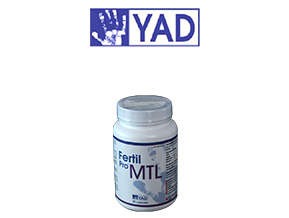
- 6El puntaje total es igual a la suma de todas las marcaciónes verdes
- desde $54.99 compre aquí
- 1
- La citrulina se metaboliza en el ciclo del ácido cítrico y es un precursor natural de Arginina... (seguir leyendo).
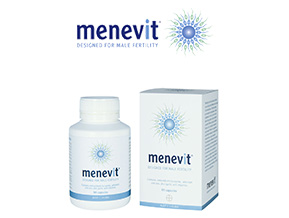
- 6El puntaje total es igual a la suma de todas las marcaciónes verdes
- desde £74.95 compre aquí
- 1
- La citrulina se metaboliza en el ciclo del ácido cítrico y es un precursor natural de Arginina... (seguir leyendo).
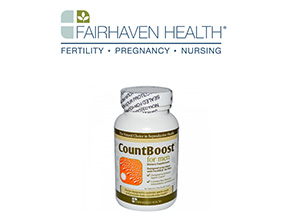
- 2El puntaje total es igual a la suma de todas las marcaciónes verdes
- desde $19.95 compre aquí
- 2
- La citrulina se metaboliza en el ciclo del ácido cítrico y es un precursor natural de Arginina... (seguir leyendo).
Scoring: L-Arginine: 0-200mg = Cross; 201-400 mg = 1 tick; 401mg + = 2 ticks. Citrulline: 0-200mg = Cross; 201-400mg = 1 tick; 401mg + = 2 ticks. L-carnitine: 0-100mg = Cross; 101-250mg = 1 tick; 251mg + = 2 ticks. N-Acetyl-Cysteine: 0-30mg = Cross; 31-60mg = 1 tick; 61mg + = 2 ticks. Glutathione: 0-30mg = Cross; 31-60mg = 1 tick; 61mg + = 2 ticks. Pine bark extract: 0-20mg = Cross; 21-50mg = 1 tick; 51mg + = 2 ticks. Zinc: 0-6mg = Cross; 7-12mg = 1 tick; 12mg + = 2 ticks. Selenium: 0-30μg = Cross; 31-50μg = 1 tick; 51μg + = 2 ticks. Omega-3: 0-50mg = Cross; 51-300mg = 1 tick; 300mg + = 2 ticks. Vitamin A / β-carotene: 0-300μg = Cross; 301-1000μg = 1 tick; 1001μg + = 2 ticks. Vitamin C: 0-80mg = Cross; 81-150mg = 1 tick; 151mg + = 2 ticks. Vitamin D: 0-4μg = Cross; 5-9μg = 1 tick; 10 ug + = 2 ticks. Vitamin E: 0-12mg = Cross; 13-80mg = 1 tick; 81mg + = 2 ticks. Folic Acid / Vitamin B9: 0-100μg = Cross; 101-500μg = 1 tick; 501μg + = 2 ticks. Coenzyme Q10: 0-5mg = Cross; 6-10mg = 1 tick; 11mg + = 2 ticks.
These three products are ranked last in our test as they contain only very low fertility nutrients. FERTIL PRO® MTL focuses exclusively on three antioxidants and contains neither arginine, carnitine nor the trace elements zinc and selenium.
Who should consider fertility supplements?
Sperm production (spermatogenesis) in men is a complex and sensitive process, i.e. to environmental factors such as trauma (temperature, physical) as well as nutritional deficiencies (a poor diet).
The active ingredients are highly concentrated standard nutrients also found in common foods. These fertility supplements are therefore classified as foods. Fertility experts therefore routinely recommend aspiring fathers several months of food supplements as a standard preparation for IVF and other fertility treatments.
In fact, however, all aspiring fathers benefit from male fertility supplements, because of their
- proven efficacy in 55+ scientific studies1
- high level of safety. In principle they have no side effects and are therefore suitable for continuous consumption,
- very moderate financial cost, particularly in relation to artificial fertilisation.
The sperm production cycle takes approximately 80 days, which is why the supplements should be taken as soon as the couple starts trying to conceive for at least three months. Preferably, until the partner is pregnant and ideally until the pregnancy is past the critical 12 week pregnancy mark. In addition, aspiring fathers must pay particular attention to their diet and lifestyle (more tips here).
This approach will guarantee an optimal supply of the most important micronutrients to allow sperm production to run at optimum levels.
Summary
Taking fertility supplements when trying to father a child is definitely worth it. The fertility benefits of 13 amino acids, vitamins and trace elements are strongly supported by clinical evidence.
These nutrients are often effectively combined male fertility supplements. Many of the combination products indeed include many of the 13 nutrients, however others offer only poor value for money. In terms of cost one should budget between £30 and £60 per month.
Relative to their importance and the physical, emotional and monetary cost of the alternatives, however, that is a minor investment.
References
- «Imhof, Martin et al., “Improvement of sperm quality after micronutrient supplementation”, e-SPEN, the European e-Journal of Clinical Nutrition and Metabolism» ↩
- «Imhof, Martin et al., “Improvement of sperm quality after micronutritient supplementation”, e-SPEN, the European e-Journal of Clinical Nutrition and Metabolism» ↩
- «Imhof, Martin et al., “Improvement of sperm quality after micronutritient supplementation”, e-SPEN, the European e-Journal of Clinical Nutrition and Metabolism» ↩
- «Imhof, Martin et al., “Improvement of sperm quality after micronutritient supplementation”, e-SPEN, the European e-Journal of Clinical Nutrition and Metabolism» ↩
En nuestra guía encontrará el listado de clínicas de fertilidad, especialistas independientes y agencias especializadas de primera clase, ordenadas por países de todo el mundo.
Encontrará que algunas clínicas en España, Bielorrusia o aún en Tailandia e India, pueden brindarle una solución más rentable y/ o más apropiada desde una perspectiva legal a sus necesidades específicas e individuales.
Por ejemplo, la legislación sobre maternidad sustituta y transferencia de embrión en la FIV difiere ampliamente en las diferentes jurisdicciones.
Si es un especialista en fertilidad y está interesado en formar parte de esta guía, pulse aquí y averigüe como hacerlo.

Anuncie su Clínica o Agencia de Fertilidad
la-fertilidad.com tiene más de 15,000 visitantes por mes, interesados en cómo concebir.
¡Ellos son potenciales clientes para su clínica!
¿Por qué hacer publicidad en la-fertilidad.com
la-fertilidad.com atrae a clientes que buscan concebir por medio de su guía de clínicas y sus artículos + videos. Éstos han sido «dispuestos con una palabra clave» para que sean muy visibles online tanto en resultados de búsquedas orgánicas (naturales) como pagas.
Puede maximizar su exposición a estos clientes comprado un anuncio «Oro». Esto cuesta menos de lo que muchas clínicas gastan para adquirir un nuevo cliente.
Un anuncio en la guía de la-fertilidad.com le brindará un resultado de búsqueda personalizado, creíble y de alta calidad en los resultados de búsqueda orgánica de google.
Ofrecemos los siguientes tres paquetes para que anuncie su clínica o práctica:
Básico
Sin cargo. Simplemente anuncie la dirección de su clínica. Observe un ejemplo de publicación aquí.
Plata
Anuncie la información de su clínica en 200 palabras. Solo £195 por año. Observe un ejemplo de publicación aquí.
Oro
Mejor Valor. £495 por año. Observe un ejemplo de publicación aquí.
- Anuncios en la guía totalmente personalizados: Descripción general, integral y hecha a medida de la clínica, con todas las características de las funciones, beneficios, estadísticas, precios, etc.
- Página especializada, con imágenes de los especialistas, equipos e instalaciones. Detalles que muestran por qué su negocio es único. Consulte por un ejemplo adicional aquí
- 12 meses de anuncio en la categoría CLÍNICAS DESTACADAS. Este listado tiene más de 300,000 receptores potenciales anuales, ya que aparece en la barra lateral del sitio web y es visible en casi todas las páginas del sitio web la-fertilidad.com’.
- Listado adicional marcado «DESTACADO» en la parte superior de la lista de clínicas de su región.
- Encabezado de imagen «enriquecido» y personalizado
- mapa de google con su ubicación
- conexión a su sitio web con enlaces profundos y directos.
- Palabra clave / motor de búsqueda optimizado para una clasificación superior en los resultados de búsqueda de la página 1 de google
*Coloque el cursor en los items de la tabla interactiva para ver más ejemplos y explicaciones*
Directory Listing Bundles
- Full Contact Details
- ImagesMaximum number of images to customise your directory listing
- Search Engine Optimised for a keyword of your choice
Basic
- 1

Silver
- 3
Gold
- 10
¿Qué es el tiempo de licuefacción?
La licuefacción es el proceso por el cual el esperma se vuelve líquido una vez eyaculado.
Esto sucede cuando se rompe el gel (coágulo seminal) formado por las proteínas de las vesículas seminales. Entonces el semen se vuelve líquido. La muestra tarda normalmente menos de 20 minutos en pasar de un gel denso a uno líquido.
En las pautas de NICE ( Instituto Nacional para la Salud y la Excelencia Clínica se considera dentro de los parámetros normales un tiempo de licuefacción de hasta 60 minutos1
¿Por qué es importante el tiempo de licuefacción?
El gel seminal se licua para que los espermatozoides puedan avanzar más libremente a través del moco cervical y hacia el óvulo.
Un tiempo de licuefacción superior a los 60 minutos puede disminuir las posibilidades de concepción, ya que los espermatozoides no pueden comenzar a avanzar. Esto puede indicar una infección o un trastorno de la función de las glándulas accesorias.
Debe realizarse un Test Postcoital (PCT) para evaluar la importancia clínica de la Licuefacción Seminal Retrasada.

- Si los resultados del PCT son normales, no se necesita ningún tratamiento posterior de licuefacción retrasada. Si el esperma puede alcanzar el moco cervical, puede tener lugar la fertilización del óvulo y por lo tanto, los problemas de la licuefacción del semen no son clinicamente relevantes.
- Si el resultado del PCT es anormal, debe realizarse un análisis de eyaculado dividido. El semen que no se licua sugiere una potencial disfunción prostática, ya que se necesitan las enzimas proteolíticas (» proteasas») de las secreciones prostáticas para licuar el coágulo seminal, el cual se produce en las vesículas seminales. En caso de ausencia de espermatozoides en el PCT, se deberá realizar un diagnóstico posterior del problema de licuefacción.
Cómo aumentar la fertilidad masculina
El hombre puede hacer varias cosas para mejorar su fertilidad. Entre ellas se incluyen las elecciones de estilo de vida, tales como la eliminación de comidas rápidas, la nicotina y el alcohol, ejercitarse regularmente, descansar bien y disminuir el estrés.
Además, estudios científicos demostraron que se puede lograr el aumento de la cantidad de espermatozoides por medio de los siguientes complementos alimenticios:
- aminoácidos, como la Arginina y la Carnitina
- antioxidantes, como el Glutatión y la coenzima Q10
- metales traza, como el zinc y el selenio
- vitaminas, como la A, B9 (ácido fólico), C, D y E
- extractos, como el extracto de corteza de pino (Pycnogenol)
Estos aminoácidos, vitaminas y oligoelementos son nutrientes naturales, por lo que no debe esperarse ningún efecto adverso. Por el contrario, el aumento del consumo de estos micronutrientes produce significantes beneficios para la salud, como la estabilización del sistema inmune, un efecto positivo en la circulación cardiovascular y la salud de la piel y el cabello.
Por lo tanto, no hay razón médica que impida implementar una dieta rica en micronutrientes durante un mínimo de seis meses para aumentar la fertilidad. Es ideal que esto se lleve a cabo hasta lograr una concepción exitosa.
Bibliografía
- «Fertilidad: Evaluación y tratamiento de personas con problemas de fertilidad. Londres: comunicado de prensa de RCOG. 2004. ISBN 1-900364-97-2.» ↩
Demasiados leucocitos en el semen pueden afectar la fertilidad
El recuento de leucocitos es, a menudo, uno de los parámetros que se miden en un análisis de semen. Si bien es normal que el semen contenga algunos leucocitos, una elevada concentración puede afectar de forma negativa a la fertilidad, y puede indicar un potencial problema de salud. Esta condición se denomina Leucocitospermia o Piospermia.
Según la Organización Mundial de la Salud, la piospermia se determina cuando existen más de 1 millón de leucocitos por milímetro de semen.
El sistema inmune del cuerpo confía en los glóbulos blancos (leucocitos) para combatir las infecciones causadas por células invasoras y bacterias.
Los leucocitos se producen en la médula ósea y se mueven libremente por el torrente sanguíneo, neutralizando cualquier virus, bacteria u hongo extraño.
Si existe una infección, el cuerpo responde produciendo más glóbulos blancos para detener a las células que causan daño.
Dado que los leucocitos pueden encontrarse en cualquier parte del cuerpo en cualquier momento, no es inusual que aparezcan en el semen.
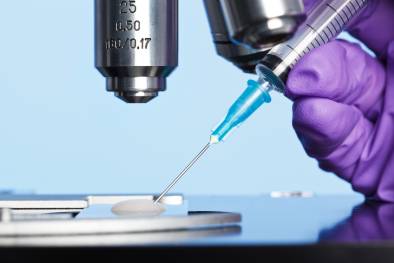
En concentraciones bajas, los leucocitos no afectan a los espermatozoides y por lo tanto, no impactan en la fertilidad.
Sin embargo, las altas concentraciones de leucocitos pueden disminuir la fertilidad, condición que se denomina leucocitospermia. Esta condición se diagnostica cuando los leucocitos en el semen superan 1 millón por milímetro.
¿Es común la leucocitospermia? ¿Y qué la causa?
Esta condición poco frecuente afecta entre el 5% y el 10% de los hombres. Aproximadamente el 20% de los hombres que solicitan un tratamiento para la fertilidad son diagnosticados con leucocitospermia.
Existen varios factores que pueden aumentar la cantidad de leucocitos: infecciones en el tracto genital, consumo de alcohol, de marihuana y de tabaco1. La abstinencia prolongada y las prácticas sexuales específicas, como el coito anal o el uso de productos vaginales (para higiene y tratamiento), pueden también producir leucocitospermia en los hombres posteriormente al acto sexual.
En algunos casos, los hombres cuya producción de espermatozoides es anómala tienen elevadas concentraciones de leucocitos, como mecanismo defensivo para eliminar a los espermatozoides defectuosos. Los hombres que fueron sometidos a una vasovasostomía o varicocele también pueden tener altas concentraciones de leucocitos en el semen.
¿Cómo afecta la leucocitospermia a la fertilidad?
No se comprenden claramente los efectos que producen una elevada concentración de leucocitos en la fertilidad masculina. Algunos estudios establecen que la leucocitospermia no produce ningún impacto adverso2,3.
Sin embargo, otros estudios encontraron una relación entre los parámetros de semen dañado y la leucocitospermia, especialmente en lo que se refiere a la motilidad y morfología de los espermatozoides4,5,6.
Uno de los problemas de la leucocitospermia es que lleva a la oxidación celular. Esto significa que durante el proceso de maduración, los espermatozoides se dañan y esto afecta negativamente su motilidad y morfología.
Una vez dañados, disminuye significativamente la capacidad de los espermatozoides de fertilizar al óvulo. Cuánta más concentración de leucocitos, más probabilidad de que los espermatozoides hayan sido dañados por especies reactivas de oxígeno (ROS). Sin embargo, la concentración de ROS puede alterarse con la presencia de antioxidantes.
Esto significa que, el hecho de que el semen tenga altos niveles de leucocitos, no necesariamente disminuye la fertilidad, si también tiene una elevada concentración de antioxidantes para disminuir las especies reactivas de oxígeno.
Tratamiento de la leucocitospermia
Si ha sido diagnosticado con leucocitospermia y tiene problemas de fertilidad, existen varios métodos de tratamiento. El primer procedimiento a seguir es determinar la causa subyacente de una elevada concentración de leucocitos en el semen.
Se examina a los pacientes en busca de alguna enfermedad de transmisión sexual, como la gonorrea y clamidia u otras potenciales infecciones del tracto genital. Si se identifica alguna infección, el tratamiento se reduce a antibióticos. Esto debería restaurar los parámetros normales de leucocitos.
La dieta también juega un papel importante para mejorar la fertilidad de los hombres con leucocitospermia. Una dieta saludable enriquecida con nutrientes clave que favorecen el desarrollo saludable de los espermatozoides puede ayudar a mejorar la fertilidad. Consumir mucha fruta fresca y vegetales ayuda a aumentar las concentraciones de antioxidantes en el semen, neutralizando eficazmente a las especies reactivas de oxígeno. Además, existe una variedad de complementos para la fertilidad que pueden consumirse regularmente para mejorar la fertilidad.
VIDEO: Aprenda a interpretar un análisis de semen (video 2 de nuestra serie de videos)
Bibliography
- “Close, C., Roberts, P. y Berger, E. (1990). Los cigarrillos, el alcohol y la marihuana se relacionan con la piospermia en los hombres infértiles. Revista de Urología, 1990. Volumen 144, Edición 4 (pp. 900-3.).” ↩
- “Cottell, E., y colaboradores (2000). ¿Son los microorganismos del fluido seminal relevantes o meramente contaminantes? Fertilidad y Esterilidad, Volumen 74, Edición 3, (pp. 465-470).” ↩
- “Rodin, D., Larone, D. y Goldstein, M. (2003) Relación entre los cultivos de semen, la leucocitospermia, y los análisis de semen en hombres sometidos a evaluación de fertilidad. Fertilidad y Esterilidad, Volumen 79, Edición 3, (pp. 1555-8).” ↩
- “Aziz, N., y colaboradores (2004). Asociaciones novedosas entre defectos morfológicos específicos de los espermatozoides y la leucocitospermia. Fertilidad y Esterilidad. Volumen 82, Edición 3, (pp.621-670.” ↩
- “Esfandiari, N., y colaboradores (2002). Cultivo bacteriano de semen positivo de hombres infértiles con leucocitospermia asintomática. Revista Internacional de Fertilidad y Medicina de la Mujer. Volumen 47, Edición 6, (pp. 265-70).” ↩
- “Thomas, J., y colaboradores (1997). Aumento de granulocitos polimorfonucleares en el plasma seminal, en relación con la morfología de los espermatozoides. Reproducción Humana. Volumen 12, Edición 11, (pp. 2418-21).” ↩
¿Qué es el volumen del semen?
El volumen del semen se refiere a la cantidad total de semen eyaculado. Se considera normal la eyaculación de 1,0 ml y 6,5 ml por orgasmo1 y puede variar entre 0,1 y 10 mililitros2. Para comparar los volúmenes, tenga en cuenta que una cuchara de té contiene 5 ml y una cuchara sopera 15 ml.
El volumen de semen eyaculado se ve directamente afectado por el tiempo que transcurre desde la última eyaculación; suelen eyacularse grandes volúmenes de semen después de largos períodos de abstinencia.
La duración de la estimulación que lleva a la eyaculación puede afectar el volumen3.
Las pautas para la fertilidad masculina de la Organización Mundial de la Salud consideran que 1.5 ml es la referencia de límite más baja para la cantidad de semen por eyaculación6.
Antes de esta revisión, 2 ml eran considerados normales7
Una historia preocupante
Cómo aumentar la fertilidad masculina
El hombre puede hacer varias cosas para mejorar su fertilidad. Entre ellas se incluyen las elecciones de estilo de vida, tales como la eliminación de comidas rápidas, la nicotina y el alcohol, ejercitarse regularmente, descansar bien y disminuir el estrés.
Además, estudios científicos demostraron que se puede lograr el aumento de la cantidad de espermatozoides por medio del consumo de los siguientes complementos alimenticios:
Cómo aumentar el volumen del semen naturalmente

El proceso de generación de espermatozoides es particularmente sensible a los factores externos. Entre éstos se incluye el trauma (calor, fuerza física), suministro de energía y nutrientes para las células «bajo construcción», así también como el estrés oxidativo.
El hombre puede hacer varias cosas para mejorar su fertilidad. Entre ellas se incluyen las elecciones de estilo de vida, tales como la eliminación de comidas rápidas, la nicotina y el alcohol, ejercitarse regularmente, descansar bien y disminuir el estrés..
Además, estudios científicos demostraron que se puede lograr el aumento de la cantidad de espermatozoides por medio de los siguientes complementos alimenticios:
- aminoácidos, como la Arginina y la Carnitina
- antioxidantes, como el Glutatión y la coenzima Q10
- metales traza, como el zinc y el selenio
- • vitaminas, como la A, B9 (ácido fólico), C, D y E
- extractos, como el extracto de corteza de pino (Pycnogenol)
Estos aminoácidos, vitaminas y oligoelementos son nutrientes naturales, por lo que no debe esperarse ningún efecto adverso. Por el contrario, el aumento del consumo de estos micronutrientes produce significantes beneficios para la salud, como la estabilización del sistema inmune, un efecto positivo en la circulación cardiovascular y la salud de la piel y el cabello.
Por lo tanto, no hay razón médica que impida implementar una dieta rica en micronutrientes durante un mínimo de seis meses para aumentar la fertilidad. Es ideal que esto se lleve a cabo hasta lograr una concepción exitosa.
Más nutrientes para el aumento del volumen
Bibliografía
- «Essig, Maria G.; Editado por Susan Van Houten y Tracy Landauer, Revisado por Martin Gabica y Avery L. Seifert (2007-02-20). «Análisis de semen». Healthwise. WebMD. Recuperado 2007-08-05″ ↩
- «Rehan, N.; Sobrero, A.J.; Fertig, J.W. (1975). «El semen de los hombres fértiles: análisis estadístico de 1300 hombres». Fertilidad y Esterilidad 26 (6): 492–502. PMID 1169171» ↩
- «Pound, N.; Javed, M.H.; Ruberto, C.; Shaikh, M.A.; Del Valle, A.P. (2002). «La duración de la excitación sexual predice los parámetros del semen en las eyaculaciones por medio de la masturbación». Comportamiento Fisiológico 76 (4–5): 685–9. doi:10.1016/S0031-9384(02)00803-X. PMID 12127009» ↩
- «Gerris citando a Sofikitis y Miyagawa, 1993: Gerris J (1999). «Métodos de recolección de semen no basados en la masturbación o la recuperación quirúrgica». Actualización 5 de Reproducción Humana (3): 211–5. doi:10.1093/humupd/5.3.211. PMID 10438105» ↩
- «http://www.ncbi.nlm.nih.gov/pubmed/12571189» ↩
- «http://humupd.oxfordjournals.org/content/16/3/231» ↩
- «Essig, Maria G.; Editado por by Susan Van Houten y Tracy Landauer, Revisado por Martin Gabica y Avery L. Seifert (2007-02-20). «Análisis de semen». Healthwise. WebMD. Recuperado 2007-08-05″ ↩
- «Carlsen E, Giwercman AJ, Keiding N, Skakkebaek NE. Disminución de la calidad del semen desde 1930 hasta 1991. Ugeskr Laeger 1993;155:2230-2235» ↩
- «Carlsen E, Giwercman AJ, Keiding N, Skakkebaek NE.Evidencia de la disminución de la calidad del semen durante los últimos 50 años. BMJ 1992; 305:609-613» ↩
¿Qué es la morfología / % de formas normales de los espermatozoides?
La morfología de los espermatozoides se refiere a su tamaño y forma. Los resultados se registran como el porcentaje de espermatozoides que aparecen normales cuando se observa al semen a través de un microscopio.
Normalmente, hasta el 10% de todos los espermatozoides tienen defectos observables. En algunos hombres, este porcentaje puede ser muy superior. La presencia de espermatozoides con anomalías morfológicas afecta de forma negativa a la fertilidad, ya que esos espermatozoides defectuosos se ven perjudicados a la hora de fertilizar al óvulo. Esto hace que sea menos probable concretar un embarazo1, 2.
La morfología de los espermatozoides es un indicador del éxito de la fertilización de un óvulo femenino (ovocito) durante la fertilización in vitro (FIV)3.
Las pautas para la fertilidad masculina de la OMS actualizadas, como se describen en 2010, consideran que una muestra es normal si el 4% o más de los espermatozoides observados tienen una morfología normal4. Antes de esta revisión, el 14% se consideraba normal5
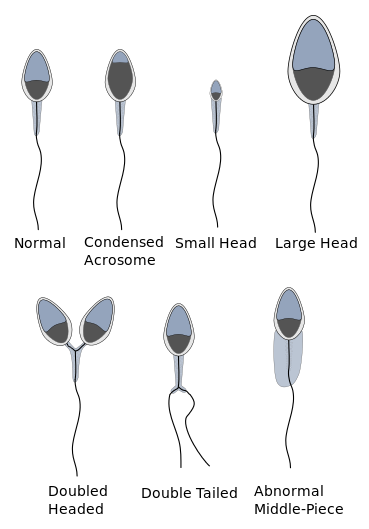
Morfología / % de formas normales deficientes
La Teratospermia (o teratozoospermia) es una condición que se caracteriza por la presencia de espermatozoides con formas anormales, lo que causa la infertilidad masculina.
Soluciones para los problemas morfológicos
La Teratospermia se diagnostica por medio de un análisis de semen, el cual se recolecta y analiza en un microscopio. Las formas anormales pueden incluir cabezas grandes, pequeñas, cónicas, duplicadas o colas demasiado largas o cortas6
Se ha demostrado que los antiestrógenos son efectivos para tratar la teratospermia1. Bloquean la producción8 o utilización de estrógenos, inhibiendo sus efectos.
La Teratozoospermia puede tratarse indirectamente con una inyección intracitoplasmática de espermatozoides (ICSI). Los espermatozoides no necesitan avanzar, ya que son inyectados directamente en el óvulo9. Una vez que el óvulo es fertilizado con éxito, la morfología deficiente de los espermatozoides no influye en el desarrollo o morfología del blastocisto (embrión temprano)10.
Aún con teratozoospermia severa, los pocos espermatozoides que tienen una morfología «normal» pueden ser detectados, aislados y usados para la fertilización, lo que permite una óptima taza de éxito11.
Además, la teratozoospermia puede tratarse satisfactoriamente con la complementación de los siguientes nutrientes:
- 2000 mg por día de vitamina C aumenta la cantidad de espermatozoides un 129% en 2 meses12
- 200 mg por día de pycnogenol mejora la morfología de los espermatozoides un 38% en 90 días13
- 200 µg de selenio + 400 UI de vitamina E mejora la motilidad, morfología, o ambas en el 53% de los pacientes después de 14 semanas14
- La vitamina D (los hombres con bajas concentraciones de vitamina D tienen menor cantidad de espermatozoides15)
Cómo mejorar la forma de los espermatozoides naturalmente

El proceso de generación de espermatozoides es particularmente sensible a los factores externos. Entre éstos se incluye el trauma (calor, fuerza física), el suministro de energía y nutrientes para las células «bajo construcción», así también como el estrés oxidativo.
El hombre puede hacer varias cosas para mejorar su fertilidad. Entre ellas se incluyen las elecciones de estilo de vida, tales como la eliminación de comidas rápidas, la nicotina y el alcohol, ejercitarse regularmente, descansar bien y disminuir el estrés.
Además, estudios científicos demostraron que se puede lograr el aumento de la cantidad de espermatozoides por medio de los siguientes complementos alimenticios:
- aminoácidos, como la Arginina y la Carnitina
- antioxidantes, como el Glutatión y la coenzima Q10
- metales traza, como el zinc y el selenio
- vitaminas, como la A, B9 (ácido fólico), C, D y E
- extractos, como el extracto de corteza de pino (Pycnogenol)
Estos aminoácidos, vitaminas y oligoelementos son nutrientes naturales, por lo que no debe esperarse ningún efecto adverso. Por el contrario, el aumento del consumo de estos micronutrientes produce significantes beneficios para la salud, como la estabilización del sistema inmune, un efecto positivo en la circulación cardiovascular y la salud de la piel y el cabello.
Por lo tanto, no hay razón médica que impida implementar una dieta rica en micronutrientes durante un mínimo de seis meses para aumentar la fertilidad. Es ideal que esto se lleve a cabo hasta lograr una concepción exitosa.
Más nutrientes que mejoran la forma de los espermatozoides
Bibliografía
- «http://www.gfmer.ch/Endo/Lectures_09/dupan.htm» ↩
- «Sadler, T. (2010). Embriología médica de Langman. (11th ed. ed.). Filadelfia: Lippincott William y Wilkins. p. 30.ISBN 978-0-7817-9069-7» ↩
- «http://www.ncbi.nlm.nih.gov/pubmed/3335257» ↩
- «http://humupd.oxfordjournals.org/content/16/3/231» ↩
- «http://www.ivfmd.net/new-world-health-semen-analysis-parameters» ↩
- «http://www.endotext.org/male/male7/male7_2.htm» ↩
- «http://www.gfmer.ch/Endo/Lectures_09/dupan.htm» ↩
- «http://www.cancer.gov/dictionary/?CdrID=44813» ↩
- «French DB, Sabanegh ES, Goldfarb J, Desai N (Marzo 2010). «¿Afecta la teratozoospermia severa la formación del blastocisto, la taza de nacidos vivos, y otros parámetros de resultados clínicos en los ciclos de ICSI?».Fertilidad y Esterilidad 93 (4):1097–1103. doi:10.1016/j.fertnstert.2008.10.051. PMID 19200957» ↩
- «French DB, Sabanegh ES, Goldfarb J, Desai N (Marzo 2010). «¿Afecta la teratozoospermia severa la formación del blastocisto, la taza de nacidos vivos, y otros parámetros de resultados clínicos en los ciclos de ICSI?».Fertilidad y Esterilidad 93 (4): 1097–1103. doi:10.1016/j.fertnstert.2008.10.051. PMID 19200957» ↩
- «French DB, Sabanegh ES, Goldfarb J, Desai N (Marzo 2010). «¿Afecta la teratozoospermia severa la formación del blastocisto, la taza de nacidos vivos, y otros parámetros de resultados clínicos en los ciclos de ICSI?».Fertilidad y Esterilidad 93 (4): 1097–1103. doi:10.1016/j.fertnstert.2008.10.051. PMID 19200957» ↩
- «http://www.ncbi.nlm.nih.gov/pubmed/17004914» ↩
- «http://www.ncbi.nlm.nih.gov/pubmed/12418064» ↩
- «http://www.ncbi.nlm.nih.gov/pubmed/21403799» ↩
- «http://www.ncbi.nlm.nih.gov/pubmed/23042450» ↩
La fructosa es azúcar en el semen. Proporciona energía a los espermatozoides. Si es demasiado baja, los espermatozoides tienen dificultades para avanzar y fertilizar al óvulo.
La ausencia o un bajo nivel de fructosa en el semen puede indicar un problema en las vesículas seminales1
La Organización Mundial de la Salud considera 13 μmol (o aproximadamente 3 mg/ml) como el límite de referencia más bajo para la cantidad de fructosa por muestra2.

La fertilidad masculina está disminuyendo
Estadísticas y Causas
Una de cada seis parejas (15%) que están intentando concebir de forma natural no lo logra en 12 meses y por lo tanto se la considera «subfértil». Aproximadamente el 40% de estos casos son causados por el «factor masculino» de infertilidad5. Aunque aún no se comprenden bien las causas, a menudo se relacionan con las dietas deficientes en nutrientes claves y a la creciente exposición a las toxinas de nuestro medio ambiente.
Cómo aumentar la fertilidad masculina
El hombre puede hacer varias cosas para mejorar su fertilidad. Entre ellas se incluyen las elecciones de estilo de vida, tales como la eliminación de comidas rápidas, la nicotina y el alcohol, ejercitarse regularmente, descansar bien y disminuir el estrés.
Además, estudios científicos demostraron que se puede lograr el aumento de la cantidad de espermatozoides por medio de los siguientes complementos alimenticios:
- aminoácidos, como la Arginina y la Carnitina
- antioxidantes, como el Glutatión y la coenzima Q10
- metales traza, como el zinc y el selenio
- vitaminas, como la A, B9 (ácido fólico), C, D y E
- extractos, como el extracto de corteza de pino (Pycnogenol)
Estos aminoácidos, vitaminas y oligoelementos son nutrientes naturales, por lo que no debe esperarse ningún efecto adverso. Por el contrario, el aumento del consumo de estos micronutrientes produce significantes beneficios para la salud, como la estabilización del sistema inmune, un efecto positivo en la circulación cardiovascular y la salud de la piel y el cabello.
Por lo tanto, no hay razón médica que impida implementar una dieta rica en micronutrientes durante medio o un año entero.
Bibliografía
- «Comprender el análisis de semen». Stonybrook, Universidad Estatal de Nueva York. 1999. Recuperado 2007-08-05″ ↩
- «http://humupd.oxfordjournals.org/content/16/3/231» ↩
- «Carlsen E, Giwercman AJ, Keiding N, Skakkebaek NE. Disminución de la calidad del semen desde 1930 hasta 1991. Ugeskr Laeger 1993;155:2230-2235» ↩
- «Carlsen E, Giwercman AJ, Keiding N, Skakkebaek NE. Evidencia de la disminución de la calidad del semen durante los pasados 50 años. BMJ 1992; 305:609-613» ↩
- «http://www.ncbi.nlm.nih.gov/pmc/articles/PMC1240129» ↩
La motilidad (movimiento) de los espermatozoides
La motilidad de los espermatozoides es su capacidad de moverse apropiadamente a través del aparato reproductivo femenino (ya sea por medio de la fertilización natural o artificial) o a través del agua (durante la fertilización externa, como la FIV) para llegar al óvulo.
También puede considerarse a la motilidad como la calidad de los espermatozoides, lo que es un factor importante para una concepción exitosa. Los espermatozoides que no se mueven de manera apropiada no llegan al óvulo y por lo tanto, no lo fertilizan.
Las pautas de la Organización Mundial de la Salud (OMS) considera que un hombre es fértil si tiene un «mínimo de motilidad progresiva», o sea, grado a+b. de 32%, equivalente a 4.8 millones/ml(15 millones / ml x 32%). La vitalidad debe ser de un mínimo del 60% de espermatozoides vivos1.
Ejemplos
- Un hombre puede tener una cantidad de espermatozoides muy superior al límite mínimo estipulado por la OMS de 15 millones por mililitro (por ejemplo 50 millones), pero si solo unos pocos de ellos son móviles (por ejemplo solo el 5%), este hombre puede tener una mala calidad general de espermatozoides (menos de 5 millones de Espermatozoides Móviles Totales por mililitro). Esto se debe a que el número total de espermatozoides progresivamente móviles sería de solo 2,5 millones por mililitro.
- Sin embargo, si la cantidad de espermatozoides es muy alta ( por ejemplo 100 millones por mililitro), no importaría una motilidad baja (por ejemplo 5%), ya que el número total de espermatozoides progresivamente móviles sería de 5 millones por mililitro.
- En cambio, un hombre puede tener una baja cantidad de espermatozoides, mucho menor de 15 millones por mililitro (por ejemplo 10 millones) y aún así sus espermatozoides pueden tener buena calidad. Esto se logra si la motilidad es superior al 50%, lo que da un mínimo de 5 millones de espermatozoides con un buen movimiento de avance
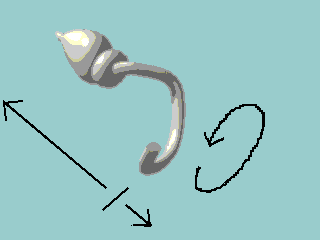
Clasificación de la motilidad de los espermatozoides
- Grado a, Motilidad IV o movimiento recto: Espermatozoides con motilidad progresiva. Éstos son los más fuertes y avanzan rápido y en línea recta.
- Grado b, Motilidad III o movimiento en zig-zag: (motilidad no lineal): Éstos también se mueven pero tienden a avanzar zigzagueando.
- Grado c, Motilidad II o vibrante: Éstos no tienen motilidad progresiva ya que no avanzan a pesar de mover sus colas.
- Grado d, Motilidad I o inmóvil: Éstos son totalmente inmóviles y no pueden avanzar.
Baja Motilidad
El término médico que se utiliza para denominar la baja motilidad de los espermatozoides es Astenozoospermia (o astenospermia). La astenozoospermia completa, o sea 100% de espermatozoides inmóviles en la eyaculación, sucede con una frecuencia de 1 en 5000 hombres o el 0.002%2. La astenozoospermia completa puede producirse por alguna deficiencia metabólica, como la incapacidad de consumir ciertos nutrientes esenciales para la motilidad de los espermatozoides, anomalías ultraestructurales de los flagelos (colas) de los espermatozoides y necrozoospermia (espermatozoides sin vida).
La astenospermia disminuye la calidad general de los espermatozoides y por lo tanto, se constituye en un factor principal de la poca o nula fertilidad en los hombres. La posibilidad de embarazo en estos casos puede aumentarse por medio de ICSI2.

Mejorar la motilidad de manera natural
El hombre puede hacer varias cosas para mejorar la motilidad de sus espermatozoides. Entre ellas se incluyen las elecciones de estilo de vida, tales como la eliminación de comidas rápidas, la nicotina y el alcohol, ejercitarse regularmente, descansar bien y disminuir el estrés.
Además, estudios científicos han demostrado que se puede lograr un aumento de la motilidad de los espermatozoides por medio del consumo de los siguientes complementos alimenticios:
- 2 g por día de L-Carnitina + Vitamina E aumenta la motilidad un 59% después de ocho meses4
- 3 g por día de L-Carnitina aumenta la motilidad un 40% después de tres meses5
- 2000 mg por día de Vitamina C aumenta la motilidad un 39% en 2 meses6
- 4 mg por día de licopeno aumenta la motilidad un 25% en 3 meses7
- 200 mg de selenio + 400 UI de Vitamina E mejoró la motilidad, morfología o ambas en el 53% de los pacientes después de 14 semanas8
- La Vitamina D (los espermatozoides de los hombres con deficiencia en vitamina D tienen más baja motilidad9)
Cómo aumentar la fertilidad masculina de forma natural

El proceso de generación de espermatozoides es particularmente sensible a los factores externos. Entre éstos se incluye el trauma (calor, fuerza física), el suministro de energía y nutrientes para las células «bajo construcción», así también como el estrés oxidativo.
El hombre puede hacer varias cosas para mejorar su fertilidad. Entre ellas se incluyen las elecciones de estilo de vida, tales como la eliminación de comidas rápidas, la nicotina y el alcohol, ejercitarse regularmente, descansar bien y disminuir el estrés.
Además, estudios científicos demostraron que se puede lograr el aumento de la cantidad de espermatozoides por medio de los siguientes complementos alimenticios:
- aminoácidos, como la Arginina y la Carnitina
- antioxidantes, como el Glutatión y la coenzima Q10
- metales traza, como el zinc y el selenio
- vitaminas, como la A, B9 (ácido fólico), C, D y E
- extractos, como el extracto de corteza de pino (Pycnogenol)
Estos aminoácidos, vitaminas y oligoelementos son nutrientes naturales, por lo que no debe esperarse ningún efecto adverso. Por el contrario, el aumento del consumo de estos micronutrientes produce significantes beneficios para la salud, como la estabilización del sistema inmune, un efecto positivo en la circulación cardiovascular y la salud de la piel y el cabello.
Por lo tanto, no hay razón médica que impida implementar una dieta rica en micronutrientes durante un mínimo de seis meses para aumentar la fertilidad. Es ideal que esto se lleve a cabo hasta lograr una concepción exitosa.
Más nutrientes para el aumento de la motilidad
Bibliografía
- «http://humupd.oxfordjournals.org/content/16/3/231» ↩
- «http://humupd.oxfordjournals.org/content/17/5/684» ↩
- «http://humupd.oxfordjournals.org/content/17/5/684» ↩
- «http://www.ncbi.nlm.nih.gov/pubmed/12568837» ↩
- «http://www.ncbi.nlm.nih.gov/pubmed/8529529» ↩
- «http://www.ncbi.nlm.nih.gov/pubmed/17004914» ↩
- «http://www.ncbi.nlm.nih.gov/pubmed/12899230» ↩
- «http://www.ncbi.nlm.nih.gov/pubmed/21403799» ↩
- «http://www.ncbi.nlm.nih.gov/pubmed/23042450» ↩
¿Qué son los parámetros del pH seminal en los seres humanos?
La escala del pH mide el grado de acidez o alcalinidad de una sustancia. Varía de 0 a 14. El pH del agua destilada es 7 y se considera neutral. Un pH inferior a 7 is ácido, y un pH superior a 7 es alcalino (básico).
Para el esperma humano, WebMD registra un parámetro normal de pH de 7.1-8.0, apenas más amplio1que el de los criterios normales de la OMS de 7.2-7.82.
Un valor de pH por fuera de los parámetros normales es perjudicial para el esperma3, ya que un ambiente demasiado ácido o alcalino no es favorable para la capacidad de los espermatozoides de movimiento progresivo y fertilización del óvulo.
- Un valor de pH más bajo (ácido), inferior a 7.2, puede indicar que una o ambas vesículas seminales están obstruidas.
- Un valor de pH más elevado (alcalino), por encima de 8, puede indicar una infección.
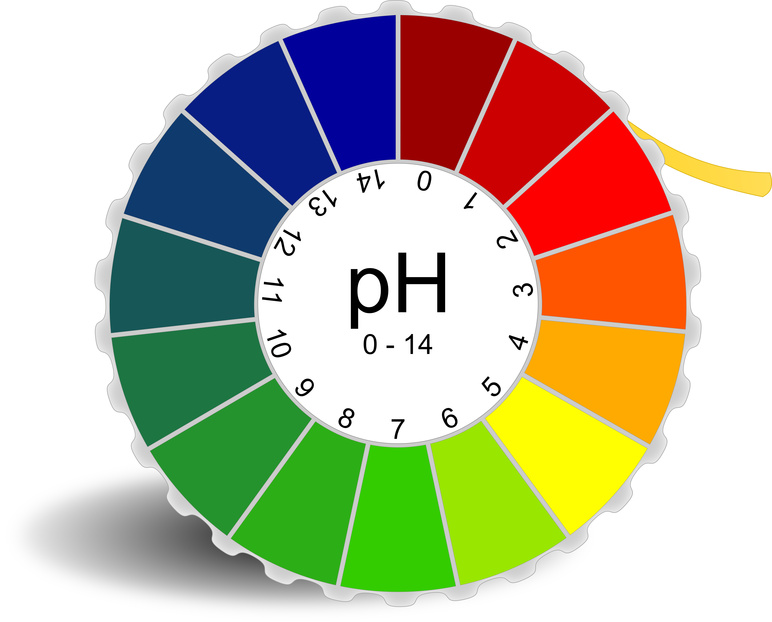
Las investigaciones sugieren que los parámetros «normales» de la OMS son demasiado bajos
Cómo aumentar la fertilidad masculina
El hombre puede hacer varias cosas para mejorar su fertilidad. Entre ellas se incluyen las elecciones de estilo de vida, tales como la eliminación de comidas rápidas, la nicotina y el alcohol, ejercitarse regularmente, descansar bien y disminuir el estrés.
Además, estudios científicos demostraron que se puede lograr el aumento de la cantidad de espermatozoides por medio de los siguientes complementos alimenticios:
- aminoácidos, como la Arginina y la Carnitina
- antioxidantes, como el Glutatión y la coenzima Q10
- metales traza, como el zinc y el selenio
- vitaminas, como la A, B9 (ácido fólico), C, D y E
- extractos, como el extracto de corteza de pino (Pycnogenol)
Estos aminoácidos, vitaminas y oligoelementos son nutrientes naturales, por lo que no debe esperarse ningún efecto adverso. Por el contrario, el aumento del consumo de estos micronutrientes produce significantes beneficios para la salud, como la estabilización del sistema inmune, un efecto positivo en la circulación cardiovascular y la salud de la piel y el cabello.
Por lo tanto, no hay razón médica que impida implementar una dieta rica en micronutrientes durante medio o un año entero.
Bibliografía
- «Essig, Maria G.; Editado por Susan Van Houten y Tracy Landauer, Revisado por Martin Gabica y Avery L. Seifert (2007-02-20). «Análisis de semen». Healthwise. WebMD. Recuperado 2007-08-05.» ↩
- «Comprender el análisis de semen». Stonybrook, Universidad Estatal de Nueva York. 1999. Recuperado 2007-08-05″ ↩
- «Comprender el análisis de semen». Stonybrook, Universidad Estatal de Nueva York. 1999. Recuperado 2007-08-05″ ↩
- «http://www.ncbi.nlm.nih.gov/pubmed/9675619» ↩
¿Qué es el recuento de espermatozoides?
El recuento de espermatozoides mide la cantidad de espermatozoides en la eyaculación, en millones por milímetro. Es importante distinguirlo del recuento total de espermatozoides, que es la cantidad multiplicada por el volumen, o sea, el número de milímetros1 En la actualidad, el recuento promedio, en el mundo occidental, es entre 20 y 40 millones de espermatozoides por milímetro, lo que muestra la disminución del 1-2% por año de un número sustancialmente más elevado en décadas pasadas2
Más de 15 millones de espermatozoides por milímetro se considera normal, de acuerdo a la Guía de la OMS en 20103. Anteriormente a esta revisión descendente, se consideraba normal 20 millones4
Baja cantidad de espermatozoides
Se denomina Oligozoospermia al semen con baja cantidad de espermatozoides. A menudo, el semen con baja cantidad de espermatozoides también muestra anomalías en su morfología y motilidad (técnicamente «oligoastenoteratozoospermia»). Después de una vasectomía exitosa, la muestra de semen es azoospermica. Esto significa que el semen no tiene un nivel mensurable de espermatozoides.
Mejorar la cantidad de espermatozoides
El hombre puede hacer varias cosas para mejorar la cantidad de los espermatozoides. Entre ellas se incluyen las elecciones de estilo de vida, tales como la eliminación de comidas rápidas, la nicotina y el alcohol, ejercitarse regularmente, descansar bien y disminuir el estrés. Además, estudios científicos han demostrado que se puede lograr un aumento de la cantidad de espermatozoides por medio del consumo de los siguientes complementos alimenticios:
- 2000 mg por día de vitamina C aumenta la cantidad de espermatozoides un 129% en 2 meses5
- 5 mg de ácido fólico + 66 mg de zinc mejora la cantidad un 74%, pero provoca un aumento del 4% de espermatozoides anómalos6
- 4 mg por día de licopeno mejora la cantidad en 22 millones por mililitro después de 90 días7
- 3 g por día de L-Carnitina aumenta la cantidad un 15% después de 90 días8
- La vitamina D (los hombres con bajas concentraciones de vitamina D tienen menor cantidad de espermatozoides9)
Cómo aumentar la cantidad de espermatozoides de forma natural

El proceso de generación de espermatozoides es particularmente sensible a los factores externos. Entre éstos se incluye el trauma (calor, fuerza física), suministro de energía y nutrientes para las células «bajo construcción», así también como el estrés oxidativo.
El hombre puede hacer varias cosas para mejorar su fertilidad. Entre ellas se incluyen las elecciones de estilo de vida, tales como la eliminación de comidas rápidas, la nicotina y el alcohol, ejercitarse regularmente, descansar bien y disminuir el estrés.
Además, estudios científicos demostraron que se puede lograr el aumento de la cantidad de espermatozoides por medio de los siguientes complementos alimenticios:
- aminoácidos, como la Arginina y la Carnitina
- antioxidantes, como el Glutatión y la coenzima Q10
- metales traza, como el zinc y el selenio
- vitaminas, como la A, B9 (ácido fólico), C, D y E
- extractos, como el extracto de corteza de pino (Pycnogenol)
Estos aminoácidos, vitaminas y oligoelementos son nutrientes naturales, por lo que no debe esperarse ningún efecto adverso. Por el contrario, el aumento del consumo de estos micronutrientes produce significantes beneficios para la salud, como la estabilización del sistema inmune, un efecto positivo en la circulación cardiovascular y la salud de la piel y el cabello.
Por lo tanto, no hay razón médica que impida implementar una dieta rica en micronutrientes durante un mínimo de seis meses para aumentar la fertilidad. Es ideal que esto se lleve a cabo hasta lograr una concepción exitosa.
Más nutrientes que aumentan la cantidad de espermatozoides
Bibliografía
- «http://www.sharedjourney.com/define/semen.html» ↩
- «http://ispub.com/IJU/2/1/7519» ↩
- «http://humupd.oxfordjournals.org/content/16/3/231» ↩
- «Essig, Maria G.; Editado por Susan Van Houten y Tracy Landauer, Revisado por Martin Gabica y Avery L. Seifert (2007-02-20). «Análisis de semen». Healthwise. WebMD. Recuperado 2007-08-05″ ↩
- «http://www.ncbi.nlm.nih.gov/pubmed/17004914» ↩
- «http://www.ncbi.nlm.nih.gov/pubmed/11872201» ↩
- «http://www.ncbi.nlm.nih.gov/pubmed/12899230» ↩
- «http://www.ncbi.nlm.nih.gov/pubmed/8529529» ↩
- «http://www.ncbi.nlm.nih.gov/pubmed/23042450» ↩
Todo lo que necesita saber
SOBRE LA FERTILIDAD FEMENINA Y MASCULINA
para aumentar sus posibilidades
INFERTILIDAD POR GÉNERO EN PAREJAS INFÉRTILES
¿En las parejas infértiles, qué miembro de la pareja es más proclive a padecer infertilidad?
Lo que los hombres deben saber y hacer
- La fertilidad masculina ha disminuido el 32% en 30 años.
- El «factor de la infertilidad masculina» es poco comprendido y ampliamente subestimado, pero:
- ¡la calidad del esperma puede mejorar significativamente con los complementos alimenticios!
- aprenda a leer un análisis de semen
Lo que las mujeres deben saber y hacer
Por qué leer la-fertilidad.com
PRINCIPALES BENEFICIOS Y CARACTERÍSTICAS
Testimonios
HEMOS AYUDADO A CONCEBIR A CIENTOS DE PAREJAS
Su pagina web a logrado nuestras expectativas y como ser realista acerca de la planificación de la familia. Decidimos planificar nuestro segundo hijo de inmediato y asi todo es rapido. Muchas gracias por toda la información es incredible y ademas gratis! Victoria xx – Cambridge

Una vez de haber entendido la relación entre la dieta y la fertilidad cortamos toda la comida procesada, tome el suplemento fertilsan y quede embarazada tres meses más tarde. Ahora estoy en la semana 15. No puedo agradecerles lo suficiente, gracias a la-fertilidad.com !! Danielle xo – Lyon

Estaba a punto de pagar por ICSI, pero la información en Human-fertility, me ayudó mucho a entender mejor la condicion del análisis de mi semen. Esto me permitió tomar medidas específicas y asi mejorar mi conteo de espermatozoides y la morfología de los nutrientes adecuados. Mi mujer está en la semana 27 🙂 Dedos cruzados, James – Dublin

Gracias a la información de la-fertilidad.com hemos parado el tratamiento de FIV y mi esposa quedó embarazada de forma natural con los suplementos alimenticios y el calendario de la ovulación. Este dinero está ahora en el Cuenta de ahorro para la Infancia de nuestra hija! Atentamente, Richard – Hamburgo

Sus pagina web nos ayudó a planear perfectamente el embarazo en torno a nuestros estilos de vidas muy ocupada. Hemos sido bendecidos con nuestros gemelos idénticos y todavía no podemos creer nuestra suerte! Muchas gracias de Tom y Anahi, cansados pero muy felices 🙂 – Barcelona,

Estábamos un poco perdidos después de escuchar diferentes consejos de amigos de cómo quedar embarazada, pero los artículos en su pagina web nos ayudó a mantenernos en el intento. Tuvimos nuestro primer hijo en febrero. Muchos de nuestros amigos intentando ser padres también estan suscritos a sus pagina web ahora. No puedo agradecerles lo suficiente! Caroline xx – Gotemburgo

Clínicas y Especialistas en Fertilidad
navegue por la guía para encontrar la solución perfecta para usted
Nota: Este documento es una traducción. Si tiene dudas sobre el significado exacto, por favor lea el original Inglés haciendo clic en la bandera Inglés en la parte inferior de esta página.
§ 1 Preámbulo
TOROS BOCA MEDIA LTD (en lo sucesivo, «Bulls boca») proporciona un portal en su sitio web http://human-fertility.com (en lo sucesivo, «human-fertility.com»), que permite a los pacientes y los médicos para encontrar vistazo a la información y establecer contacto entre sí.
Toros Boca tiene como objetivo ofrecer información sobre los hechos y opiniones, proporcionada por los pacientes, con respecto a sus médicos, ayudando así a los pacientes a encontrar y seleccionar el tratamiento profesional o más apropiado. Sin embargo, al mismo tiempo human-fertility.com debe servir igualmente como medio de garantía de calidad y como plataforma de presentación para los miembros de las profesiones curativas para enfermedades de las articulaciones.
§ 2 Alcance Legal
El siguiente contrato cubre la relación entre Bulls Boca y el miembro de una profesión de curación (en lo sucesivo, «cliente») con respecto a la de forma gratuita, así como servicios de pago ofrecidos por los Bulls boca.
Términos y condiciones contrarias a nombre del cliente son ineficaces, incluso en los casos en los que los toros de la boca no se opone explícitamente a ellos y realiza el contrato.
Acuerdos diferentes en caso de casos individuales requieren la forma escrita para ser considerado eficaz, incluida la revocación de esta cláusula de forma escrita.
§ 3 Cierre del contrato y los términos Objeto del contrato
El alcance de la afiliación, las tarifas asociadas a pagar por el cliente y, si es necesario, las demás condiciones se definen en el presente contrato entre Bulls Boca y el cliente. En cuanto a este contrato individual se refiere a una hoja de tarifas con la tarifa acordada la demanda, las condiciones indicadas en la respectiva versión más reciente pasarán a ser parte de este contrato.
Los mensajes de los clientes una oferta por el cumplimiento del contrato en el sitio web human-fertility.com enviando un correo electrónico indicando el interés en calidad de miembro superior. El cliente está obligado a esta oferta con una duración de dos semanas después de la recepción por parte Bulls boca. Al recibir el pago, Bulls Boca va a crear una página dedicada y optimizada para el cliente, lo que confirma la conclusión del contrato.
El término objeto del contrato consiste en la pertenencia del cliente en human-fertility.com. La membresía permite al cliente configurar un perfil extendido y altamente visible en clinics.human-fertility.com. Los textos y las imágenes pueden ser añadidos a la perfil extendido para este propósito. Además, el cliente tiene la opción de referirse a los visitantes a la página web de su oficina médica, así como indicar o ajustar la información de contacto y horas de oficina.
§ 4 Precios y Servicios
Toros Boca cobra al cliente los gastos de comunicados en el momento de la propuesta se presenta como la remuneración de los servicios prestados. Los honorarios son debidos para el pago sin deducción en el momento de la factura es recibida por el cliente.
Todos los precios se entiende que además de cualquier IVA aplicable al tipo legal.
Si el cliente incumple los pagos por servicios de Toros Boca, Bulls boca tiene el derecho a rechazar el cumplimiento de servicio debido a que el cliente – en particular por la suspensión temporal de la información y enlaces a sitios web proporcionados por el cliente – hasta el momento cuando el cliente no es ya en mora. En tales casos, los Bulls boca anunciará esta suspensión al cliente por escrito en forma de una pre-plazo comúnmente permitiendo 10 días hábiles para resolver la cuenta. Cualesquiera otros derechos contractuales debidas al cliente por defecto permanecen intactas, a pesar de la negativa a realizar dichos servicios.
En caso de retraso en el pago, Bulls Boca cobrará un interés de demora a la derecha de un diez por ciento por encima de la tasa de interés base. Nos reservamos el derecho de hacer valer daños mayores causados por la morosidad.
§ 5 Los cambios arancelarios y actualizaciones arancelarias
Toros Boca tiene el derecho de ajustar los honorarios y servicios de contenido de lo acordado en los aranceles de demanda (cambio arancelario), en respuesta a las nuevas circunstancias, al proporcionar al cliente una notificación por escrito hacia el final del trimestre, incluyendo un plazo de antelación de la notificación de dos meses. Si el cliente no quiere continuar con el contrato con las tarifas modificadas que tiene el derecho a cancelar hasta la fecha del cambio de tarifa.
Toros Boca está dispuesto a actualizar el contrato a un arancel demanda de mayor alcance de los servicios (actualización de tarifas). Una actualización de tarifas requiere que el cliente firme un contrato individual de la nueva tarifa de la demanda.
§ Área 6 toros de la boca de la responsabilidad; Las interrupciones en el funcionamiento
Toros Boca ofrece sus servicios sobre la base de la situación actual de Internet y los marcos técnicos, jurídicos y comerciales actuales para el intercambio de datos a través de internet. El cliente es consciente de que el intercambio de datos a través de Internet depende de estas condiciones, así como las circunstancias adicionales – por ejemplo, las condiciones de las líneas de datos aguas abajo, que los Bulls Boca no tiene influencia sobre y, en consecuencia, no acepta responsabilidad por.
De conformidad con el párrafo 1, la reivindicación Bulls Boca para el pago no se ve afectado por posibles perturbaciones de la calidad del intercambio de datos a través de Internet, como decían los disturbios se encuentran fuera del área de Toros de la boca de la responsabilidad. Si estas interrupciones hacen Bulls boca incapaz de proporcionar al cliente el servicio que se ofrece, o si el servicio no está completamente a disposición del cliente durante un período significativo, el cliente tiene derecho a una denuncia extraordinaria hacia el final de cada mes natural . Un aviso de siete días se debe dar y la denuncia tiene que ser por escrito para ser válido. Quedan excluidos otros derechos del cliente.
Si Bulls Boca no realiza sus servicios, o no realiza sus servicios en forma contractual, en casos distintos de los previstos en el § 6 párr.2, el cliente está obligado a dar un aviso de defecto hacia Bulls boca en forma escrita.
Si Bulls Boca no realiza sus servicios, incluso después de la expiración de un plazo razonable y después de un aviso legítimo de defecto, el cliente tendrá derecho a reducir las tasas actuales de los servicios prestados apropiadas para el período y hasta qué punto Bulls Boca incumplido estos servicios de acuerdo con el contrato, después de recibir la notificación por escrito del defecto. Además, el cliente tiene derecho a una extraordinaria denuncia del contrato en la adhesión con la forma escrita. La denuncia extraordinaria asume que el cliente ha enviado Bulls Boca otro plazo de por lo menos una semana por escrito para proporcionar los servicios contractuales, y que este período había expirado el tema sin solución. §11 se aplica en caso de daños o reemplazos para gastos inútiles. Los clientes que utilizan una conexión de membresía cargo no tienen derecho legal a la realización de los servicios.
§ Área 7 de cliente de la Responsabilidad
Dada Bulls Boca no ha asumido explícitamente nuevos compromisos en el contrato, será responsabilidad del cliente, para establecer y mantener la infraestructura técnica necesaria (hardware, software, telecomunicaciones, red interna, página web) para participar en el Internet, hasta a la oferta proporcionada por Bulls boca. Esta responsabilidad también se refiere a los enlaces a sitios web adicionales opcionales, así como de información, fotos y videos por parte del cliente. El cliente proporciona, en debida forma, toda la información necesaria para el inicio de su recepción por los Bulls boca. Es su responsabilidad asegurarse de que las direcciones y nombres (de dominio, las direcciones de correo electrónico) elegidos son gratuitos y no violen los derechos de terceros.
Es responsabilidad del cliente asegurarse de que la información, imágenes, vídeos y ofertas conjuntas que presentó en human-fertility.com, o que se sometieron a él, no infringe los derechos de terceros y cumplir con el marco legislativo. § 8 del presente contrato no se ve afectado. Corresponde al cliente para diseñar y establecer su gama de información destinada a la internet, en la medida en que se hace referencia en el perfil extendido de forma independiente y adecuadamente. Además, es responsable de asegurar el cumplimiento de las respectivas leyes relativas a la profesión y / o código de conducta. Esto también se aplica a la integración de los denominados widgets de sitio web, el cual Bulls Boca pondrá a disposición del cliente. En caso de violaciónes de los clientes de lo anterior, o de cualesquiera otros deberes de cooperación y obligaciones causa Bulls boca deje de operar, o sólo parcialmente, o no oportuno cumplimiento de sus servicios, el cliente no tiene ningún derecho en contra de los toros de la boca; en particular, cualquier demanda de la remuneración de los Bulls Boca no se verán afectados.
El cliente tiene que garantizar que su infraestructura de TI está protegido adecuadamente por imple
mentación de algunos medios de profesional de TI-seguridad.
§ 8 obligación del cliente en human-fertility.com
Clientes premium están obligados a no utilizar de human-fertility.com oferta portal de manera ilegal y respetar las leyes, así como los derechos de terceros. En particular, esto incluye las siguientes obligaciones de los clientes:
El cliente de alta calidad asegura, que los datos que publica en Internet no viola la ley sobre la protección de los menores, los derechos personales de terceros, así como los derechos de marca, especialmente los derechos de copia de terceros. El cliente deberá desistir de la introducción de datos con el contenido inmoral.
Es deber del cliente para evitar una tensión excesiva en el portal como consecuencia de un uso no previsto o indebido de la misma. En el caso de incumplimiento de las obligaciones establecidas en párrafo 1, Toros Boca se reserva el derecho inmediato para restringir temporalmente el acceso al portal, así como otros servicios, ya sea totalmente o en parte, y / o para rescindir el contrato sin aviso.
El cliente indemnizará Bulls Boca contra reclamaciones de terceros, como consecuencia de incumplimiento de las obligaciones de acuerdo con párrafo 1. Él tiene la obligación de compensar a los Bulls la boca por los daños resultantes de cualquiera de las infracciones.
El cliente declara que se proporcionó la información presentada durante el registro a lo mejor de su saber y entender, y que ha asegurado su validez.
§ 9 Derechos de Autor y la Ley de Marcas de human-fertility.com
Los objetos de autor creados por toros de la boca o el contenido propiedad de Toros Boca permanecen en la posesión exclusiva de Toros Boca. La reproducción y / o utilización de tales gráficos, documentos de audio, secuencias de vídeo y textos en otras publicaciones electrónicas o impresas no se harán sin la autorización explícita de Toros Boca.
El cliente autoriza a los usuarios de los Bulls boca para guardar e imprimir siempre contenido para fines privados, a condición de que esta actividad ni directa ni indirectamente sirve con fines de lucro.
§ 10 Uso por Terceros
En el marco de este contrato, Bulls Boca otorga al cliente el derecho de uso del portal exclusivamente para sus propios fines. El cliente puede, ni predominantemente ni totalmente, ofrecer comercialmente las credenciales de acceso a terceros
Si el cliente hace que el acceso a disposición de terceros, que se hará responsable de los toros de la boca para el comportamiento de los terceros en la misma medida en que él sería responsable de su propia conducta.
§ 11 Responsabilidad
Bulls boca sólo se hace responsable, en su totalidad, por los daños y gastos innecesarios, independientemente de la base jurídica (contractual o extracontractual incumplimiento del deber secundario miento o, la responsabilidad por defectos, acto ilícito) si la evidencia de intención o bruto negligencia puede ser producida. En caso de negligencia leve, Bulls Boca sólo será responsable si la obligación se incumplió, cuyo cumplimiento permite inicialmente la correcta ejecución del contrato y cuyo incumplimiento pone en peligro el cumplimiento de la finalidad del contrato, teniendo en cuenta el cliente regular fideicomisos esta obligación de adherirse a (obligación cardinal), así como en materia de responsabilidad por retraso o impossibleness originales; en los casos mencionados, la responsabilidad se limita a la medida de la cantidad acordada para la entrega y el servicio respectivo. Toros Boca no se hace responsable en ningún otro caso de negligencia leve.
La responsabilidad de acuerdo a la ley de responsabilidad del producto y lesiones personales, así como para las garantías dadas por los toros de la boca no se ve afectado por la restricción de responsabilidad de acuerdo con el párrafo. 1.
En la medida en que los Bulls boca se hace responsable de la pérdida de datos en virtud de párrafo 1 y 2, la responsabilidad se limita a la pérdida de estos datos, que el cliente se ha asegurado de manera frecuente (por lo menos una vez al día), de tal manera , que puede replicar los datos con un esfuerzo razonable, excepto en caso de dolo o negligencia grave. El derecho a oponerse a la demanda de la negligencia contributiva sigue siendo válido en todo momento.
§ 12 de privacidad y protección de datos
Toros Boca y el cliente protegerán adecuadamente los documentos de cada uno, que, o bien están marcados explícitamente como, u obvios como confidencial, la divulgación no autorizada a terceros y se encargará de ellos de una manera confidencial.
Toros Boca se compromete a cumplir con las disposiciones legales relativas a la protección de datos y para obligar a terceros para el cumplimiento por contrato.
§ 13 Cancelación
El contrato se firmó por un periodo de tiempo indefinido. Puede ser cancelado por un plazo de preaviso de cuatro semanas antes de la expiración del período contable actual. Duración mínima de este contrato es de un año, a partir de la conclusión del contrato, después de lo cual el contrato se prorrogará automáticamente de año en año.
Ambas partes contratantes tienen derecho a rescisión extraordinaria si existe justa causa. Cualquier cancelación exige la forma escrita para ser eficaz.
§ 14 Cláusula probatorio y Carga de la prueba
Los datos retenidos por los toros de la boca en los registros electrónicos, o en cualquier otro formato electrónico, se considera prueba admisible como prueba de las transmisiones de datos, contratos y realizar pagos entre las partes.
Si el cliente cita mal uso de su identidad en el contexto del acuerdo contractual, se debe proporcionar de inmediato Bulls Boca con todos los hechos y las pruebas circunstanciales que pertenece a la misma. En el caso de esta obligación se viola y si hay evidencia circunstancial suficiente para una acción por parte del cliente, en lugar de un tercero, la carga de la prueba recaerá en el cliente para demostrar que ha habido un mal uso de la identidad.
§ 15 Disposiciones Finales
Cualquier contrato se regirá exclusivamente por las leyes del Reino Unido.
El tribunal competente es el de la sede Bulls boca.
Si las disposiciones individuales de estos Términos y Condiciones Generales son o se vuelven completamente o parcialmente, nula y / o no ejecutable,
esto no afectará a la validez y / o aplicabilidad de las restantes disposiciones o partes de los mismos. Mucho más bien, la disposición no válida se sustituye por la que más se acerca a su fin pretendido.
Determinar los días fértiles
Durante el ciclo menstrual, los días cercanos al momento de la ovulación constituyen el único período de tiempo en el que la mujer puede quedar embarazada. Por consiguiente, es conveniente que la pareja que está intentando tener hijos sepa cuáles son estos días.
Varios métodos naturales de planificación familiar pueden ayudar a determinar el período fértil . Actúan como una forma natural de aumentar la fertilidad.
Prueba nuestro calculo de ovulación
Para las mujeres que tienen un ciclo menstrual normal de 28 a 32 días, la ovulación puede tener lugar en cualquier momento entre el día 11 y el día 21. Recuerde que este es sólo un promedio – el ciclo de cada mujer es diferente!
Pruebe la calculadora ahora para obtener una idea de la ventana de tiempo que su ovulación puede estar ocurriendo en este mes.
[ovulation]
Mida la temperatura basal de su cuerpo
Después de la ovulación, el cuerpo femenino libera una hormona llamada progesterona. La función de esta hormona es asegurar que llegue una buena cantidad de sangre al útero para mantener un posible embarazo. Un efecto colateral de la progesterona es que provoca un aumento de la temperatura corporal en 0.6°C1. La temperatura corporal permanece en este nivel hasta el comienzo de la menstruación, y posteriormente disminuye. La mujer puede usar esta información para determinar en qué momento ovula.
Es importante, además, que siga estas cinco reglas para determinar con exactitud sus días fértiles por medio de la temperatura corporal:
- Siempre tómese la temperatura por la mañana, cuando se despierta y todavía está en la cama.
- Siempre que sea posible, tome su temperatura en el mismo lugar .
- Tome su temperatura, ya sea rectal, vaginal u oral, durante al menos tres minutos, y continúe con el mismo procedimiento durante todo el ciclo.
- Asegúrese de haber dormido durante al menos seis horas antes de tomar su temperatura basal.
- Comience la lista o gráfico el primer día de su período, el que también es el comienzo de su ciclo menstrual.
Crear una curva de temperatura
 Después de tomarse la temperatura, anote el valor obtenido en una lista o como un punto en un gráfico. También anote cualquier irregularidad que pudiera suceder el día anterior a tomarse la temperatura: menos tiempo de descanso, enfermedad, estrés, medicación o alcohol.
Después de tomarse la temperatura, anote el valor obtenido en una lista o como un punto en un gráfico. También anote cualquier irregularidad que pudiera suceder el día anterior a tomarse la temperatura: menos tiempo de descanso, enfermedad, estrés, medicación o alcohol.
Esto se debe a que influyen muchos factores en la temperatura corporal basal. Una los puntos que marca en el gráfico. Si se salteó una medición de temperatura, deje el espacio de ese día.
Debido a que las mediciones de temperatura varían radicalmente al comienzo del ciclo, ignore las primeros cuatro valores de su análisis.
Ahora examine los valores desde la fase de temperaturas bajas después del quinto día. Para obtener una mejor visión general, dibuje una línea horizontal directamente por encima de los valores más altos (excluyendo los valores atípicos).
Luego verifique si hay un aumento repentino de la temperatura de al menos 0.2°C en los valores bajos de la primera mitad del ciclo. Este aumento debe suceder dentro de un espacio de dos días.
Si la temperatura es más elevada que los valores normales en la fase de temperaturas bajas durante al menos tres días consecutivos, se puede asumir que la ovulación tuvo lugar en las 48 horas anteriores al aumento de temperatura.
Después de los días fértiles
La segunda mitad del ciclo usualmente se extiende desde el día 12 al 16. Esto puede ayudarla a interpretar la curva de temperatura. La temperatura debe aumentar alrededor de dos semanas antes del comienzo de la menstruación del mes siguiente.
Tipos de curvas
Existen muchas variaciones entre las curvas de temperatura y es excepcional que alguna corresponda a la forma ideal. Además, cualquier variación pequeña puede complicar la interpretación de la curva. Sin embargo, una vez que haya monitoreado su temperatura basal durante unos pocos de meses, tendrá más práctica para analizar la temperatura. Esto significa que puede calcular con exactitud sus días fértiles después de algunos ciclos.
Entonces, a partir de las experiencias de los ciclos anteriores, también puede sacar conclusiones para los meses siguientes. Esto puede reducir el período de tiempo de la ovulación. En los casos de períodos muy irregulares, esto puede ser difícil.
Se pueden observar diferentes fenómenos cuando se determinan los días fértiles usando la curva de temperatura:
Durante la primera mitad del ciclo menstrual, un valor de temperatura es significativamente más alto que el resto
Esto puede deberse a, por ejemplo, haber consumido alcohol la noche anterior, un resfriado, fiebre, estrés, o ir al baño varias veces antes de tomarse la temperatura. Deben ignorarse las lecturas muy inusuales, ya que pueden confundir su interpretación de la curva de temperatura.
Durante la segunda mitad del ciclo menstrual, un valor de temperatura se encuentra al mismo nivel que los valores en la fase de temperaturas bajas
La disminución abrupta de la temperatura por uno o más días durante la segunda mitad del ciclo, puede indicar una deficiencia del cuerpo lúteo. Esto es lo más probable si sucede sin razón aparente durante varios ciclos. Algunos medicamentos disminuyen la temperatura, por lo tanto, pueden distorsionar la curva. Además, tomarse la temperatura en horarios diferentes o en diferentes partes del cuerpo pueden producir la disminución de la temperatura.
Poco antes del aumento repentino, la temperatura matinal vuelve a disminuir
La disminución poco antes de la ovulación sucede frecuentemente y es completamente normal. Las mujeres que experimentan esto pueden determinar cuándo son sus días fértiles aún antes de la ovulación.
El aumento de la temperatura no es abrupto, sino gradual
Esto indica una leve deficiencia del cuerpo lúteo. Esta deficiencia es probable cuando la temperatura aumenta solo 0.1°C durante varios días y continúa así. Esto no conlleva necesariamente a una disminución de la fertilidad.
La segunda mitad del ciclo es menor a 12 días
Si el tiempo desde la ovulación hasta la próxima menstruación es menor a 12 días, es probable que la razón sea una deficiencia del cuerpo lúteo.
No hay aumento de la temperatura
Si no se registra un aumento de la temperatura durante la segunda mitad del ciclo, significa que no hubo ovulación. Por lo tanto, no puede quedar embarazada en este ciclo. La ausencia de ovulación a pesar de tener ciclos regulares puede ser relativamente frecuente en mujeres de más edad. Además, el amamantar, un aborto espontáneo reciente, los cambios físicos después de dejar de tomar pastillas anticonceptivas, o los desórdenes hormonales pueden producir la anovulación temporaria.
La temperatura disminuye al final del ciclo
La disminución repentina de la temperatura significa que pronto volverá a menstruar.
La temperatura permanece elevada durante más de 16 días a pesar de la menstruación
A veces, la temperatura basal sigue siendo elevada durante los primeros días del nuevo ciclo y al quinto día, como máximo, disminuye al nivel más bajo. Sin embargo, si está embarazada, la temperatura sigue siendo elevada por más tiempo.
Además, el atraso del período o el sangrado considerablemente menor de lo usual pueden ser un posible indicio de que esté embarazada. También otros factores, como por ejemplo una enfermedad febril, pueden ser responsables de la temperatura elevada constante.
El método del moco cervical
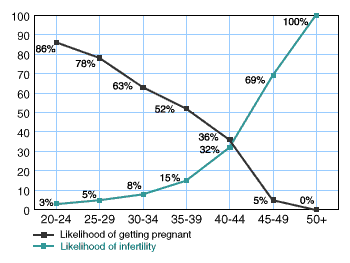
Fuente:www.pregprep.com
Aunque la ovulación se puede identificar retrospectivamente sobre la base del aumento de la temperatura corporal basal, la consistencia y aparición de moco cervical indica una ovulación inminente.2.
Esto se debe a que en la fase fértil el cervix uterino produce secreciones particularmente líquidas para facilitar el recorrido de los espermatozoides en el útero. Las mujeres usualmente producen mucho moco cervical, el que especialmente descubren durante su fase fértil cuando se limpian con papel higiénico.
Debido a que la ovulación se desencadena básicamente por otra hormona, la hormona luteinizante (LH), la elevada secreción de moco no es una prueba absoluta de ovulación. Por lo tanto, se recomienda calcular si la ovulación ha tenido lugar por medio de la combinación del examen de moco cervical y las mediciones de temperatura. Se puede anotar diariamente la consistencia de la secreción en el gráfico de temperatura.
Por lo general, una mujer necesita algunos meses para interpretar con precisión la consistencia del moco cervical. Sin embargo, además de esto, las observaciones y la experiencia pueden indicar en qué momento tiene lugar la fase fértil.
Aprender a interpretar el moco cervical
- Durante la menstruación, el cervix segrega muy poco moco cervical.
- En los días siguientes, se pueden encontrar coágulos de moco espesos y gomosos. Su forma apenas se modifica cuando se los estira usando dos dedos.
- Con el tiempo aparece más moco, y ahora este puede separarse más cuando se lo estira entre los dedos. Esta secreción se vuelve más delgada y más clara.
- Al comienzo de la fase fértil, algunos días antes de la ovulación, un hilo de moco puede estirarse varios centímetros sin romperse. En este momento es casi transparente y se parece a la clara del huevo.
- El día antes de la ovulación, el día más fértil del ciclo, el moco cervical se encuentra en el punto en que puede separarse hasta su distancia máxima posible durante todo el ciclo.
- Enseguida después de la ovulación, las secreciones vuelven a ser como coágulos y espesas. La fase fértil ha terminado.
El estrés y otros factores pueden dar como resultado fases con moco cervical menos espeso. Si ya ovuló, ahora solo puede determinar esto sobre la base de las mediciones de temperaturas más elevadas.
Examen del cervix
Las mujeres que producen menos moco cervical pueden palpar regularmente el cuello de sus úteros y sus cérvix para determinar cuándo están en su fase fértil. El cervix, que sobresale del útero y entra a la vagina, se abre durante el tiempo de ovulación. Esto crea una condición óptima para la penetración de los espermatozoides.
Durante la fase infértil, al comienzo del ciclo y después de la ovulación, el cervix está abajo en la vagina. Colóquese en cuclillas, o permanezca parada, introduzca sus dedos por la vagina y podrá sentirlo fácilmente. En este caso, el cervix es relativamente firme y duro.
En los días preliminares a la ovulación, el cuello del útero y el cervix están más arriba. En este punto, es más difícil sentirlos con los dedos. El cervix se abre, lo que se siente como un hoyito, o una hendidura en las estructuras esféricas. También se siente muy suave.
Este examen debe comenzar a realizarse al final de la menstruación. Es ideal que se utilice la misma posición, el mismo dedo y el mismo momento durante todo el ciclo.
Consejo importante: lávese las manos minuciosamente ante de realizar este examen para evitar infecciones. Además, vaciar la vejiga antes del examen le permite sentir el cervix con más facilidad.
Barras y tiras de pruebas
El nivel de la hormona luteinizante (LH) aumenta drásticamente al final de la primera mitad del ciclo, desencadenando la ovulación. Cuando el nivel de esta hormona llega a su máximo, indica que nos encontramos a un día de la ovulación.
Las tiras de pruebas funcionan bajo los mismos principios que las pruebas de embarazo. La mayoría de estas tiras de ovulación deben introducirse en la orina de la mujer y permanecer allí por algunos minutos. Pasados estos minutos, se hace visible el resultado. Si el valor de la hormona luteinizante es elevado, aparecen dos líneas.
Las pruebas usualmente indican el momento de mayor fertilidad de la mujer. En este caso, la intensidad de la tira que indica el nivel de LH es, al menos, tan fuerte como la tira de control. Debido a que todas las pruebas de ovulación funcionan de forma diferente, debe seguir cuidadosamente las instrucciones del fabricante.
Una vez que conoce su cuerpo por medio del uso del método de la temperatura y la inspección del moco cervical, ya está en condición de identificar las posibles fechas de ovulación. Se puede realizar esta prueba durante estas fechas para confirmar la fertilidad.
Es muy útil que, específicamente las mujeres que tienen ciclos irregulares, se realicen una prueba de ovulación . Esto se debe a que el método de la temperatura solo muestra que la ovulación tuvo lugar cuando el ciclo fértil ya pasó.
Desafortunadamente, en este caso se necesitan muchas tiras de pruebas. Se debe comenzar con el control alrededor de dos días antes de la fecha más temprana de ovulación, y continuarlo hasta que se observe el aumento de LH.
Programas para calcular la ovulación
El uso de un programa de computación para calcular el ciclo menstrual puede resultar muy útil para determinar la fase fértil. Estos programas utilizan los mismos elementos – temperatura3, aumento de LH y de progesterona.
La ventaja de utilizar un programa de computación es que puede procesar los datos por si mismo. Construye el gráfico y analiza los valores por usted.
Este programa es una adquisición muy útil para la planificación familiar. Puede ayudar a identificar la fase fértil de una pareja que está tratando de tener un hijo.
Aplicaciones para Celulares
Por último, pero no por eso menos importante, existe una enorme cantidad de aplicaciones de fertilidad para celulares, disponibles para iPhone y Android.
Estas aplicaciones ayudan a las mujeres a hacer un seguimiento de sus períodos y de los temas relacionados con la salud – tales como su peso y bienestar emocional y físico.
Las mujeres pueden recibir recordatorios de sus días más fértiles y usualmente todo se organiza en un calendario moderno y sencillo.
Muchas aplicaciones son gratuitas y algunas ofrecen características extra si paga por una versión Premium.
El truco consiste en saber cuáles son buenas y cuáles evitar.
Bibliografía
- «Charkoudian N, Stachenfeld NS. Influencias de las hormonas reproductivas en la termoregulación de la mujeres. Fisiología Integral, 2014; 4(2): 793-804» ↩
- «Gross BA. Indicadores naturales de ovulación para la planificación familiar. Fertilidad Reproductiva Clínica, 1987;5(3): 91-117» ↩
- «Gross BA. Indicadores de ovulación naturales para la planificación natural. Fertilidad Reproductiva Clínica, 1987;5(3): 91-117» ↩
Es muy significativo pensar en quedar embarazada a la edad de 40 años. Existe la creencia generalizada de que no es posible quedar embarazada después de esta edad.
Esto no es totalmente correcto. Con el rápido avance de las tecnologías de fertilización artificial de hoy en día, aún existe una posibilidad real de quedar embarazada después de los 40 años. En cambio, la probabilidad de infertilidad en las mujeres puede comenzar a aumentar a partir de los 20 años.
La posibilidad de embarazo depende de la edad
Después de tres ciclos en los que se mantuvieron relaciones sexuales sin protección, la posibilidad de quedar embarazada de las mujeres menores de 25 años es un poco inferior al 86%. A partir de los 25, la probabilidad disminuye considerablemente. Después de los 35, solo el 50% de las mujeres quedan embarazadas después de tres ciclos en los que mantuvieron relaciones sin protección.
La razón: No todas las condiciones biológicas son tan buenas como a los 20 años. La siguiente tabla muestra cómo disminuye la probabilidad de embarazo al aumentar la edad de la mujer
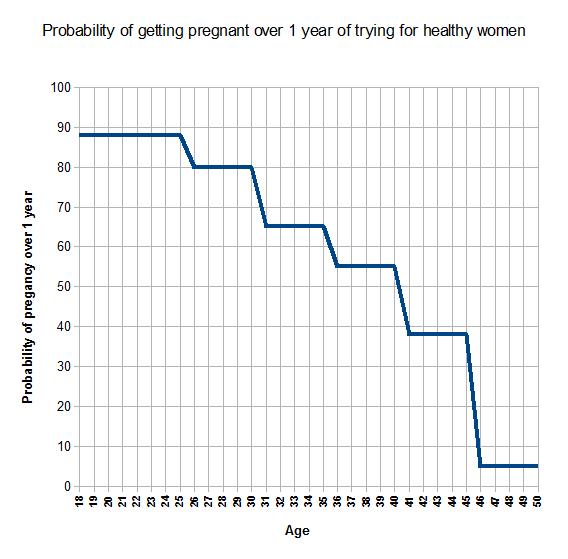
Probabilidad de infertilidad y la edad de la mujer
La probabilidad de infertilidad aumenta al aumentar la edad de la mujer. En la siguiente tabla se muestra la probabilidad en porcentajes:

Es importante que las mujeres de más de 30 planeen su embarazo y mejoren la probabilidad de tener un hijo.
Para favorecer un embarazo sano, pueden manejar su estilo de vida, abstenerse de fumar, de tomar alcohol, y consumir una amplia provisión de los siguientes nutrientes: Ácido fólico1, omega-32 (DHA y EPA de aceite de pescado), hierro3 y vitaminas B4, son especialmente importantes durante las primeras semanas y meses del embarazo y son esenciales para el desarrollo sano del feto.
En Europa, alrededor del 85% de las mujeres tienen déficit de ácido fólico debido a la insuficiente provisión de este ácido en su dieta. El efecto que esto produce es aumentar, en aproximadamente un 400%, la posibilidad de espina bífida ( lo que literalmente significa columna vertebral dividida).
Los doctores aconsejan a las mujeres consumir suplementos nutricionales específicos cuando están planeando quedar embarazadas. Si una mujer ya está en su sexta semana de embarazo, es posible que el déficit de ácido fólico ya haya causado un daño irreversible en la columna vertebral del feto.

Las posibilidades de quedar embarazada pueden mejorar si se toman las siguientes medidas:
- Determine cúando es su período fértil. Durante este tiempo (aproximadamente tres días antes y uno después) mantenga relaciones sexuales.
- Se recomienda la abstinencia del hombre justo antes del período fértil.
- El desarrollo de los espermatozoides puede aumentar con una dieta específica de micronutrientes para la fertilidad masculina que consiste en vitaminas, aminoácidos y antioxidantes. Puede encontrar aquí más información sobre cómo mejorar la producción de espermatozoides.
Bibliografía
- «Olsen SF, Knudsen VK. Ácido fólico para la prevención de defectos del tubo neural: la experiencia danesa. Boletín de Nutrición Alimenticia. 2008; 29(2): 205-9» ↩
- «Jones ML, Mark PJ, Waddell BJ. Ácidos grasos omega-3 en la dieta materna y la función de la placenta. Reproducción. 2014; 147(5): 143-52» ↩
- «Pena-Rosas JP, De-Regil LM, Dowswell T, Viteri FE. Suplementos diarios de hierro por via oral durante el embarazo. Base de datos de Cochrane, análisis sistemáticos. 2012» ↩
- «Ronnenberg AG, Goldman MB, Chen D, Aitken IW, Willett WC, Selhub J, Xu X. Condición de la vitamina B y la homocisteína en la preconcepción y resultados de los nacimientos en mujeres chinas. Am J Clin Nutr. 2002; 76(6): 1385-91» ↩
El factor de infertilidad masculina es muy común y son muchos los motivos que pueden influir para desencadenarlo
La infertilidad afecta a hombres y a mujeres por igual. El factor de infertilidad masculina representa el 40% de todas las parejas que luchan por concebir, mientras que el factor de infertilidad femenina es la causa de otro 40% de los casos.
En el 20% de los casos restantes existen problemas tanto en los hombres como en las mujeres. El factor de infertilidad masculina puede ser el resultado de una variedad de problemas y en muchos casos, de una combinación de motivos. Las causas principales se enmarcan en las siguientes categorías:
Condiciones que causan la infertilidad masculina
Trastornos del esperma
Las causas más comunes del factor de infertilidad masculina se relacionan con problemas asociados a la producción y la maduración de los espermatozoides. Estos problemas pueden incluir la forma anómala, la poca motilidad o simplemente una baja producción de espermatozoides, la cual puede ser anormalmente baja (oligospermia) o no haber producción alguna (ausencia de espermatozoides = azoospermia).
Esto puede ser el resultado de una variedad de factores que incluyen:
- Condiciones inflamatorias o enfermedades infecciosas, como el virus de las paperas
- Trastornos (Auto-)inmunológicos, en los que el esperma es atacado
- Trastornos pituitarios, hormonales o endocrinos
- Estilo de vida y factores ambientales, como una dieta pobre
- Trastornos genéticos que están directa o indirectamente relacionados con las anomalías del esperma. Condiciones como la enfermedad depranocítica, el síndrome de Noonan, la distrofia miotónica y la hemacromatosis pueden dar como resultado la disfunción testicular y las anomalías de los espermatozoides. Otras condiciones como la fibrosis quística, el síndrome del sexo inverso, y otras anomalías cromosómicas pueden causar la azoospermia o la oligospermia.
Disquinesia ciliar primaria (DCP)
Anomalías anatómicas
Las obstrucciones del tracto genital pueden bloquear parcial o totalmente el flujo del líquido seminal y causar infertilidad. Las anomalías pueden ser congénitas o causadas por una inflamación o infección del tracto urogenital.
Una cirugía que dejó tejido cicatrizal puede también provocar bloqueos, del mismo modo que la varicoceles escrotal.
Estos bloqueos usualmente pueden revertirse por medio de cirugía.
Deleciones mitocondriales
La mitocondria contiene un conjunto de genes distintos a los cromosomas normales que se encuentran en el núcleo. Investigaciones realizadas muestran que si estos genes dentro del ADN mitocondrial están ausentes o se encuentran alterados, pueden causar la infertilidad1.
Condiciones secundarias
La diabetes, la enfermedad del hígado, y la enfermedad renal pueden producir una infertilidad secundaria (la incapacidad de concebir un segundo hijo). Además, existen ciertos medicamentos y tratamientos para otras condiciones médicas que pueden producir la infertilidad masculina.
Estadísticamente, la disfunción eréctil también puede disminuir las posibilidades de concepción.
¿Qué es la infertilidad idiopática?
A pesar de haber muchas causas para el factor de infertilidad masculina, a veces es difícil de diagnosticar con certeza la causa exacta. A esta infertilidad inexplicable se la denomina infertilidad idiopática.
Los parámetros del semen pueden ser anómalos, y sin embargo, no puede determinarse la(s) causa(s). Quizás no se identifique ninguna anomalía, y sin embargo no se puede concebir. Aproximadamente el 30% de los hombres infértiles son clasificados como idiopáticos.
Los hombres con infertilidad idiopática normalmente presentan una disminución inexplicable de la calidad del semen en relación con la motilidad, cantidad y morfología del esperma, a pesar del normal funcionamiento endócrino y de que los exámenes médicos resulten normales. Hacer modificaciones positivas en el estilo de vida puede, en muchos casos, ayudar a mejorar la fertilidad.
Es importante evitar el excesivo consumo de alcohol, tabaco y otras drogas. Ejercitarse adecuadamente y tener un peso saludable puede mejorar la fertilidad . Es particularmente importante cubrir las necesidades nutricionales del cuerpo para favorecer la reproducción sana.
[ult_animation_block animation=»zoomIn» animation_duration=»2″ animation_delay=»0″ animation_iteration_count=»1″ opacity=»set» opacity_start_effect=»90″][ult_buttons btn_title=»Infórmese más sobre la manera de favorecer naturalmente la fertilidad masculina con nutrientes alimenticios» btn_link=»url:http%3A%2F%2Fla-fertilidad.com%2Flos-efectos-de-los-nutrientes-en-la-fertilidad-masculina%2F||» btn_align=»ubtn-center» btn_size=»ubtn-custom» btn_title_color=»#000000″ btn_bg_color=»#5656ef» btn_hover=»ubtn-left-bg» btn_anim_effect=»ulta-hang» icon_size=»22″ btn_icon_pos=»ubtn-sep-icon-left» btn_border_size=»10″ btn_radius=»10″ btn_shadow_size=»5″ btn_shadow_click=»enable» enable_tooltip=»yes» tooltip_pos=»bottom» icon=»Defaults-check» icon_color=»#000000″ btn_bg_color_hover=»#adc9ea» btn_border_style=»double» btn_color_border=»#ffffff» btn_font_style=»font-weight:bold;» btn_font_size=»15″ btn_width=»800″ btn_height=»50″ btn_padding_left=»10″ btn_padding_top=»10″ btn_color_border_hover=»#1e73be»][/ult_animation_block]
Bibliografía
- Kao, S. et.al. (1995). La deleción de 4977-pb del ADN mitocondrial se asocia a la disminución de la fertilidad y motilidad del esperma humano. Biología de la Reproducción, Volumen 52, Edición 4, (pp. 729-36).” ↩
- «Nikolova, V. et.al. (2007). Parámetros del esperma en la infertilidad masculina idiopática después de un tratamiento con prelox. Akush Ginekol (Sofiia), Volumen 4, Edición 5, (pp. 7-12).» ↩
Los nutrientes naturales de los alimentos influyen de dos maneras muy importantes en la fertilidad femenina:
-
Mejoran la salud general de la futura mamá, lo que indirectamente aumenta la fertilidad femenina,
-
aseguran la presencia de una cantidad fundamental de nutrientes para el feto. Esto ayuda a que se desarrolle de forma sana desde el momento de la concepción.
NUTRIENTES DESTACADOS PARA LA FERTILIDAD FEMENINA Y EL EMBARAZO

Efectos de los nutrientes en la fertilidad masculina clínicamente comprobados
Nuestro cuerpo necesita una provisión constante de nutrientes para mantenerse sano. Para funcionar de forma óptima, nuestros procesos fisiológicos necesitan de diferentes vitaminas, minerales, aminoácidos y oligoelementos. En los hombres, la producción de esperma es muy sensible a los bajos niveles de nutrientes y al estrés oxidativo.
Una gran cantidad de estudios de investigación científica independientes, sometidos a una revisión inter pares, han demostrado que el efecto de los micronutrientes en la fertilidad masculina es significativo. Por el contrario, la ausencia o escasez de ciertos nutrientes pueden causar la «subfertilidad» masculina. La insuficiencia de un nutriente en particular raramente causa la infertilidad total, pero puede limitarla innecesariamente y demorar la subsiguiente concepción.
Nutrientes importantes que favorecen la fertilidad masculina
Arginina
La arginina, un aminoácido no esencial, es beneficiosa tanto directa como indirectamente para la fertilidad masculina.
Como precursor del ácido nítrico, la arginina favorece la vasodilatación y el abundante flujo sanguíneo. Esto es indirectamente importante para la fertilidad, ya que ayuda a prolongar las erecciones, y, por lo tanto, estadísticamente aumenta los índices de concepción.
De hecho, los estudios realizados confirman que el suplemento de arginina puede aumentar la fertilidad de forma indirecta al mejorar la actividad sexual en hombres con disfunción eréctil1.
La arginina también influye directamente en los principales parámetros del esperma. Varios estudios clínicos encontraron que el consumo diario de entre 4 y 8 g de arginina puede mejorar la motilidad, cantidad y concentración de espermatozoides2 así también como el volumen de eyaculación3.
Este aminoácido, del cual no se conocen efectos secundarios, puede favorecer la fertilidad masculina sana sin correr riesgos.
Glutatión
El glutatión es un poderoso antioxidante que protege a los espermatozoides del daño de los radicales libres. Los estudios clínicos han establecido una conexión entre los parámetros anormales del esperma y los bajos niveles de glutatión dentro del plasma seminal.
El glutatión parece ser particularmente importante para proteger el volumen del semen, la cantidad de espermatozoides4, la motilidad de los espermatozoides5 y su morfología6.
El glutatión puede producirse dentro del cuerpo, aunque depende de la existencia de otros aminoácidos, especialmente la L-Cisteína. Durante períodos de estrés o enfermedad, el cuerpo puede exigir mayor cantidad de glutatión y de esta Cisteína.
El hecho de que la Cisteína sea insuficiente, puede producir bajos niveles de glutatión y en consecuencia, afectar la fertilidad de forma negativa. Por lo tanto, es importante garantizar un abundante suministro por medio de la dieta.
Carnitina
El aminoácido Carnitina es importante para prolongar la producción de energía y motilidad de los espermatozoides7. La carnitina, sintetizada de los aminoácidos lisina y metionina, ayuda a estimular las mitocondrias y eliminar residuos, los que resultan de la producción de energía.
Por medio de investigaciones se encontró una conexión entre los bajos niveles de carnitina y la infertilidad masculina8. Otros estudios sugieren que el suplemento de carnitina puede ayudar a mejorar la calidad del esperma en general9.
En resumen, se demostró que la complementación con este aminoácido aumenta la cantidad y concentración de espermatozoides, protege la integridad y morfología del ADN, además de mejorar la motilidad10.
Vitamina A
Los estudios realizados han encontrado que la vitamina A es esencial para la espermatogénesis. Esta vitamina activa las vías de los receptores nucleares que indican a los testículos que produzcan esperma.11.
Aunque se necesitan más estudios para determinar las dosis apropiadas de complementación, existe evidencia preliminar que sugiere que esta vitamina puede participar en el tratamiento de infertilidad masculina y ayudar a mejorar la probabilidad de una fertilización artificial exitosa como la FIV o IIU12.
Ácido fólico (vitamina B9)
Se demostró que el ácido fólico, ampliamente reconocido como un componente importante de la salud reproductiva femenina, también mejora la fertilidad masculina. Se necesita para favorecer la espermatogénesis de los espermatozoides, lo cual lleva al aumento de la cantidad y densidad del esperma13.
También ayuda a proteger a los espermatozoides en desarrollo de defectos cromosómicos14, los que pueden contribuir a una esterilidad deficiente.
Se relacionan los bajos niveles de ácido fólico con una taza 30% más alta de abortos espontáneos. Alrededor del 80% de los hombres muestran bajos niveles de ácido fólico en suero.
Vitamina B12
Vitamina C
El ácido ascórbico (vitamina C) generalmente se encuentra en altas concentraciones dentro del plasma seminal. Los estudios demuestran que esta vitamina es responsable de hasta el 65% de neutralización de radicales libres dentro del semen. Esto ayuda a proteger a los espermatozoides en desarrollo y mantener la fertilidad.
Se han asociado los bajos niveles de ácido ascórbico en el plasma seminal con una disminución en la cantidad y motilidad del esperma, además de un aumento de anomalías morfológicas15. Se estima que un tercio de la población no se alimenta de forma lo suficientemente saludable como para cubrir el consumo mínimo de 80 mg de Vitamina C por día.
Vitamina D
El esperma humano posee receptores que específicamente se unen a la vitamina D16.
Aunque se necesitan realizar más investigaciones, los primeros estudios sugieren que el esperma genéticamente sano requiere de vitamina D17, ya que esta vitamina parece desempeñar un papel esencial en la regulación de la fragmentación del ADN y la estabilización de la estructura cromosómica.
Los bajos niveles de Vitamina D en suero es algo general. Entre el 70% y 90% de los europeos muestran niveles de Vitamina D poco óptimos. Este problema es más serio en Europa Central y Septentrional y durante el invierno.
Vitamina E
La vitamina E es particularmente importante para la disminución del estrés oxidativo y por lo tanto, para la protección del esperma y el ADN18. También se ha demostrado que mejora directamente la motilidad del esperma19. Por lo tanto, los hombres que sufren de bajos niveles de fertilidad pueden aumentar las posibilidades de concepción con suplementos de vitamina E. Casi la mitad de la población no alcanza a consumir la dosis mínima de 12 mg de vitamina E que se recomienda ingerir diariamente.
Coenzima Q10
La coenzima Q10, un vitaminoide, actúa como una vitamina y ayuda a minimizar el daño que producen los radicales libres. Los estudios demuestran que los suplementos de CoQ10 pueden mejorar la morfología, densidad y motilidad del esperma20.
Este micronutriente es particularmente importante para favorecer el avance de los espermatozoides21 y protegerlos de radicales libres22.
omega3
Los estudios demuestran que los niveles de ácido graso omega 3 en el plasma sanguíneo pueden influir en la fertilidad. Los hombres infértiles tienen concentraciones más bajas de estos ácidos grasos dentro de sus espermatozoides que los hombres fértiles23. Otras investigaciones sugieren que la complementación de ácido graso omega 3 puede ayudar al factor de infertilidad masculina idiopática (causa desconocida)24.
Extracto de corteza de pino
Las pruebas clínicas han demostrado que los componentes de la corteza de pino mejoran la morfología, motilidad y cantidad del esperma.25
Además, este extracto amplifica los efectos beneficiosos de la Arginina en la fertilidad masculina. Los estudios realizados demuestran que la combinación del extracto de pino marino francés con la arginina ayuda satisfactoriamente en el tratamiento de infertilidad masculina idiopática (causa desconocida)26.
También existe evidencia clínica que sugiere que el extracto de corteza de pino ayuda indirectamente a la fertilidad al mejorar la resistencia física y capacidad de erección27.
Selenio
Este oligoelemento mantiene la integridad estructural de los espermatozoides. Ayuda a disminuir el estrés oxidativo y es un co-condicionante de la motilidad del esperma sano28. En Europa, la producción agrícola tiene especialmente bajos niveles de Selenio.
Zinc
Uno de los oligoelementos más importantes para la fertilidad masculina es el zinc29. Se necesita como componente esencial en la producción de la membrana y cola de los espermatozoides30.
Los estudios revelan una correlación entre la infertilidad y las concentraciones reducidas de zinc en el plasma seminal31. Sin el suficiente zinc disponible, los espermatozoides no pueden madurar al ritmo normal, lo que disminuye la cantidad de espermatozoides32 dando potencialmente como resultado la subfertilidad masculina.
¿Cuándo son una opción los micronutrientes?
 La recomendación habitual para ambos miembros de la pareja que quieren ser padres es tener un estilo de vida saludable. No se debe esperar a estar en una situación de terapia clínica para favorecer la fertilidad masculina.
La recomendación habitual para ambos miembros de la pareja que quieren ser padres es tener un estilo de vida saludable. No se debe esperar a estar en una situación de terapia clínica para favorecer la fertilidad masculina.
Los suplementos alimenticios son una de las maneras más fáciles y efectivas de asegurar que el cuerpo tenga acceso a nutrientes que favorezcan la fertilidad. Hay una variedad de suplementos naturales que han sido preparados con nutrientes importantes para la fertilidad masculina.
Aumente sus posibilidades de forma eficiente y efectiva
Enfáticamente se alienta a los hombres que desean comenzar una familia a que consideren un suplemento alimenticio. Esto asegura que esté cubierto cualquier tema de fertilidad debido a la deficiencia de nutrientes. Es una manera efectiva, asequible, comprobada y conveniente de favorecer la fertilidad masculina – especialmente si consideramos los altos costos y las probabilidades inciertas de los tratamientos para la fertilidad como la FIV y la ICSI.
Los suplementos, junto con las modificaciones necesarias para tener un estilo de vida positivo, pueden ayudar de forma significativa a aumentar los índices de concepción.
¿Un solo nutriente o varios juntos?
La fuerza de una cadena se determina por su eslabón más débil. Ya sea que el hombre sufra las consecuencias de una baja cantidad de espermatozoides, poca motilidad o mala calidad general, es muy efectivo tomar un producto combinado con múltiples nutrientes que mejoren la fertilidad. Esto aumenta la probabilidad de maximizar los múltiples parámetros del esperma y por lo tanto el conteo general Total de Motilidad de los Espermatozoides (TMS).
TMS es el producto matemático de la cantidad, la motilidad y el volumen de espermatozoides y mide cuántos millones de espermatozoides de máxima calidad están presentes en una eyaculación completa.
Los micronutrientes para la fertilidad son asequibles, se toleran muy bien y son muy elogiados por su efectividad, ya que mejoran múltiples parámetros del esperma de forma simultánea.
Aumentar el consumo de nutrientes para estimular la fertilidad masculina
Habiendo demostrado los efectos de los nutrientes en la fertilidad masculina, los hombres que quieran comenzar una familia necesitan prestar mucha atención a su dieta.
Si bien el cuerpo puede producir algunos aminoácidos como el glutatión, la arginina y la carnitina, a menudo se necesita algún suplemento alimenticio para mantener los niveles saludables.
Aunque una dieta balanceada y enriquecida con alimentos no elaborados puede ayudar a mantener la existencia de nutrientes necesarios para una fertilidad sana, puede haber limitaciones. Por ejemplo, durante períodos de enfermedad o estrés prolongado, las demandas nutricionales del cuerpo aumentan. Esto puede llevar, algunas veces, a una disminución de la fertilidad.
Además, los factores del estilo de vida, como el consumo de tabaco y alcohol, el insuficiente descanso, el excesivo aumento de peso y la inactividad pueden afectar de forma negativa a la fertilidad.
Todos los nutrientes para la fertilidad masculina
Bibliografía
- «Chen, J. et. al. (1999). Efecto de la administración oral de altas dosis de L-arginina, donante de ácido nítrico, en hombres con disfunción eréctil orgánica: resultados de un estudio doble ciego, aleatorio y controlado con placebo, BJU Internacional, Volumen 83, Edición 3, (pp. 269-73)» ↩
- «Schachter, J. et. al. (1973) Tratamiento de oligospermia con el aminoácido arginina. Revista de Urología, Volumen 110, (pp. 311-13)» ↩
- «Imhof, Martin et al., “Aumento de la calidad del esperma después del consumo de suplementos de micronutrientes”, e-SPEN, la revista electrónica europea de metabolismo y nutrición clínica» ↩
- «Naher, Z. et.al. (2011). Rol del glutatión en la infertilidad masculina. Revista Bangladesh de Bioquímica Médica, Volumen 4, Edición 2, (pp. 20-25)» ↩
- «Lenzi, A. et.al (1993). Prueba de terapia con glutatión, cruzada, doble ciega y controlada con placebo en la infertilidad masculina. Reproducción Humana, Volumen 8, Edición 10, (pp. 1657-67)» ↩
- «Eskiocak, S., et al. (2005). Glutatión y contenido de sulphidrilo libre del plasma seminal en estudiantes de medicina sanos durante y después, Reproducción Humana, Volumen 20, Edición 9, (pp. 2295-600″ ↩
- «De Rosa, M. et.al. (2005). Correlación entre la carnitina seminal y las características funcionales de los espermatozoides en hombres con disfunción seminal de diversos orígenes. Drogas en R&D, Volumen 6, Edición 1, (pp.1-9)» ↩
- «Mataliotakis, I. et.al. (2000). Niveles de L-Carnitina en el plasma seminal de hombres fértiles e infértiles: correlación con la calidad del esperma. Revista Internacional Fertilidad y Medicina de la Mujer, Volumen 45, Edición 3, (pp. 236-240)» ↩
- «Balercia, M. et.al. (2005). Prueba aleatoria, doble ciega y controlada con placebo sobre el uso de l-carnitina, l-acetilcarnitina, o la combinación de l-carnitina y l-acetilcarnitina en hombres con astenozoospermia idiopática. Fertilidad y Esterilidad, Volumen 84, Edición 3. (pp. 662-671)» ↩
- «Banihani S. et.al. (2012). Oxidación del ADN humano, motilidad y viabilidad en presencia de L-carnitina durante la incubación in vitro y centrifugado. Andrología, Volumen 44, Edición 1, (pp. 505-12)» ↩
- «Zhou, X. et.al. (2011). El receptor nuclear huérfano TR4 es un receptor nuclear activado por la vitamina A. Revista de Química Biológica, Volumen 286, Edición 4, (pp. 2877-85).» ↩
- «Merviel P, Heraud MH, Grenier N, Lourdel E, Sanguinet P, Copin H (Noviembre 2008). “Factores predictivos de embarazo después de la inseminación intrauterina (IIU): Un análisis de 1038 ciclos y evaluación de la información”. Fertilidad y Esterilidad. 93 (1): 79–88. doi:10.1016/j.fertnstert.2008.09.058. PMID 18996517» ↩
- «Wallock L. et.al. (2001). Las bajas concentraciones de folatos en el plasma seminal se asocian con la baja densidad y cantidad de esperma en hombres fumadores y no fumadores. Fertilidad y Esterilidad, Volumen 75, (pp. 252-9)» ↩
- «Young, S. et.al (2007). La asociación del consumo de folato, zinc y antioxidantes con aneuploidía del esperma en hombres sanos no fumadores. Reproducción Humana, Volumen 23, Edición 5, (pp. 1014-1022)» ↩
- «Colagar, A. y Marzony, E. (2009). Ácido ascórbico en el Plasma Seminal Humano: Determinación y su Relación con la Calidad del Esperma. Revista de Bioquímica Clínica y Nutrición, Volumen 45, Edición 2, (pp. 144-49)» ↩
- «Lerchbaum, E. y Obermayer-Pietsch, B. (2012). Vitamina D y fertilidad: un estudio sistemático. Revista europea de Endocrinología, Volumen 166, Edición 5, (pp. 765-78)» ↩
- «Aquila, S. et.al. (2008). “Anatomía del esperma humano: localización ultraestructural del receptor de calcitriol y su posible desempeño en los gametos de los humanos masculinos. Revista de Anatomía, Volumen 213, Edición 5, (pp. 555-84)» ↩
- «Suleiman, S. et.al. (1996). Peroxidación lipídica y la motilidad del esperma humano: acción protectora de la vitamina E. Revista de Andrología, Volumen 17, Edición 5, (pp. 530-7)» ↩
- «http://www.jstor.org/discover/10.2307/76145?» ↩
- «Safarinejad, M. (2009). Eficacia de la coenzima Q10 en los parámetros del semen, desempeño del esperma y hormonas reproductivas en hombres infértiles, La Revista de Urología, Volumen 182, Edición 1, (pp. 237-28)» ↩
- «Mancini, A. y Balercia, G. (2011). Coenzima Q10 en la infertilidad masculina: fisiopatología y terapia. Biofactores, Volumen 37, Edición 5, (pp374-80)» ↩
- «Talevi, R. et.al. (2013). Efectos protectores del tratamiento in vitro con zinc, d-aspartato y coenzima Q10 en la motilidad del esperma humano, peroxidación lipídica y fragmentación del ADN. Biología Reproductiva y Endocrinología, Volumen 16, Edición 11, (pp.81)» ↩
- «http://www.ncbi.nlm.nih.gov/pubmed/19666200» ↩
- «http://www.ncbi.nlm.nih.gov/pubmed/22659579» ↩
- «Roseff, S. (2002). Mejoramiento de la calidad y actividad del esperma con extracto de corteza de pino marino francés. Revista de Medicina Reproductiva, Volumen 47, Edición 10 (pp.821-4)» ↩
- «Nikolova, V. et.al. (2007). Parámetros del esperma en la infertilidad masculina idiopática después de un tratamiento con prelox. Akush Ginekol (Sofiia), Volumen 4, Edición 5, (pp. 7-12)» ↩
- «Stanislavov, R. y Nikolova, V. (2003). Tratamiento de disfunción eréctil con Pycnogenol y L-arginina. Revista de Sexo y Terapia marital, Volumen 29, Edición 3, (pp. 207-13)» ↩
- «Hansen, J. y Deguchi, Y. (1996). La fertilidad masculina se relaciona con la selenoproteína fosfolípido-hidroperóxido-glutatión peroxidasa . Acta Veterinaria Scandinavica, Volumen 37, Edición 1, (pp.19-30)» ↩
- «Abbasi, A. et.al. (1980). Deficiencia experimental de zinc en el hombre. Efectos en el funcionamiento testicular. La Revista de Laboratorio y Medicina Clínica, Volumen 96, Edición 3, (pp.544-50)» ↩
- «Caldamone, M. et.al. (1979). Zinc seminal e infertilidad masculina. Urología, Volumen 13, Edición 3, (pp. 280-281)» ↩
- «Chia, S. et.al. (2000). Comparación de las concentraciones de zinc en la sangre y el plasma seminal y los diferentes parámetros del esperma entre hombres fértiles e infértiles. Revista de Andrología, Volumen 21, Edición 1, (pp. 53-57).» ↩
- «Tikkiwal M. et.al. (1987). Efecto de la administración de zinc en el zinc seminal y fertilidad de hombres oligospérmicos. Revista India de Fisiología y Farmacología, Volumen 31, Edición 1, (pp. 30-34)» ↩
Métodos, Costos y Posibilidades
Cuando la pareja se decide por la fertilización artificial, comienza una nueva fase de la planificación familiar. El proceso puede ser financiera, física y mentalmente demandante para ambos miembros, pero la recompensa está cerca.
Las mujeres pueden tener dificultades con las hormonas que necesitan tomar. Estas pueden provocarles cambios de humor, dolores de estómago y náuseas. Este período puede resultar muy difícil para los hombres, ya que frecuentemente se sienten inútiles.
Además, los costos financieros pueden ser una gran carga en el presupuesto familiar, ya que con frecuencia la pareja gasta mucho dinero en los tratamientos de fertilidad.
Usualmente el último recurso (pero efectivo)
Debido a esto, las parejas tienden solo a optar por la fertilización artificial después de haber agotado todos los métodos naturales de concepción.
Los hombres deben asegurarse de que la calidad de su esperma sea excelente. Esto significa que deben implementar cambios en el estilo de vida y mejorar su dieta de manera específica1,2.
Se ha demostrado que varios micronutrientes estimulan el desarrollo de espermatozoides más saludables y móviles en los hombres subfértiles (mire la comparación de la izquierda).
A las mujeres se les recomienda tomar altas dosis de compuestos multivitamínicos para disminuir el estrés oxidativo. También deberían incluirse las vitaminas, el ácido fólico 3 y los ácidos grasos esenciales, ya que estos micronutrientes pueden fomentar el desarrollo saludable del embrión.4,5.
Riesgos
Existen varios riesgos evidentes asociados con la fertilización artificial, que pueden manejarse satisfactoriamente si la pareja está bien informada antes de comenzar el tratamiento.
Costos y posibilidades de éxito con el método de fertilización artificial
Inseminación intrauterina
La inseminación intrauterina (IIU) es el método más común de fertilización artificial, en la que el esperma tratado en el laboratorio se inyecta directamente en el útero. En cambio, cuando solo se dispone de una pequeña cantidad de espermatozoides, se usa un método similar llamado inseminación intratubárica (IIT). En este caso, el esperma se inyecta directamente en las trompas de falopio.
El esperma se obtiene generalmente por medio de la masturbación. La inseminación en si misma es indolora y el procedimiento no presenta mayores riesgos.
Costos y posibilidades de éxito
Si la mujer utiliza el esperma de su pareja, el costo promedio de la inseminación artificial en Europa Occidental y los Estados Unidos es de €400 por ciclo. Sin embargo, este costo puede aumentar a €2,000 cuando se le suma el costo del monitoreo por ultrasonido y la medicación.
Tenga en cuenta que los costos son significativamente inferiores en Europa Oriental y el Extremo Oriente, dependiendo de la institución.
El índice de éxito depende de usted, de su edad y la fertilidad de su pareja. La mayoría de las parejas que recurren a la IIU tienen una posibilidad del 5 al 20 por ciento de quedar embarazadas con cada ciclo. Si, junto con este procedimiento, se usan drogas para la fertilidad, las posibilidades pueden ser aproximadamente del 20 por ciento. No se documenta la estadística de nacidos vivos por medio de la inseminación artificial.
Fertilización In-Vitro
En la fertilización in-vitro, se extraen los óvulos maduros de la mujer y se combinan con el esperma de su pareja en un laboratorio. Si se produce la fertilización, hasta cuatro embriones (depende del país) se introducen en su útero a través de la vagina. En caso de fertilizarse más de cuatro óvulos, estos pueden congelarse para ser usados en un tratamiento posterior.
Costos y probabilidades de éxito
La HFEA (Autoridad de Embriología y Fertilización Humana) del Reino Unido presenta las posibilidades de éxito tanto para la FIV (Fertilización in vitro) como para la ICSI (sigla en inglés para: Inyección intracitoplasmática de espermatozoides) de la siguiente manera:
La capacidad de concebir de una mujer disminuye con la edad. Si está usando sus propios óvulos, en promedio, tiene mayores posibilidades de éxito cuánto más joven sea.
En el Reino Unido, en el 2010 (año del que se disponen los datos más recientes) el porcentaje de ciclos comenzados que resultaron en nacidos vivos (promedio nacional), en mujeres que se hicieron fertilización in vitro, usando embriones frescos creados con su propios óvulos frescos, fue:
- 32.2% en mujeres menores de 35
- 27.7% en mujeres entre 35 y 37 años
- 20.8% en mujeres entre 38 y 39 años
- 13.6% en mujeres entre 40 y 42 años
- 5.0% en mujeres entre 43 y 44 años
- 1.9% en mujeres a partir de los 45 años
La mayoría de las mujeres tienen una tasa del 20% al 35% de éxito por ciclo. Esta es la razón por la que se intentan hasta 3 ciclos.
El costo puede variar radicalmente desde aproximadamente $10,000 / €8,000 / £7,000 por ciclo en los Estados Unidos y el Reino Unido, hasta aproximadamente $4,500 / €4,000 / £3,500 por ciclo en países de Europa Occidental como Francia y España, hasta $2,000 / €1,600 / £1,400 o un monto menor, en países como India, Turquía y Lituania.
Algunos riesgos específicos de la FIV
Una vez implantados los embriones, la mujer puede tomar progesterona (hormona segregada por el cuerpo lúteo) y de esta manera ayudar a su propio cuerpo. En estos casos, hay mayor probabilidad de un embarazo ectópico o de un aborto natural en la FIV que en la fertilización natural.
No se ha podido demostrar de forma concluyente que sea un tema controversial entre los profesionales si la tasa de deformidades congénitas es mayor al usar estos métodos de fertilización artificial. 6,
Inyección intracitoplasmática de esperma
El procedimiento conocido como inyección intracitoplasmática de espermatozoides (sigla en inglés, ICSI) es muy similar a la FIV en lo que se refiere a los pasos del tratamiento y los riesgos que representa. En la FIV los espermatozoides y los óvulos se combinan fuera del cuerpo ( = «in vitro») en una probeta, lo que permite que el espermatozoide penetre de forma natural al óvulo.
En la ICSI el doctor inyecta un solo espermatozoide directamente dentro del óvulo. Por lo tanto, este método es específicamente útil en casos donde la calidad del esperma es muy baja y se hallan muy pocas o ninguna célula germinal en él.
Costos y probabilidades
Las posibilidades de éxito de la ICSI son virtualmente idénticas a la FIV y por lo tanto no se presentan separadamente. Diríjase a la sección de probabilidades en el cuadro de FIV más arriba.
El costo de la ICSI en los Estados Unidos y el Reino Unido promedia los $1,500 / €1,200 / £1,000 por ciclo. Los precios varían de acuerdo a su fertilidad y ubicación geográfica.
Los precios suelen ser estimaciones basadas en la estimulación con drogas para la fertilidad, durante aproximadamente 10 a 12 días, en los ciclos de los tratamientos de FIV, ICSI e IMSI (Inyección intracitoplasmática de espermatozoides morfológicamente seleccionados). Los costos de las drogas son difíciles de predecir, ya que la respuesta a la estimulación depende de cada paciente y las dosis pueden tener que aumentarse o disminuirse durante el ciclo del tratamiento.
Nuevamente, tanto el precio del tratamiento como de las drogas puede ser significativamente menor en los países de Europa Oriental, o fuera de Europa.
Riesgo específico de la ICSI
Para la ICSI, el esperma se obtiene a través de la extracción de tejido de los testículos o el epidídimo. Cuando se hace la biopsia de los testículos o el epidídimo se usa un anestésico de corta duración. Esta operación de microcirujía representa un cierto riesgo, como ocurre en todas las operaciones.
Donación de óvulos (Trasplante alogénico de óvulos)
Este proceso consiste en la fertilización, en una probeta, del óvulo de una donante con los espermatozoides del hombre. Este proceso no está permitido en varios países de la Unión Europea, como por ejemplo, Alemania.
En esta forma de fertilización artificial, el óvulo fertilizado se implanta en el útero de la mujer que intenta quedar embarazada. La donante, por su parte, normalmente no tiene ninguna relación con la criatura.
Sección
Pautas generales de los costos
Como se explica en las secciones individuales, los costos varían de forma significativa y usualmente no están cubiertos por el seguro médico. En general, no debe planear un presupuesto menor de €10,000 si espera recibir un tratamiento profesional y una posibilidad razonable de éxito.
Sin embargo, los costos no deben ser su preocupación primordial. Es más importante su salud y la búsqueda y el proceso de selección de la clínica de fertilidad.
Durante este proceso de selección, tenga en cuenta las siguientes tendencias:
- En áreas donde no existen muchas clínicas de infertilidad, los precios, en promedio, son más altos, debido a la escasa competencia
- El costo de vida alta no equivale a altos costos de tratamiento
- Los precios de la IIU varían en un factor de 10, o sea, una enorme diferencia. Algunas cotizaciones incluyen medicación, análisis de sangre y sonogramas mientras que otras no los incluyen, eh ahí la inmensa diferencia.
Preguntas que debe hacer
Las parejas que están considerando la fertilización artificial deben elegir la clínica muy cuidadosamente y sopesar varios factores. Si el costo en un factor determinante para su decisión, pídale a la clínica una lista detallada de los procedimientos y los costos correspondientes, y también haga las siguientes preguntas:
- ¿Incluye el costo del tratamiento las consultas y el trabajo de laboratorio, los exámenes y las drogas ?
- ¿Brinda la clínica asistencia financiera y psicológica ? Si es así, ¿se deben pagar aranceles adicionales por estos servicios?
- Debido a que la mayoría de los pacientes no tienen cobertuta de seguro para el tratamiento de infertilidad, es muy lógico, desde el punto de vista financiero, saber los costos desde el principio.
Clinicas de Fertilidad
Nuestra base de datos cuenta con varias clínicas y especialistas de larga trayectoria y vasta experiencia en su campo.
Busque aquí y no dude en hacerle a estos especialistas las preguntas arriba mencionadas:
[ult_animation_block animation=»zoomIn» animation_duration=»3″ animation_delay=»1″ animation_iteration_count=»1″ opacity=»set» opacity_start_effect=»90″][ult_buttons btn_title=»Busca las Clínicas de Fertilidad» btn_link=»url:http%3A%2F%2Fclinics.human-fertility.com%2Flistings%2F?search_keywords=&search_region=62&search_categories%5B%5D=&search_context=831%2F||» btn_align=»ubtn-center» btn_size=»ubtn-custom» btn_title_color=»#000000″ btn_bg_color=»#5656ef» btn_hover=»ubtn-left-bg» btn_anim_effect=»ulta-hang» icon_size=»22″ btn_icon_pos=»ubtn-sep-icon-left» btn_border_size=»10″ btn_radius=»10″ btn_shadow_size=»5″ btn_shadow_click=»enable» enable_tooltip=»yes» tooltip_pos=»bottom» icon=»Defaults-check» icon_color=»#000000″ btn_bg_color_hover=»#adc9ea» btn_border_style=»double» btn_color_border=»#ffffff» btn_font_style=»font-weight:bold;» btn_font_size=»15″ btn_width=»400″ btn_height=»50″ btn_padding_left=»10″ btn_padding_top=»10″ btn_color_border_hover=»#1e73be»][/ult_animation_block]
Bibliografía
- «Morales ME, Rico G, Bravo C, Tapia R, Alvarez C, Mendez JD. Aumento progresivo de la motilidad del esperma, causado por la L-arginina y las poliaminas, en pacientes con astenozoopermia diabética e idiopática. Ginecología y Obstetricia, México, 2003; 71: 297-303 ↩
- «Scibona M, Meschini P, Capparelli S, Pecori C, Rossi P, Menchini Fabris GF. L-arginina y la fertilidad masculina. Minerva Urológica y Nefrológica, 1994; 46(4): 251-3» ↩
- «Laanpere M, Altmae S, Stavreus-Evers A, Nilsson TK, Yngve A, Salumets A. Metabolismo de un carbono mediado por folato en la fertilidad femenina y la viabilidad de embarazo. Artículos de nutrición, 2010; 68(2): 99-113» ↩
- «Coletta JM, Bell SJ, Roman AS. Los ácidos grasos omega 3 y el embarazo. Artículos de Obstetricia y Ginecología, 2010; 3(4): 163-171» ↩
- «Greenberg JA, Bell SJ, Ausdal WV. Suplementos de ácido graso omega 3 durante el embarazo. Artículos de Obstetricia y Ginecología, 2008; 1(4): 162-169» ↩
- «Chian RC, Xu CL, Huang JYJ, Ata B. Resultados obstétricos y anormalidades congénitas en infantes concebidos con ovocitos madurados in vitro.Datos, opiniones y visiones en Ginecología y Obstetricia, 2014; 6(1): 15-18» ↩
¿Qué es un análisis de semen (AS)?
Un análisis de semen evalúa varias de las características principales de la calidad del semen. Ayuda a evaluar la fertilidad de los hombres que buscan ser padres o por el contrario, verifica el éxito de una vasectomía.
Brinda un panorama de la fertilidad estadística del hombre en un momento determinado, usualmente con relación a las pautas de fertilidad de la OMS. Si bien puede brindar importantes conocimientos, no puede ayudar a identificar las causas de la infertilidad masculina.
Los dos métodos de medición disponibles son: utilizar un equipo casero o hacer un análisis en un laboratorio. El equipo casero mide solo unas pocas características y es muy complicado de manejar. Los resultados pueden servir como un punto de partida, pero este equipo no puede reemplazar de ninguna manera a un análisis de laboratorio profesional, realizado por especialistas en fertilidad.
Se puede recolectar el semen por medio de la extracción de espermatozoides del epidídimo, la masturbación, el preservativo, o el coitus interruptus (coito interrumpido). De todos estos métodos, la masturbación es la manera preferida en la mayoría de los casos. La apropiada recolección del semen y el método de medición preciso pueden influir significativamente en los resultados.
¿Qué se mide en un análisis de semen?
Un análisis de semen normalmente mide

Un gran número de factores, como la dieta, el trauma físico de los testículos, la exposición a altas temperaturas y radiación1 pueden influir significativamente en los resultados de los análisis de semen.
En un solo hombre, los resultados pueden tener grandes variaciones naturales en el tiempo2. Por lo tanto, si un estudio muestra un resultado de subfertilidad, este debe confirmarse con al menos dos análisis más, que deben realizarse entre las siguientes 2 a 4 semanas3.
Importancia para la fertilidad
Debido a la naturaleza probabilística de la fertilidad humana, las características que generalmente se miden en un análisis de semen son solo algunos de los factores de la calidad del mismo.
Se considera que hasta un 30% de los hombres cuyos análisis de semen muestran resultados normales, sufren de un anormal funcionamiento del esperma4 y ,por lo tanto, pueden seguir teniendo problemas para engendrar. En cambio, los hombres cuyos análisis de semen muestran resultados pobres pueden engendrar sin problemas, ya que tan solo una pequeña posibilidad puede ser lo suficientemente importante como para lograrlo5
La Guía NICE (Instituto Nacional de la Excelencia del Cuidado y la Salud) define como un «factor leve de infertilidad masculina» cuando 2 o más análisis de semen tienen 1 o más variables inferiores al 5%. En estas circunstancias, la guía considera que se puede engendrar de forma natural, por medio del coito vaginal dentro de los 2 años, del mismo modo que para las personas con endometriosis leve6.
Conclusión
Aunque un único análisis de semen no es concluyente, es un paso esencial para evaluar la fertilidad del hombre y por consiguiente de la pareja en general. Es fundamental que ambos miembros de la pareja estén bien informados con respecto al valor de los resultados, así también como a su valor limitado de interpretación.
Cómo aumentar la Fertilidad Masculina de forma Natural
El proceso de generación de semen es particularmente sensible a los factores externos. Estos incluyen el trauma (calor, fuerza física), la energía y el suministro de nutrientes para los espermatozoides «en desarrollo», sin olvidar el estrés oxidativo.
Las investigaciones han demostrado que el estrés oxidativo es probablemente el único y más importante factor para la disminución de la fertilidad masculina y el daño del ADN. Afortunadamente, este factor puede modificarse fácilmente. Cientos de estudios científicos han demostrado de forma concluyente que la calidad del esperma puede cuadruplicarse por medio del consumo de micronutrientes y antioxidantes específicos, como la L-Carnitina, L-Arginina o el Glutation.
Estos nutrientes para la fertilidad masculina constituyen la terapia básica para cualquier pareja que desee concebir sin dilación y quiera no solo aumentar las posibilidades, sino también proteger el ADN del hombre del estrés oxidativo.

¿Cuándo debe pensar el hombre en tomar micronutrientes?
Los especialistas en fertilidad solían recomendar cursos sobre suplementos de nutrientes de varios meses solo para los hombres y las mujeres que comenzaban con su preparación normal para la FIV (fecundación in vitro) u otras terapias de fertilización. En la actualidad, se recomienda cada vez más que todos los futuros padres consuman estos suplementos, especialmente a partir de los 35 años de edad, debido a su probada efectividad y asequibilidad. .
¿ Cuáles son los beneficios de estos nutrientes?
- Los nutrientes para la fertilidad masculina tienen un costo mensual bajo, inferior a £40 / €50, si lo comparamos con los elevados e impredecibles costos de los tratamientos de fertilización artificial, como la FIV y los costos indirectos de embarazarse.
- Los nutrientes aumentan eficazmente los principales parámetros de la calidad del esperma: cantidad, motilidad y morfología, volumen, y protegen el ADN de daños oxidativos.
- Los ingredientes son suplementos nutricionales fiables, de probada efectividad. No deben esperarse efectos secundarios.
- Los nutrientes tienen otros efectos beneficiosos, por ejemplo, contribuyen al buen funcionamiento del sistema inmunológico.
Todos los nutrientes para la fertilidad masculina
Bibliografía
- «Agarwal et.al. (2009) Efectos de las ondas de radiofrecuencia electromagnéticas (RF-EMW) de los teléfonos celulares en el semen eyaculado: un estudio piloto in vitro, Fertilidad y Esterilidad, Volumen 92, tema 4, (pp.1318-25)» ↩
- «Frecuencia adecuada de análisis». Tecnologías Kokopelli. 2007. Recuperado el 11-08-2007″ ↩
- «Weschler, Toni (2002). Haciéndose cargo de su fertilidad(Edición revisada). Nueva York: HarperCollins. p. 189. ISBN 0-06-093764-5″ ↩
- «Comprendiendo el análisis de semen. Stonybrook, Universidad Estatal de Nueva York. 1999. Recuperado el 5-08-2007» ↩
- «Essig, Maria G.; Editado por Susan Van Houten y Tracy Landauer, Revisado por Martin Gabica y Avery L. Seifert (20-02-2007). «Análisis de semen». Healthwise. WebMD. Recuperado el 05-08- 2007» ↩
- «Fertilidad: evaluación y tratamiento para personas con problemas de fertilidad» ↩
El proceso de generación de esperma es muy sensible a los factores externos. Estos incluyen el trauma (calor, fuerza física), la energía, el nivel de estrés general, el suministro de nutrientes para los espermatozoides en desarrollo, así también como el estrés oxidativo de los radicales libres.
Las investigaciones han demostrado que el estrés oxidativo es probablemente el único y más importante factor en la disminución de la fertilidad masculina y el daño del ADN. La buena noticia es que el estrés oxidativo puede controlarse fácilmente.
Cientos de estudios científicos han demostrado de forma concluyente que la calidad del esperma en los hombres subfértiles puede mejorarse, algunas veces hasta cuadruplicarse, con el consumo de micronutrientes especiales como antioxidantes, aminoácidos específicos, oligoelementos y vitaminas.
¿Cuándo debe pensar en consumir micronutrientes para la fertilidad?
Tradicionalmente, los especialistas en fertilidad solían recomendar cursos sobre suplementos de nutrientes de varios meses solo para los hombres y las mujeres que comenzaban con su preparación normal para la FIV (fecundación in vitro) u otras terapias de fertilización. En la actualidad, se recomienda cada vez más que todos los futuros padres, consuman estos suplementos, especialmente a partir de los 35 años de edad, debido a su probada efectividad y asequibilidad (encontrará una gran cantidad de resultados de estudios en esta página).
El consumo de micronutrientes no causa efectos secundarios. Si tenemos en cuenta que los espermatozoides tardan aproximadamente 90 días en madurar antes de la eyaculación, no existe ninguna razón médica para no comenzar un tratamiento de micronutrientes lo antes posible. Este tratamiento protege los espermatozoides en desarrollo y su ADN del excesivo estrés oxidativo.
¿Qué micronutrientes debo consumir?
La fuerza de una cadena se mide por su eslabón más débil. Por lo tanto, la mayoría de los especialistas en fertilidad tienden a recomendar una combinación de varios nutrientes para asegurar la mejor calidad y cantidad posible de espermatozoides.
Entre los micronutrientes más importantes se encuentran los aminoácidos L-Arginina, L-Carnitina y L-Glutation así también como las vitaminas C, E, D y el ácido fólico, y los oligoelementos zinc y selenio. El extracto de corteza de pino, de alta capacidad antioxidante, también protege la calidad del esperma.
¿Cuáles son los beneficios?
- Los nutrientes para la fertilidad masculina tienen un costo mensual bajo, inferior a £40 / €50, si lo comparamos con los elevados e impredecibles costos de los tratamientos de fertilización artificial, como la FIV.
- Los nutrientes refuerzan todos los parámetros principales de la calidad del esperma: cantidad, motilidad y morfología, volumen, y protegen la valiosa carga de ADN del esperma de daños oxidativos causados por los radicales libres.
- Los ingredientes son micronutrientes fiables, cuya eficacia ha sido científicamente probada. No deben esperarse efectos secundarios. No es una terapia química o farmacéutica, sino natural.
- Los nutrientes también tienen otros efectos beneficiosos, por ejemplo, contribuyen al buen funcionamiento del sistema inmunológico.
NUTRIENTES DESTACADOS PARA LA FERTILIDAD MASCULINA
Las parejas pueden poner en práctica algunos consejos para mejorar la fertilidad
Contrariamente a la opinión popular, la fertilidad no se logra solo con una dieta balanceada. Existen otros temas importantes entre los que se incluyen practicar actividades deportivas, evitar las toxinas del ambiente y utilizar posiciones óptimas durante el acto sexual.
Haga ejercicio
Participar de forma regular en una actividad deportiva puede tener un impacto positivo en la fertilidad de ambos miembros de la pareja. Los entrenamientos de resistencia suaves y los deportes de atletismo moderados mejoran la circulación y ayudan a regular la producción de hormonas.
El ejercicio aumenta los niveles de endorfinas, lo que produce que sienta más felicidad y confianza en si mismo. Y, por supuesto, ayuda a perder el exceso de peso, que algunas veces puede tener un efecto negativo en la fertilidad.
Cómo comenzar a entrenar
Las personas sedentarias pueden mejorar la fertilidad comenzando lentamente, por ejemplo, con caminatas rápidas, jogging lento o natación dos veces por semana.
Propóngase hacer pequeños cambios en su vida cotidiana. Estos pueden incluir usar las escaleras en lugar del ascensor, andar en bicicleta en lugar de usar el auto para ir de compras, y hacer caminatas cortas durante la hora del almuerzo.
Con el transcurso del tiempo todos estos pequeños cambios ganarán fuerza y producirán efectos positivos en su salud.
Es muy importante confeccionar un programa de ejercicios de acuerdo a las capacidades individuales. Solo realice la clase y nivel de deporte que disfrute.
En los deportes de resistencia extrema, el calor puede llegar a ser un problema e interferir con el proceso de producción de esperma en los testículos. Por eso, es muy importante usar ropa deportiva cómoda que no sea demasiado ajustada, para evitar el contacto estrecho de los testículos con el cuerpo.
Si practican ciclismo, los hombres deben evitar los asientos de bicicletas duros y angostos.
Controle su peso
Cómo el peso afecta la fertilidad MASCULINA
Un alto IMC (índice de masa corporal) también produce un impacto negativo en la fertilidad masculina. Los hombres con sobrepeso son más propensos a producir no solo una menor cantidad, sino también una menor calidad de esperma, comparados con hombres con un IMC normal1.
Esto se produce por un desequilibrio hormonal y una mala circulación sanguínea, lo que afecta el suministro de sangre a los órganos reproductivos.
El bajo peso en los hombres está asociado con deficiencias nutricionales, lo que muy probablemente de lugar a la infertilidad, debido a la falta de micro nutrientes importantes.
Cómo el peso corporal afecta la fertilidad FEMENINA
Estudios realizados muestran que las mujeres con valores de IMC (índice de masa corporal) superiores a 30 son tratadas por infertilidad con mucha más frecuencia que las mujeres con valores de IMC entre 20 y 25.2. Esto se debe a que la mujeres obesas sufren más comúnmente el síndrome de ovario poliquístico (SOP).3.
Esta condición supone la presencia de un gran número de quistes inofensivos (sacos llenos de líquido) que se desarrollan en los ovarios de las mujeres, los que, por este motivo, no pueden liberar el óvulo, disminuyendo la posibilidad de ovular. Además, el equilibrio hormonal de la mujer puede verse comprometido, por ejemplo, a consecuencia de picos de azúcar en sangre.
Debido a que el estrógeno se forma tanto en los ovarios como en las células adiposas (tejido graso), 4 la excesiva presencia del estrógeno de las células grasas puede, por consiguiente, causar un completo desequilibrio hormonal, que, como creen los científicos en fertilización, puede contribuir a la infertilidad5.
El tejido adiposo excesivo también afecta de forma negativa a la circulación en todo el cuerpo, inclusive el útero. Esto puede ser perjudicial cuando se intenta concebir, ya que la región uterina requiere de grandes cantidades de nutrientes para iniciar el embarazo.
Anorexia
Un valor de IMC (índice de masa corporal) inferior a 18 también puede causar problemas en las parejas que desean ser padres.
Esto se debe a que el cuerpo de la mujer no tiene las reservas de energía suficientes para afrontar el embarazo6. Por consiguiente, el cuerpo puede modificar la producción de óvulos, lo que conlleva a la ausencia o el retraso de los ciclos menstruales.
Ejercitarse regularmente asegura un IMC normal y una composición corporal favorable, lo cual ayuda a ambos miembros de la pareja a mejorar su fertilidad. Y aunque se este un poquito excedido de peso, las posibilidades estadísticas de tener un bebé aumentan.
Sea precavido con las dietas extremas, ya que pueden alterar el equilibrio hormonal y causar un insuficiente suministro de nutrientes importantes en el cuerpo.
Los aminoácidos y los antioxidantes pueden mejorar la fertilidad masculina en un 400%
Tanto los micronutrientes combinados como los tratamientos únicos, de dosis alta de aminoácidos han probado ser muy efectivos en el aumento de la calidad del semen. El aminoácido L-Arginina puede modificar de forma directa la fertilidad masculina y cuadruplicarla, ya que mejora el volumen y la morfología del esperma (% formas normales), lo cual se ha demostrado en numerosos estudios americanos.7, 8. Los componentes principales del semen, las poliaminas espermina y espermidina, contienen una gran proporción de Arginina.
El aminoácido L-Arginina también modifica la fertilidad masculina de forma indirecta ya que mejora la erección y la salud general del futuro padre. La Arginina se encuentra, algunas veces, en los suplementos alimenticios de fertilidad masculina.
Ya que la fuerza de una cadena se determina por su eslabón más débil, los especialistas en fertilidad usualmente recomiendan productos equilibrados con multi ingredientes en lugar de un tratamiento de nutrientes único, de dosis alta. Hemos comparado 13 productos naturales para aumentar la fertilidad masculina aquí.
Aquí puede encontrar una comparación útil de las dosis de refuerzos naturales para la potencia masculina:
¡Lea la comparación!La gran dosis de L-arginina diaria que se encuentra en algunos de los productos también ayuda a mejorar la producción de esperma, dando como resultado espermatozoides vigorosos, saludables y móviles.

Disminuya el estrés
El estrés psicológico puede alterar el equilibrio hormonal tanto en los hombres como en las mujeres y ha sido específicamente investigado como una causa idiopática (desconocida) de la infertilidad masculina9. Por lo tanto, es recomendable que las parejas que desean tener hijos se tomen descansos con más frecuencia, para disminuir el estrés y la presión que puedan sentir.
Los ejercicios de relajación como el yoga y la meditación, junto con una agenda relajada, una cena romántica o un fin de semana en un spa pueden ser muy beneficiosos para ambos miembros de la pareja y ayudan a volver a encender la llama de su mutuo amor.
La pareja debe disfrutar este tiempo especial. Una vez que se logre el embarazo, tendrán mucho menos tiempo para ellos por muchos, muchos años.
Duerma mucho
Una deficiencia en las horas de sueño trae aparejado desequilibrios hormonales, los que tienen un efecto negativo en muchas de las funciones corporales. Al aumentar el estrés y los niveles de cortisol, disminuyen los niveles de fertilidad tanto en los hombres10 como en las mujeres11. Por lo tanto, las parejas que planean concebir deben asegurarse de dormir lo suficiente.
Cómo las horas de sueño afectan la fertilidad MASCULINA
Los malos hábitos del sueño pueden, además, contribuir a problemas de peso, tanto en los hombres como en las mujeres. La obesidad disminuye tanto la calidad como la cantidad de esperma en los hombres.
Cómo las horas de sueño afectan la fertilidad FEMENINA
Algunos estudios de investigación descubrieron una conexión entre los malos hábitos del sueño y los períodos menstruales irregulares (ciclos más largos), lo que conlleva a la disminución de la fertilidad12, 13.
Un pequeño estudio también descubrió un aumento en los promedios de abortos naturales entre enfermeras que trabajaban durante el turno noche14.
Suspenda los anticonceptivos pronto
En teoría, una mujer puede quedar embarazada inmediatamente después de suspender los anticonceptivos. Los estudios muestran que es estadísticamente probable que se normalice el ciclo de la mujer dentro de los siguientes tres meses, aunque algunas veces puede ocurrir mucho antes.
Después de suspender la píldora anticonceptiva, es muy difícil pronosticar cuando la mujer vuelve a ser totalmente fértil. Esto depende principalmente del estilo de vida y la salud de la mujer.
Se cree que la planta medicinal Agnus Castus puede ayudar a regular el ciclo menstrual de la mujer después del uso prolongado de pastillas anticonceptivas.15.
No abuse de las sustancias
Fertilidad femenina
Numerosos estudios han intentado investigar los efectos de la cafeína en la fertilidad femenina16, pero los resultados no son concluyentes.
Luego de evaluar toda la evidencia, la organización de «Servicios de Información de Teratología»con sede en Estados Unidos, recomienda que todas las mujeres que deseen concebir no consuman más de aproximadamente 200 mg de cafeína por día. Esto es alrededor de 2 tazas de café. Por consiguiente, el limite diario recomendado se alcanza muy rápidamente, ya que también debe considerarse la cafeína que se encuentra en otros productos como la Coca Cola, el chocolate y el té negro.
Los mecanismos por los cuales el consumo de cafeína puede tener un efecto negativo en la fertilidad femenina son todavía desconocidos. Los expertos suponen que la cafeína altera el equilibrio de las hormonas.
Fertilidad masculina
En cambio, la cafeína parece no afectar la calidad del esperma aunque en algunos casos solo se observa un efecto negativo cuando se la ingiere en altas dosis.17. Un estudio brasileño descubrió que beber café en realidad aumentaba la motilidad de los espermatozoides en algunos hombres 18.
Mientras el hígado está descomponiendo el alcohol, no puede llevar a cabo otras funciones, tales como transformar el estrógeno en sus productos de desecho al mismo tiempo. Esto lleva a un exceso de la hormona sexual femenina, lo que puede producir efectos negativos tanto en la fertilidad del hombre como de la mujer.19.
El abuso prolongado de alcohol en los hombres puede producir efectos negativos irreversibles en la calidad del esperma20.
Todavía no queda claro si beber alcohol de vez en cuando también afecta la fertilidad. Por lo tanto, si se desea concebir, los expertos recomiendan beber alcohol solo tres veces por semana como máximo. Si desea asegurarse y maximizar las posibilidades, absténgase por completo de beber alcohol.
Fumar tiene un impacto negativo en la fertilidad tanto del hombre como de la mujer. Numerosos estudios han descubierto que los espermatozoides de los fumadores son menos eficaces para fertilizar óvulos, mueren más rápidamente y tienen menor movilidad21.
Tanto la cantidad como la forma normal (morfología) de los espermatozoides se ven afectadas cuanto más fume el hombre.
En las mujeres, el fumar tiene múltiples efectos negativos en la fertilidad como consecuencia de la alteración de la circulación sanguínea. Afecta de forma negativa tanto en la producción de hormonas como en la implantación en el útero22.
Los fumadores pasivos también pueden sufrir una disminución de la fertilidad. Las embarazadas que fuman corren un riesgo más alto de sufrir un aborto natural. Además, los bebés nacidos de madres que fumaron durante el embarazo tienen un peor estado de salud general que los bebés de madres no fumadoras. Por consiguiente, si están intentando concebir, es altamente recomendable que las mujeres dejen de fumar.
 Las drogas ilegales pueden tener numerosos efectos perjudiciales, entre ellos, la disminución de la fertilidad.
Las drogas ilegales pueden tener numerosos efectos perjudiciales, entre ellos, la disminución de la fertilidad.
Por lo tanto, consumir sustancias ilegales cuando se intenta concebir, durante el embarazo o después del nacimiento del bebé, está totalmente fuera de discusión para ambos miembros de la pareja.
Un estudio descubrió que la marihuana disminuye el número y la motilidad de los espermatozoides en la eyaculación23. También se encontró que el número de espermatozoides con malformaciones era superior al promedio.
Se demostró que este daño es a largo plazo, ya que aún después de varios meses de abstinencia, no se alcanzaron los niveles normales24.
La cocaína y otras sustancias tienen efectos similares en la fertilidad. En el peor de los casos, las drogas pueden dañar el material genético en los espermatozoides y los óvulos. Por lo tanto, si uno de los padres consume drogas, esto puede causar un impacto altamente dañino en el desarrollo del niño a largo plazo.
Los experimentos con ratones demostraron que cuando la mujer consume marihuana inmediatamente después de la fertilización, esto puede ocasionar desórdenes trascendentales del desarrollo en su descendencia masculina25. La acción del componente psicoactivo de la marihuana también trae como consecuencia la muerte de numerosos óvulos mientras se trasladan hacia el útero, o que se implanten incorrectamente en las trompas de falopio.
Se conoce como un embarazo ectópico al que tiene lugar fuera del útero, el cual puede acarrearle a la madre consecuencias que constituyen una amenaza de vida26.
Los medicamentos, que interfieren con el delicado equilibrio de las hormonas en el cuerpo humano, pueden disminuir la fertilidad. La lista es larga e incluye muchas drogas psicotrópicas, cortisona, medicamentos para la presión alta y esteroides anabólicos. Las drogas contra el cáncer pueden causar infertilidad prolongada.
Asegúrese de consultar con su doctor si alguno de los medicamentos que toma regularmente pueden alterar su fertilidad. Si es así, su doctor lo ayudará a encontrar otras posibles alternativas.
Disminuya las sustancias contaminantes
Los estudios han demostrado repetidamente que una variedad de sustancias contaminantes producen un efecto negativo en la fertilidad de los hombres y las mujeres. Los metales pesados en la comida, el polvo y el agua son tan peligrosos como los pesticidas y plastificantes.
Por ejemplo,se ha demostrado que los trabajadores agrícolas que tienen contacto directo con pesticidas presentan anormalidades en la calidad del esperma con mucha más frecuencia que otros hombres27.
Muchas sustancias producidas sintéticamente tienen un parecido químico al estrógeno. En el peor de los casos, esto puede causar que el equilibrio hormonal masculino se vea alterado, lo cual puede afectar de forma negativa tanto la calidad como la cantidad de esperma producido.
También pueden ocasionar la disminución de los niveles de fertilidad en la mujer. Incluso el aire que nos rodea está lleno de sustancias perjudiciales que emanan de los muebles, la pintura de de las paredes, los adornos y los envoltorios.. Por lo tanto es imposible protegerse de ellas completamente.
Siguiendo unas pocas reglas, puede minimizar el número de sustancias contaminantes con las que tiene contacto a través del aire, la piel y la comida.
Compre comida fresca y productos orgánicos donde le sea posible, pero asegúrese de lavar la fruta y los vegetales minuciosamente. Asegúrese, también, de quitar las hojas externas de las lechugas y repollos.
- La cocción destruye las vitaminas y elimina los oligoelementos. Por lo tanto: no recueza la comida. Cocínela con mucho cuidado y lo más rápido posible. ¡La comida cruda es aún mejor!
- Evite los alimentos procesados con preservativos y aditivos.
- Minimice el uso de elementos plásticos al guardar o procesar alimentos.
- Lave la ropa nueva varias veces antes de usarla por primera vez.
- Mantenga las habitaciones bien ventiladas y evite en lo posible el uso de desodorantes de ambiente.
- Cuando utilice pinturas de pared con bajo contenido de disolvente, no coloque recubrimientos de PVC en el piso o empapelados de PVC.
- Solo utilice productos de limpieza que no contengan compuestos de cloro y almizcle artificial.
- No se haga empastes dentales sin amalgama. Además, asegúrese de no hacerse ningún trabajo dental que requiera la extracción de una amalgama cuando está intentando concebir, ya que después de dicha extracción aumenta el nivel de exposición de mercurio en el cuerpo.
- El atún, el cazón y el pez espada son una gran fuente de aminoácidos, pero también tienen un alto nivel de mercurio, por lo tanto, disfrútelos con moderación.
- Si en su trabajo diario tiene contacto con sustancias tóxicas o peligrosas, asegúrese de seguir estrictamente las instrucciones de seguridad.
- Debido a que la radiación electromagnética de los aparatos con bluetooth pueden disminuir la fertilidad masculina28 29 asegúrese de apagarlo siempre que no lo necesite.

Sexo más frecuente y más apasionado
Durante mucho tiempo, los expertos no se pusieron de acuerdo con respecto a la abstinencia o no de sexo durante los días previos a la fase fértil de la mujer. Sin embargo, se encontró que tener sexo con más frecuencia dio como resultado una mejor calidad de esperma30.
Cuando la mujer desea tener relaciones sexuales, las secreciones vaginales ayudan a los espermatozoides a llegar a destino. Tenga en cuenta que <fuerte>a menos que se especifique lo contrario</fuerte> los lubricantes y cremas usualmente contienen sustancias que pueden dañar los espermatozoides.
Adopte la posición sexual óptima
La postura del misionero es la posición óptima para concebir. El pene puede penetrar muy profundamente en la vagina, lo que hace menos probable que los espermatozoides se filtren fuera de ella.
Se recomienda que la mujer permanezca acostada de espaldas durante algunos minutos después de tener sexo y eleve su pelvis con una almohada para que quede un poco más alta que el resto del cuerpo. Esto se debe a que el cuello del útero y el útero se encuentran en un ángulo inferior a la vagina, por lo tanto, la gravedad puede ayudar a que los espermatozoides se transporten más fácilmente.
Incluso, cuando el hombre penetra la vagina de la mujer por detrás, ambos acostados boca abajo con las piernas levemente dobladas, muchos más espermatozoides tienen la posibilidad de llegar al útero. Esto sucede porque en esta posición, el pene puede penetrar muy profundamente en la vagina, lo que acorta el camino de los espermatozoides al útero.
Todas las posiciones en las que la pareja esté sentada o parada no son apropiadas si están intentando concebir. Esto se debe a que una gran cantidad de esperma se filtra fuera de la vagina debido a la fuerza de gravedad. Esto da como resultado que relativamente pocos espermatozoides lleguen al útero, lo que estadísticamente disminuye la posibilidad de la mujer de quedar embarazada.
Bibliografía
- «Shayeb AG, Harrild K, Mathers E, Bhattacharya S. Exploración de la asociación entre el índice de masa corporal masculino y la calidad del semen. Biomedicina reproductiva en línea, 2011;23(6): 717-23» ↩
- «Wilkes S, Murdoch A. Obesidad y fertilidad femenina: una perspectiva de atención primaria. J Planificación familiar y asistencia reproductiva, 2009; 35(3): 181-5» ↩
- «Alvarez-Blasco F, Botella-Carretero JI, San Millan JL, Escobar-Morreale HF. Prevalencia y características del síndrome de ovario poliquístico en mujeres con sobrepeso y obesas. Archivos de medicina interna, 2006;166(19): 2081-6» ↩
- «http://www.ncbi.nlm.nih.gov/pubmed/14623515» ↩
- «http://www.ncbi.nlm.nih.gov/pmc/articles/PMC18832/» ↩
- http://www.ncbi.nlm.nih.gov/pmc/articles/PMC3192363/» ↩
- «Schachter, A., et al.; Tratamiento de la Oligospermia con el aminoácido L-Arginina; Revista de Urología, 110 (3); 310-313; 1973» ↩
- «http://www.ncbi.nlm.nih.gov/pubmed/7701414» ↩
- «http://www.ncbi.nlm.nih.gov/pubmed/1819998» ↩
- «http://www.ncbi.nlm.nih.gov/pmc/articles/PMC3471267/» ↩
- «http://www.ncbi.nlm.nih.gov/pubmed/23829562» ↩
- «http://www.ncbi.nlm.nih.gov/pmc/articles/PMC2505167/» ↩
- «http://www.ncbi.nlm.nih.gov/pubmed/25085801» ↩
- «http://www.ncbi.nlm.nih.gov/pubmed/12418990» ↩
- «http://en.wikipedia.org/wiki/Vitex_agnus-castus#Current_uses» ↩
- «Jensen TK, Henriksen TB, Hjollund NH, Scheike T, Kolstad H, Giwercman A, Ernst E, Bonde JP, Skakkebaek NE, Olsen J. La ingesta de cafeína y la fecundabilidad: un estudio de seguimiento entre 430 parejas danesas que planean su primer embarazo. Toxicología reproductiva. 1998;12(3): 289-95» ↩
- «Jensen TK, Swan SH, Skakkebaek NE, Rasmussen S, Jorgensen N. Ingesta de cafeína y la calidad del semen en una población de 2554 jóvenes daneses. Am J Epidemiol. 2010;171(8): 883-91» ↩
- «Sobreiro BP, Lucon AM, Pasqualotto FF, Hallak J, Athayde KS, Arap S. Análisis del semen en pacientes fértiles sometidos a una vasectomía: valores de referencia y variaciones de acuerdo a la edad, el tiempo de abstinencia sexual, la estacionalidad, el hábito de fumar y la ingesta de cafeína. Sao Paulo Med J. 2005;123(4): 161-6» ↩
- «http://www.ncbi.nlm.nih.gov/pmc/articles/PMC3493844/» ↩
- «http://www.ncbi.nlm.nih.gov/pmc/articles/PMC3739141» ↩
- «Zhou NY, Cao J, Cui ZH, Han X, Cai M, Bao HQ, Li YF, He JL. Efectos de fumar en la apoptosis de espermatozoides y calidad de semen en hombres adultos en el área urbana principal de Chongqing. Zhonghua Nan Ke Xue. 2009;15(8): 685-8» ↩
- «Soares SR, Simon C, Remohi J, Pellicer A. Fumar afecta la receptividad uterina. Reproducción Humana 2007;22(2): 543-7» ↩
- http://www.ncbi.nlm.nih.gov/pmc/articles/PMC3717046/» ↩
- «Hembree WC, Nahas GG, Zeidenberg P, Huang HF. Cambios en los espermatozoides humanos asociados con fumar altas dosis de marihuana. Avances en Biociencia, 1978;22: 429-39» ↩
- «Dalterio SL, deRooij DG. Exposición cannabinoide maternal. Efectos en la espermatogénesis en los descendientes masculinos. Int J Androl. 1986; 9(4): 250-8» ↩
- «Schuel H. Afinando el oviducto al tono de la amandanina. J Clin Invest. 2006;116(8): 2087-90» ↩
- «Hossain F, Ali O, D’Souza UJ, Naing DK. Efectos del uso de pesticidas en la calidad del semen entre granjeros en áreas rurales de Sabah, Malasia. J Salud ocupacional, 2010;52(6): 353-60» ↩
- «Agarwal et.al. (2009) Efectos de las ondas de radiofrecuencia electromagnéticas (RF-EMW) de los teléfonos celulares en el semen humano eyaculado: un estudio piloto in vitro, Fertilidad y Esterilidad, Volumen 92, tema 4, (pp.1318-25)» ↩
- «Gutschi et.al. (2011). Impacto del uso de teléfono celular en los parámetros del semen de los hombres. Andrología, Volumen 43, tema 5, (pp. 312-16)» ↩
- «Levitas E, Lunenfeld E, Weiss N, Friger M, Har-Vardi I, Koifman A, Potashnik G. Relación entre la duración de la abstinencia sexual y la calidad del semen: análisi de 9489 muestras de semen. Fertilidad y Esterilidad, 2005;83(6): 1680-6» ↩
Exámenes básicos para diagnosticar la fertilidad femenina
Aproximadamente el 15% de las parejas no logran concebir aún después de tener sexo regularmente y sin cuidarse durante 12 meses 1. En esta etapa, durante sus exámenes de rutina, las mujeres usualmente comentan a sus médicos de cabecera o ginecólogos sus deseos de tener hijos. Esto es algo que deben hacer, especialmente si tienen algún motivo de preocupación acerca de su fertilidad, por ejemplo, en el caso de haber sido sometidas a algún tratamiento por cáncer, o si son mayores de 35 años.
Alrededor del 40% de los problemas relacionados con la infertilidad son debido a la mujer, otro 40% debido al hombre, y un 20% derivan de complicaciones de ambos2.
Las pruebas y estudios de fertilidad pueden convertirse en un proceso largo, y la fertilidad femenina disminuye con la edad, por lo tanto es mejor tratar el tema enseguida. El proceso de intentar concebir puede ser emocional, por lo tanto, es importante tener todo el apoyo posible. El estrés es una de las muchas cosas que pueden afectar la fertilidad. Con la ayuda de unas simples preguntas y pruebas, el médico de cabecera o ginecólogo puede determinar si la mujer sufre de algún trastorno que influya sobre su fertilidad y hacer que la pareja comience el correcto “camino hacia la fertilidad”.

Historia clínica, social y sexual
Cuando una mujer visita a su médico de cabecera o ginecólogo para consultar acerca de su fertilidad, el doctor debe interrogarla para conocer en profundidad su historia clínica, social y sexual. Esto ayuda al/a la profesional a identificar qué le puede estar causando a esta mujer los problemas de fertilidad.
Niños
El doctor también interroga a la mujer sobre partos previos y cualquier complicación relacionada con embarazos anteriores, incluso si ha sufrido abortos naturales.
Ciclos menstruales irregulares
Si los ciclos menstruales de la mujer duran más del promedio, matemáticamente quiere decir que puede estar ovulando cada seis semanas o alrededor de nueve veces al año. Por lo tanto, tiene menos oportunidades de concebir. Esto equivale a una desventaja estadística en la lotería de las probabilidades.
Por esta razón, las mujeres que tienen ciclos menstruales largos toman fármacos para la fertilidad como Clomid para regular la ovulación. Las mujeres mayores de 35 años y que no tienen una ovulación regular son las candidatas más propicias a tratamientos con fármacos.
Cantidad de tiempo tratando de concebir
El médico de cabecera interroga a la pareja sobre cuánto tiempo han estado intentando concebir. Con respecto al promedio de parejas que tienen sexo regularmente sin cuidarse:
Porcentaje promedio de parejas fértiles que logran embarazos después3
Sexo
Las parejas pueden ser interrogadas acerca de la frecuencia con la que realizan el acto sexual así también como si tienen alguna dificultad durante el mismo. Quizás se sientan incómodos o cohibidos por tener que hablar de su vida sexual con el doctor.
Sin embargo, es muy importante que sean abiertos y honestos. Si la causa del problema de fertilidad es la potencia o deseo sexual, este podría superarse fácilmente.
Transcurso de tiempo desde que se dejaron de usar los métodos anticonceptivos
Se interroga a la pareja sobre los métodos anticonceptivos previamente usados y cuándo dejaron de usarlos. Algunas veces, puede tardar algún tiempo que ciertos métodos anticonceptivos dejen de tener efecto, y quizás esto afecte la fertilidad actual.
Historia médica y síntomas
El doctor pregunta sobre las condiciones médicas que la pareja pueda tener, o haya tenido en el pasado, inclusive sobre infecciones de transmisión sexual (ITS). También puede preguntar
- qué regularidad tienen los períodos menstruales,
- si experimenta algún sangrado entre los períodos o después de tener sexo,
- sobre abortos naturales (inclusive embarazos ectópicos),
- así también como sobre infecciones y operaciones.
Medicación
Los efectos secundarios de ciertos medicamentos pueden afectar la fertilidad femenina. El doctor verifica la medicación que la mujer esté o haya estado tomando, y puede ofrecer tratamientos alternativos. La mujer debe mencionar cualquier medicación no recetada que esté tomando, inclusive medicamentos herbarios.
Hábitos
Algunos componentes del estilo de vida pueden afectar la fertilidad de manera significativa. El médico de cabecera necesita saber:
- si uno o ambos miembros de la pareja fuman,
- cuánto pesan,
- cuánto alcohol beben,
- si toman drogas ilegales,
- si se sienten estresados en privado o en el trabajo.
El doctor puede recomendar cambios en el estilo de vida de la pareja para aumentar sus posibilidades de concebir.
Estudios y exámenes físicos básicos
Una vez que la historia clínica, social y sexual está completa, la pareja puede ser derivada a un especialista en fertilidad con el fin de realizar más exámenes y procedimientos.
Exámenes físicos
El doctor examina la zona pélvica de la mujer en busca de indicios de posibles problemas. De esta manera, comprueba la existencia de infección, nódulos o sensibilidad, que pueden indicar fibromas, tumores ováricos, endometriosis o enfermedad inflamatoria pélvica (EIP).
Exámenes de hormonas
Los análisis de sangre realizados varias veces durante el ciclo pueden proporcionar indicios de problemas de fertilidad.
Se puede analizar la sangre de la mujer en busca de progesterona, para verificar que esté ovulando satisfactoriamente. La elección del momento oportuno del análisis se basa en la regularidad de sus períodos. Si sus períodos son irregulares, se le ofrece realizarse un estudio para medir las hormonas mensajeras llamadas gonatropinas, que estimulan la producción de óvulos en los ovarios.
También, es a menudo conveniente medir regularmente los parámetros clásicos de FSH (hormona folículoestimulante) , LH (hormona luteinizante), estrógenos y progesterona, así también como controlar algunos otros factores como el correcto funcionamiento de los órganos. Esto se debe a que aún el hipotiroidismo leve puede ser el causante de las alteraciones del ciclo de la mujer4.
Estudio de los ovarios
Se deben analizar los ovarios de las mujeres antes de sugerirles fármacos para la fertilidad. Esto se puede hacer por medio de un análisis de sangre para medir ciertas hormonas o por medio de una ecografía para examinar los folículos en los ovarios.
30%
de las parejas infértiles sufren las consecuencias de problemas de ovarios
Examen de clamidia
La clamidia es una ITS (Infección de transmisión sexual) que puede afectar a la fertilidad. El ginecólogo o especialista en sexualidad utiliza un hisopo (similar a un bastoncillo de algodón pero más pequeño, suave y redondeado) para extraer algunas células del cuello del útero y analizar la existencia de clamidia.
En caso de diagnosticarse clamidia, ésta puede tratarse eficazmente con antibióticos recetados. Durante este período se realizan otros análisis habituales que incluyen herpes, gonorrea, sífilis y VIH, utilizando muestras de orina y sangre.
Histerosalpingograma
Una histerosalpingograma (HSG) es una especie de radiografía que se toma del útero y las trompas de Falopio después de inyectarse una sustancia de contraste. De esta manera, se puede visualizar la cavidad del útero y detectar alguna obstrucción de las trompas.
25%
de las parejas infértiles sufren las consecuencias de enfermedades tubáricas
Además de endometriosis, afecciones tales como fibromas, pólipos y adenomiosis pueden causar la obstrucción del útero y las trompas de Falopio5. Una prueba de Papanicolaou, que puede realizarse durante la consulta de rutina al ginecólogo, puede utilizarse para diagnosticar infecciones bacterianas, micóticas o cambios en las células, que en algunos casos puede indicar algún trastorno que afecte a la fertilidad.
La mayoría de los doctores llevan a cabo una ecografía HSG como parte del primer diagnóstico de fertilidad. Este estudio ayuda a la detección de miomas, endometriosis y malformaciones del útero. Además, la HSG visualiza el desarrollo de folículos en proceso de maduración y la estructura del endometrio para su estudio.
10%
de las parejas infértiles sufren las consecuencias de endometriosis
Si en estas primeras investigaciones no se encuentran afecciones que alteren la fertilidad, se debe analizar el esperma del hombre mediante un análisis de semen, si es que aún no se ha realizado.
Algunos doctores pueden, en este punto, recomendar un examen post-coital 6.
3%
de las parejas infértiles sufren las consecuencias de problemas debido al moco cervical
Más investigaciones sobre la fertilidad femenina
Sin embargo, puede suceder que no se encuentren problemas que afecten la fertilidad. En este punto, los especialistas pueden recomendar una histeroscopía o una laparoscopía como paso siguiente para diagnosticar fertilidad.
Bibliografía
- «http://www.ncbi.nlm.nih.gov/pubmed/12923157» ↩
- «Hudson, B. (1987). The infertile couple. Churchill-Livingstone, Edinburgh» ↩
- «Gnoth C, Godehardt D, Godehardt E, Frank-Herrmann P, Freundl G. «Tiempo de embarazo: resultados del estudio prospectivo alemán y su impacto en el manejo de la infertilidad.» Reproducción Humana. 2003 Sep; 18(9):1959-66.» ↩
- «Weiss RV, Clapauch R. Infertilidad femenina de origen endocrino. Arg Bras Endocrinol Metabol. 2014; 58(2): 144-52» ↩
- «http://web.stanford.edu/class/siw198q/websites/reprotech/New%20Ways%20of%20Making%20Babies/Causefem.htm» ↩
- «Hessel M, Brandes M, Bruin JPD, Bots RS, Kremer JA, Nelen WL, Hamilton CJ. Tasa de embarazo a largo plazo y modo de concepción después de un examen post-coital positivo y negativo. Acta Obstet Gynecol Scand. 2014; 93(9): 913-20″ ↩
Investigaciones básicas sobre la fertilidad masculina
Alrededor del 40% de los problemas relacionados con la infertilidad son debido al hombre, otro 40% a la mujer, y un 20% derivan de complicaciones de ambos1.
En el diagnóstico de fertilidad masculina, la calidad del esperma es decisiva. El especialista en fertilidad organiza un análisis de semen, que se utiliza para evaluar un número de parámetros fundamentales. Estos incluyen la cantidad de espermatozoides, su motilidad y morfología. Para esto es necesario proporcionar una eyaculación reciente.
El esperma que se analiza no debe ser de más de media hora posterior a la eyaculación. Para proporcionar una muestra reciente, el hombre normalmente se masturba en una habitación acondicionada para tal fin en el consultorio del doctor o clínica de fertilidad.
El análisis de semen proporciona al especialista en fertilidad información sobre cuál es el potencial de fertilidad del hombre en el momento del análisis. Es fundamental comprender que esta información representa un mero panorama y no indica si el esperma es definitivamente bueno, «poco menos que óptimo» o si el entorno puede haber causado alguna disminución de la calidad del mismo. Debido a que los espermatozoides son producidos continuamente a un promedio de aproximadamente 1.500 por segundo2, el análisis del semen puede ser totalmente diferente en cuestión de unas pocas semanas.
Existen también trastornos de fertilidad masculina en los cuales la concepción es poco probable y hasta imposible, si bien la calidad del esperma es alta. Este puede ser el caso de la disfunción eréctil, reacciones de los anticuerpos contra los propios espermatozoides, diferentes enfermedades genéticas o anormalidades hormonales. En estos casos, se necesita investigar más para determinar las causas y los posibles tratamientos de estos problemas.
Con la ayuda de una consulta detallada y algunos otros análisis, el especialista en fertilidad puede descubrir las causas de la infertilidad masculina. Sin embargo, es bastante frecuente que no se puedan establecer los factores que causan la disminución de la calidad del esperma.3. Este fenómeno se llama infertilidad inexplicable o idiopática4.
Historia del paciente
El especialista en fertilidad inicia la investigación interrogando al paciente acerca de
- su condición general de salud,
- enfermedades crónicas,
- tratamientos de quimioterapia previos5
- operaciones o accidentes que involucren a los órganos reproductivos,
- infecciones y enfermedades de la infancia después de la pubertad,
- enfermedades genéticas conocidas en la familia,
- la existencia de hijos, inclusive los abortos naturales,
- frecuencia del acto sexual,
- consumo de Alcohol6 y nicotina7, 8
Investigación física
El especialista en fertilidad masculina también
- Examina el escroto y los testículos dentro de este, y la epidermis,
- controla las diferentes glándulas, procedimiento que se realiza a través del recto,
- considera una ecografía transrectal o escrotal de los órganos sexuales.
Otros exámenes
El especialista en fertilidad masculina también puede llevar a cabo lo siguiente:
- Análisis urinario después de la eyaculación, el cual indica si los espermatozoides viajan hacia atrás y dentro de la vejiga, en lugar de hacerlo hacia afuera del pene durante la eyaculación ( eyaculación retrógrada).
- Análisis de sangre, que miden los niveles de hormonas producidas por la glándula pituitaria, el hipotálamo y los testículos (testosterona), las cuales juegan un papel principal en la producción de esperma y el desarrollo sexual.
- Exámenes genéticos, para diagnosticar posibles cambios en el cromosoma Y o varios síndromes congénitos o hereditarios.
Dieta
Los espermatozoides son extremadamente sensibles tanto durante su período de producción de 74 días como, una vez eyaculados, a su entorno. Esta es la razón por la cual los hombres producen alrededor de 10 millones de espermatozoides por hora9.
Los estudios han mostrado que una de las principales causas de la tendencia histórica del deterioro de espermatozoides desde 1990 es una alimentación deficiente.10. La dieta occidental carece de muchas vitaminas importantes, aminoácidos y otros micronutrientes en grandes cantidades, inclusive nutrientes que se necesitan para la producción óptima de espermatozoides.
Más investigaciones sobre la infertilidad masculina
Clamidia
Se toma una muestra de orina para determinar si el hombre tiene clamidia. Si el examen da positivo, el doctor receta antibióticos para tratarla.
Biopsia testicular
Si se encuentra evidencia de que en la eyaculación hay muy pocos o no hay espermatozoides, el doctor, con la ayuda de una biopsia testicular, puede determinar si la producción o transporte de los mismos es defectuosa. Por ejemplo, si el conducto deferente está obstruido, los espermatozoides no pueden ser eyaculados.
Pulse para averiguar más sobre la biopsia testicular
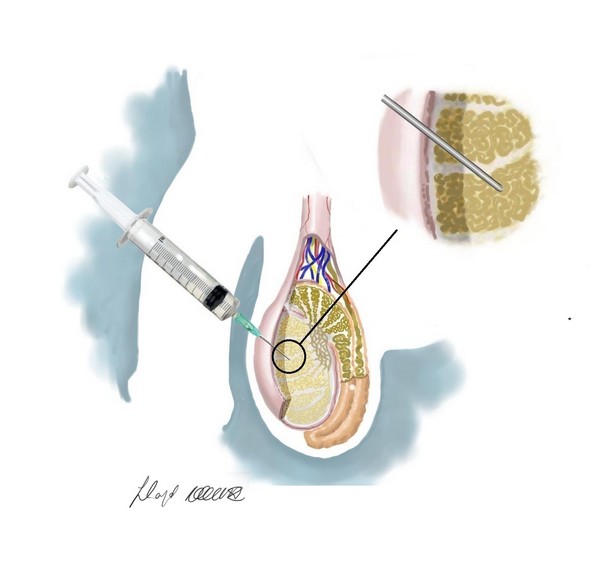
En la biopsia testicular se extrae un poco de tejido del testículo, ya sea con anestesia local o general12. Posteriormente se puede examinar este tejido en busca de células germinales.
La biopsia testicular tiene sentido sólo si la pareja está considerando la inseminación artificial fuera del cuerpo (Inyección intracitoplasmática de espermatozoides directamente en el óvulo, comúnmente conocida como ICSI13). Esto se debe a que esta operación no proporciona una mejora real de la fertilidad.
Si el hombre decide hacerse una biopsia testicular, sería ideal que la haga en una clínica donde se puedan congelar las células germinales existentes, para que puedan ser usadas posteriormente en la fertilización de los óvulos. Esto le ahorra tener que someterse a otra operación para obtener esperma.
Más investigaciones de la fertilidad en la pareja

Test post-coital (TPC)
El test post-coital es utilizado por algunos doctores con fines de diagnóstico14, si los estudios previos no determinan ninguna causa de disminución de fertilidad. Otros doctores recomiendan este examen desde el comienzo del tratamiento de fertilidad, ya que es rápido y fácil de llevar a cabo.
Bibliografía
- «Hudson, B. (1987). La pareja infértil. Churchill-Livingstone, Edinburgh» ↩
- http://humrep.oxfordjournals.org/content/18/2/447.full» ↩
- «http://web.stanford.edu/class/siw198q/websites/reprotech/New%20Ways%20of%20Making%20Babies/causemal.htm» ↩
- «http://en.wikipedia.org/wiki/Unexplained_infertility» ↩
- «Paoli D, Gallo M, Rizzo F, Spano M, Leter G, Lombardo F, Lenzi A, Gandini L. Cáncer testicular y daño en el ADN del esperma: efectos a corto y largo plazo del tratamiento antineoplásico. Andrología. 2014» ↩
- «Muthusami KR, Chinnaswamy P. Consecuencias del alcoholismo crónico en las hormonas de fertilidad masculina y calidad del semen, Fertil Steril. 2005; 84(4): 919-24” ↩
- “Mitra A, Chakraborty B, Mukhopadhay D, Pal M, Mukherjee S, Bannerjee S, Chaudhuri K. Consecuencias de fumar en la calidad del semen, la FSH, el nivel de testosterona y la longitud de repetición de CAG en un gen receptor andrógeno de hombres infértiles en una ciudad de la India. Syst Biol Reprod Med. 2012; 58(5): 255-62”consumo o abuso de drogas[3. «http://en.wikipedia.org/wiki/Male_infertility#Diagnosis» ↩
- «Battista N, Pasquariello N, Di Tommaso M, Maccarrone M. Interacción entre endocannabinoides, esteroides and citoquinas en el control de la reproducción humana. K Neuroendocrinol. 2008; 20(1): 82-9 ↩
- «Padubidri, VG; Daftary, SN, eds. (2011). Libro de Ginecología de Shaw (15th ed.). p. 201» ↩
- «Disminución de la concentración de semen y morfología en una muestra de 26.609 hombres cercanos a la población general entre 1989 ay 2005 en Francia. http://humrep.oxfordjournals.org/content/early/2012/12/02/humrep.des415.abstract – Ver más en: http://menfertility.org/male-fertility-continues-to-fall/#fn-38-1» ↩
- «http://www.altmedrev.com/publications/5/1/28.pdf» ↩
- «http://www.nlm.nih.gov/medlineplus/ency/article/003908.htm» ↩
- «http://en.wikipedia.org/wiki/Intracytoplasmic_sperm_injection» ↩
- «Hessel M, Brandes M, Bruin JPD, Bots RS, Kremer JA, Nelen WL, Hamilton CJ. Tasa de embarazos en curso a largo plazo y modo de concepción después de un test post-coital positivo y negativo. Acta Obstet Gynecol Scand. 2014; 93(9): 913-20″ ↩
Nota: Este documento es una traducción. Si tiene dudas sobre el significado exacto, por favor lea el original Inglés haciendo clic en la bandera Inglés en la parte inferior de esta página.
POLÍTICA DE PRIVACIDAD
FACEBOOK-plugins (como botones)
DoubleClick DART Cookies
ADSENSE
Google +1
ARCHIVOS DE REGISTRO
Cookies y Web Beacons
Nota: Este documento es una traducción . Si tiene dudas sobre el significado exacto , por favor lea el original Inglés haciendo clic en la bandera Inglés en la parte inferior de esta página.
La responsabilidad por contenidos
Como proveedor de servicios somos responsables por el contenido de estas páginas bajo las leyes generales. No estamos obligados como un proveedor de servicios para monitorear transmitida o almacenada información extranjero o para investigar las circunstancias que indiquen actividades ilícitas. La obligación de eliminar o bloquear el uso de información en virtud de las leyes generales no se verán afectados. Sin embargo, un pasivo correspondiente sólo es posible a partir de la fecha de conocimiento de una infracción específica. Tras la notificación de violaciónes tal, vamos a eliminar el contenido de inmediato.
Responsabilidad de los enlaces
Nuestra oferta contiene enlaces a páginas externas sobre las cuales no tenemos control. Por lo tanto, no podemos aceptar ninguna responsabilidad por su contenido. El proveedor respectivos u operador de tales sitios es siempre responsable de los contenidos de ningún Sitio Vinculado. Los sitios vinculados fueron controlados en el momento de la vinculación de posibles violaciónes de la ley. Contenidos ilegales no eran reconocibles en el momento de la vinculación. Un control permanente de las páginas enlazadas no es razonable sin pruebas concretas de una violación. Tras la notificación de violaciónes, eliminaremos de inmediato esos vínculos.
Derechos de autor
Los contenidos y las obras en estas páginas creadas por el operador del sitio están sujetos a la legislación europea de derechos de autor. Duplicación, procesamiento, distribución y cualquier tipo de explotación fuera de los límites del derecho de autor requieren el consentimiento por escrito del autor o creador. Descargas y copias de estas páginas sólo se permite para uso privado y no comercial. Por lo que el contenido no es creado por el operador del sitio web, los derechos de autor de terceros. Contribuciones de terceros están marcados como tales. Si todavía ser consciente de la infracción de copyright, pedimos una pista. Tras la notificación de violaciónes, vamos a eliminar dicho contenido inmediatamente.
Información de contacto:
Bulls Mouth Media LTD
20-22 Wenlock Road
N1 7GU, London, Inglaterra
| Teléfono: | +44 141 628 9914 |
| E-Mail: | info@bullsmouthmedia.com |
Las fuentes de imágenes y gráficos:
© Henry Schmitt – Fotolia.com, © F.Schmidt – Fotolia.com, © pixologic – Fotolia.com, © kocakayaali – Fotolia.com, © ag visuell – Fotolia.com, © fotoliaxrender – Fotolia.com, © Sebastian Kaulitzki – Fotolia.com, © Alexandr Mitiuc – Fotolia.com, © high_resolution – Fotolia.com, © Alila Medical Images – Fotolia.com, © perfectmatch – Fotolia.com, © ingenium-design.de – Fotolia.com, © blende40 – Fotolia.com, © Photo-K – Fotolia.com, © pixelcomet – Fotolia.com, © Mechwyn – Fotolia.com, © Spectral-Design – Fotolia.com, © Diamond_Images – Fotolia.com, © Alila Medical Images – Fotolia.com, © peterjunaidy – Fotolia.com, © elvira gerecht – Fotolia.com, © Ildi – Fotolia.com, © Oscar Pinto Sánchez – Fotolia.com, © dutchlight – Fotolia.com, © iulianvalentin – Fotolia.com,, © bonninturina – Fotolia.com,, © drubig-photo – Fotolia.com,







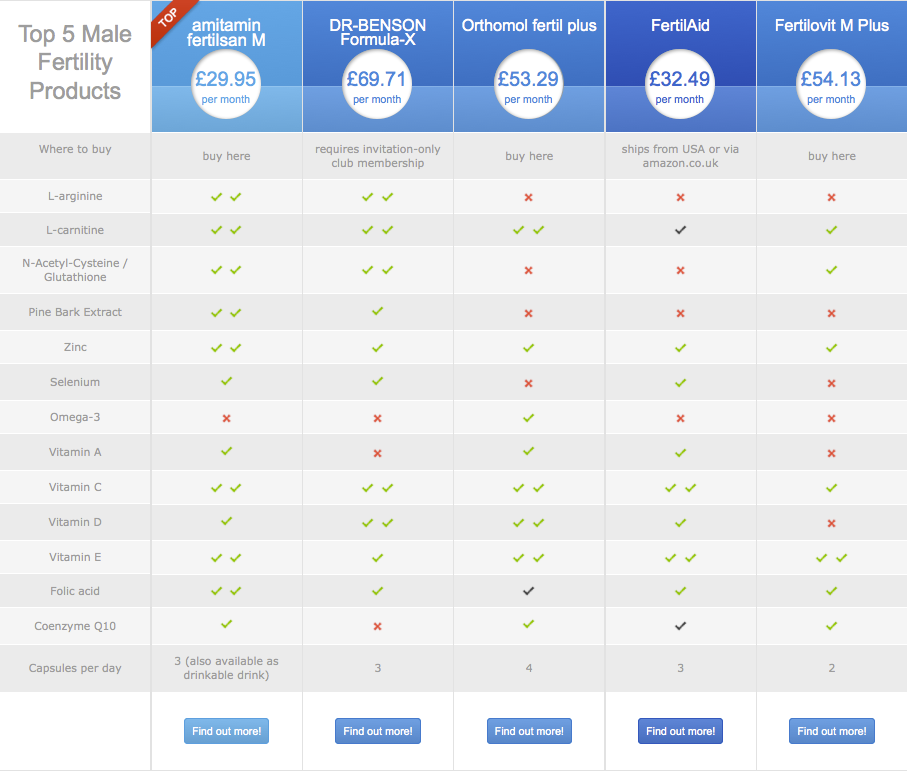



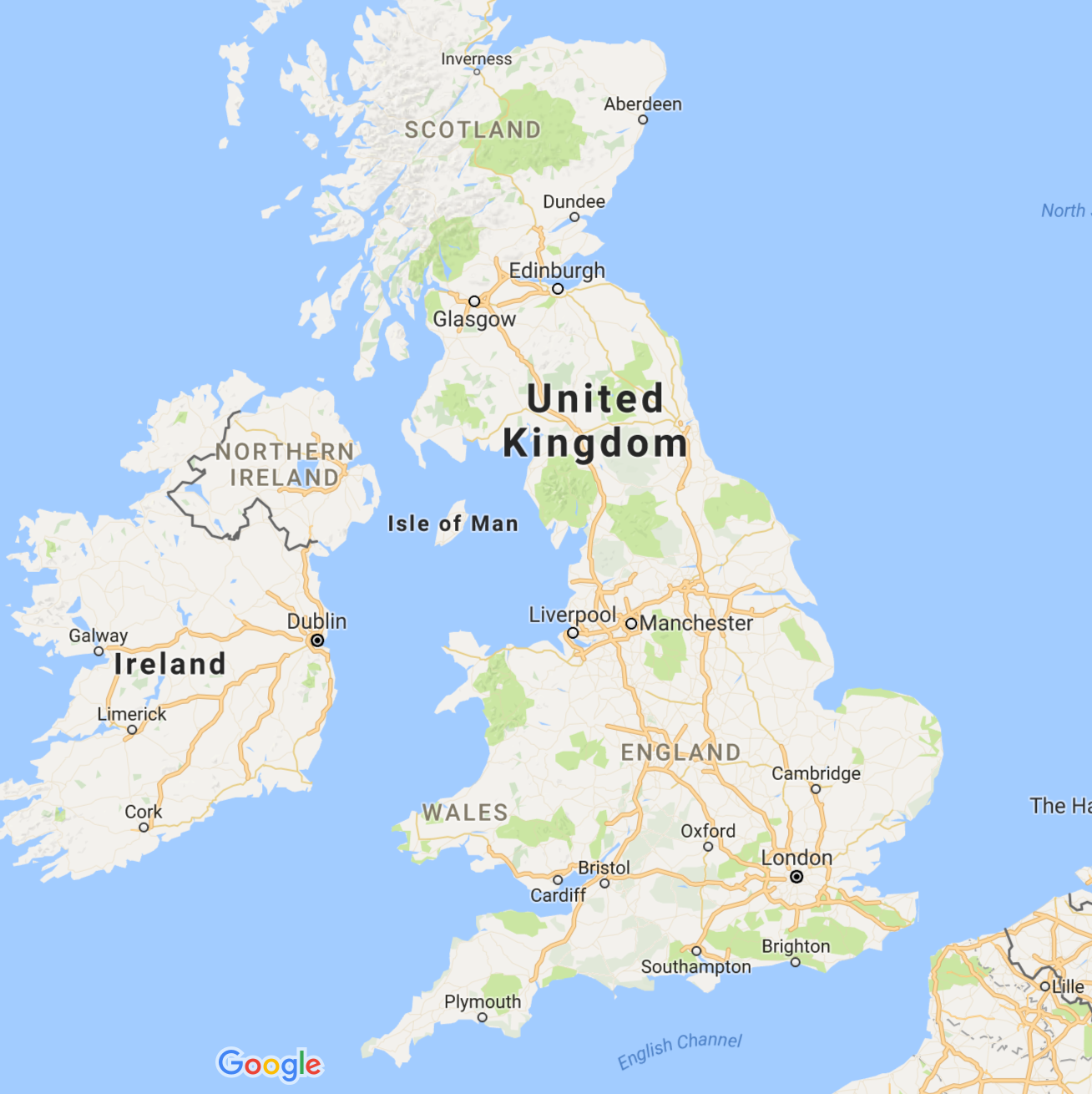


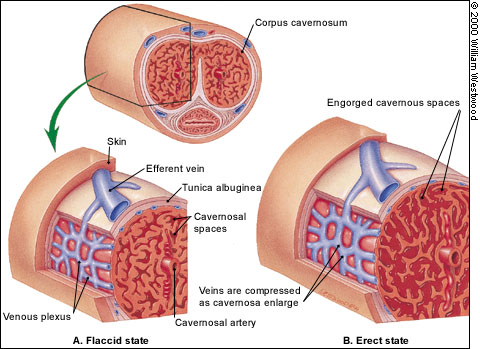
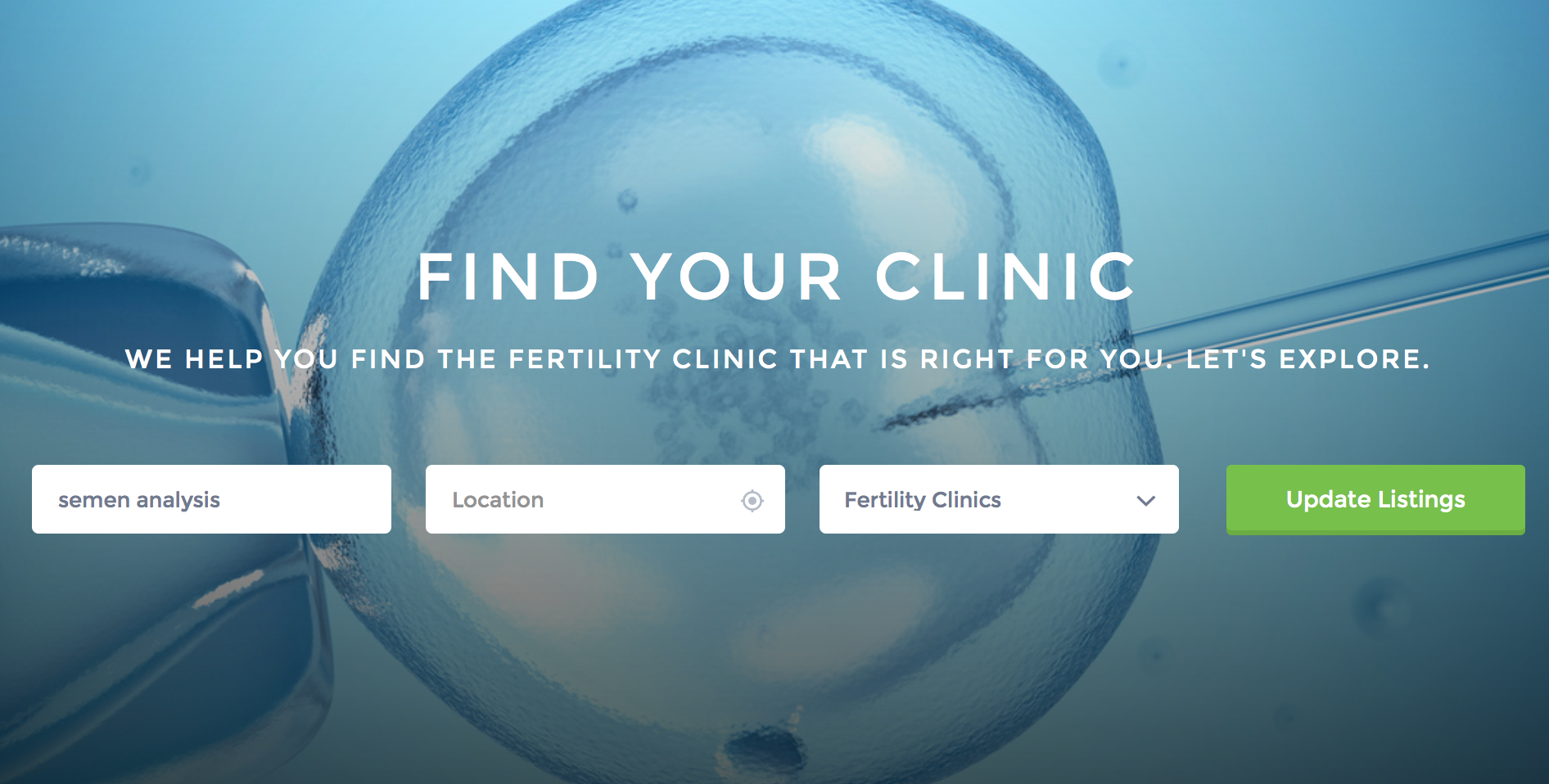
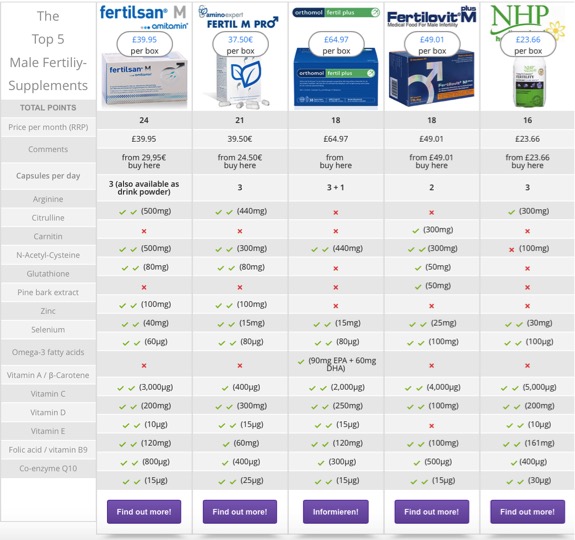














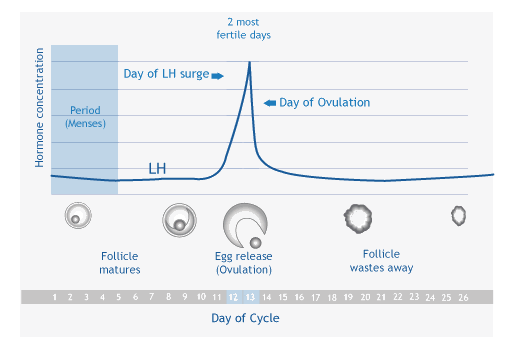

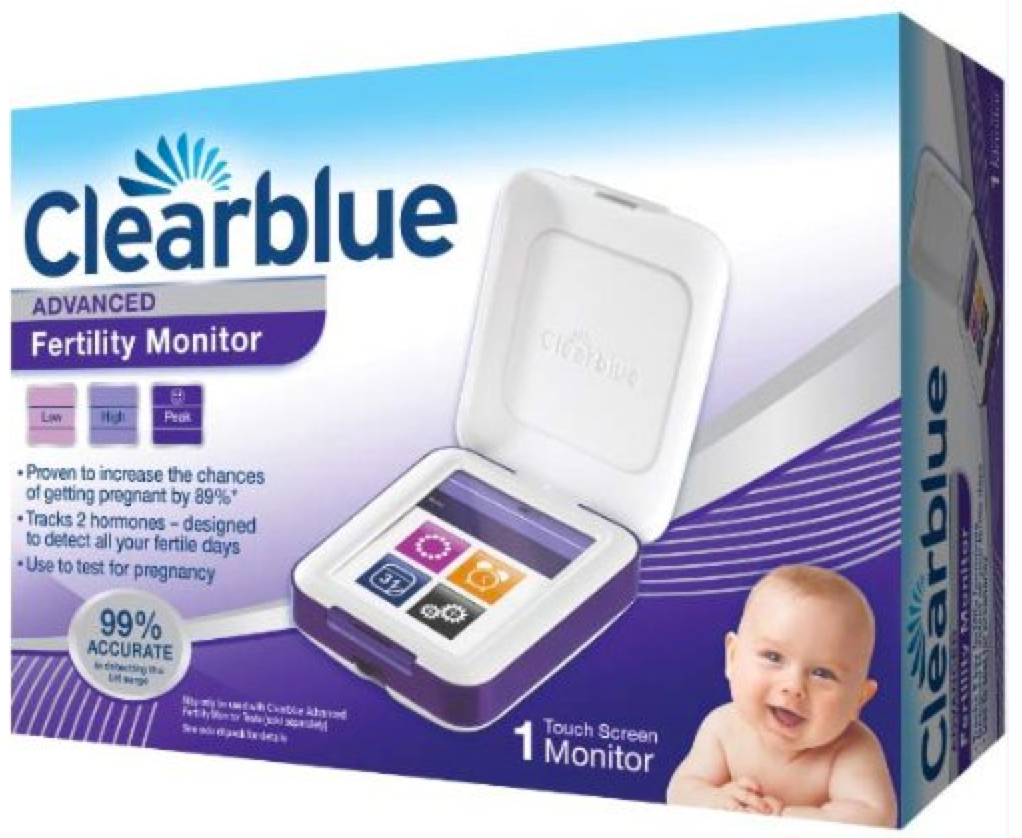







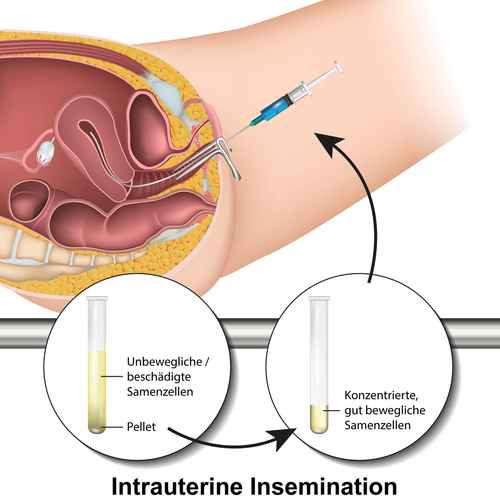
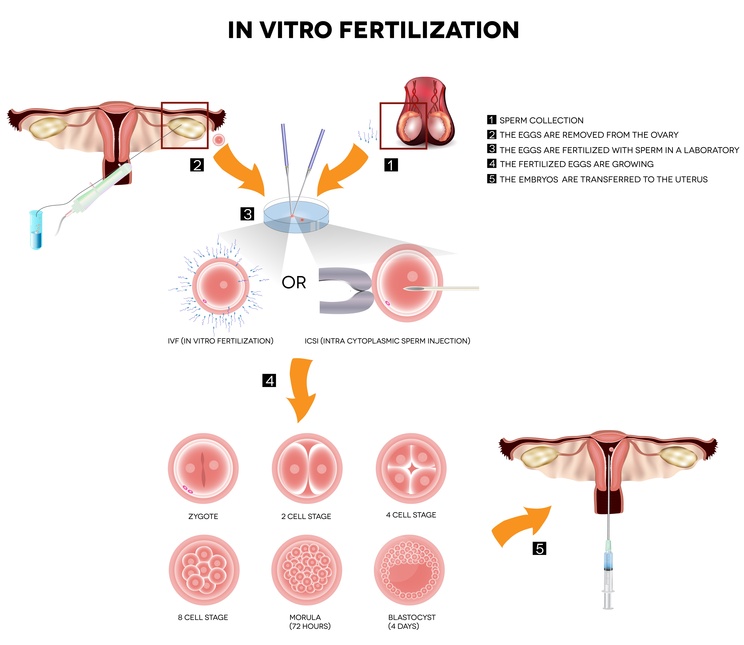
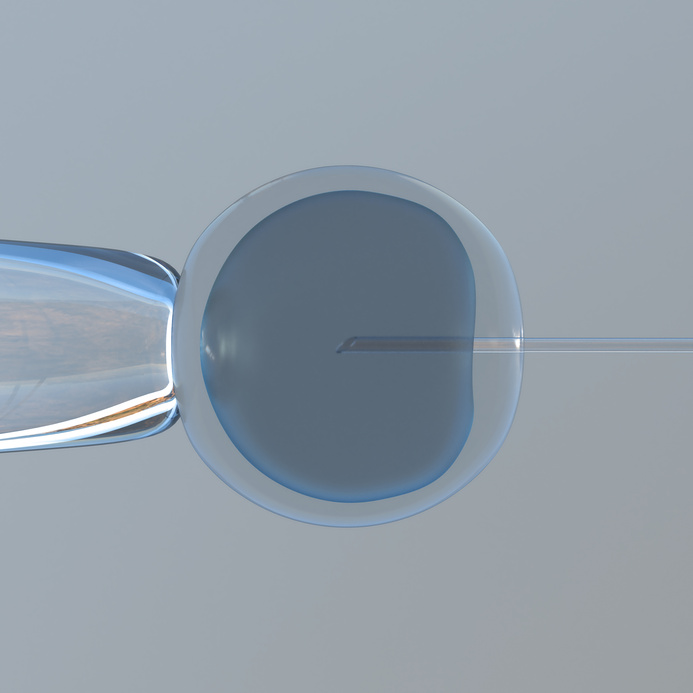




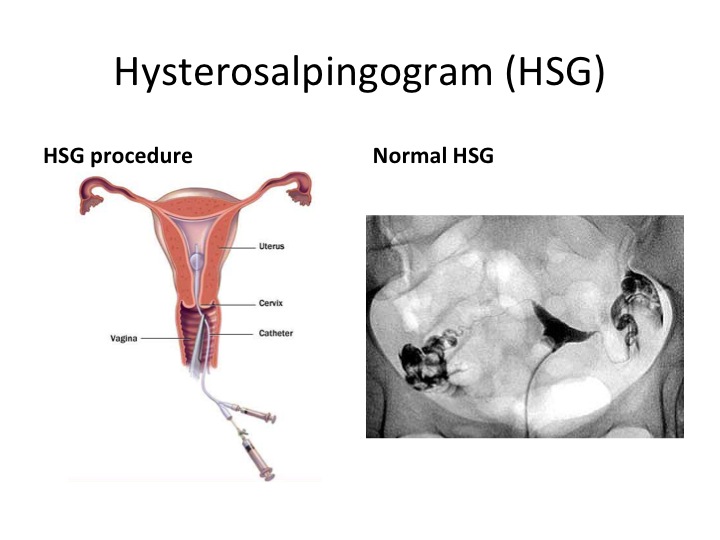
















Tengo 3 y 8 meses años de casada y no logro quedar envarazada tengo anciedad de tener un bebe
Querida Juana, Muchas gracias por su comentario, hay algunas cosas que debería de seguir para optimizar su fertilidad. En primer lugar es necesario asegurarse de que usted y su pareja sean fértiles, También debería hablar con su ginecólogo y tu pareja debería conseguirse uno, es mejor hacerse unos dos o tres análisis de semen. También debería de calcular tener relación sexual en torno a la fecha de su ovulación, como lo hemos mencionado en nuestro articulo. Seria muy bueno que se asegure de seguir nuestros consejos y sugerencias.
Si usted necesita de alguna otra ayuda, estaremos acá para poder responder sus preguntas.